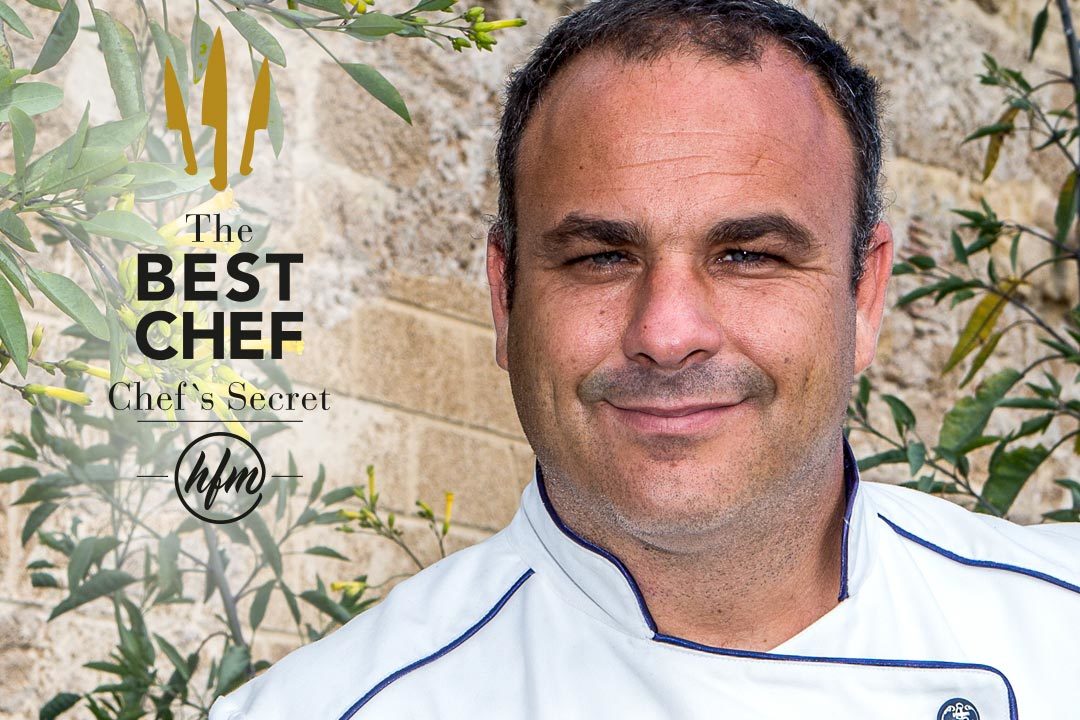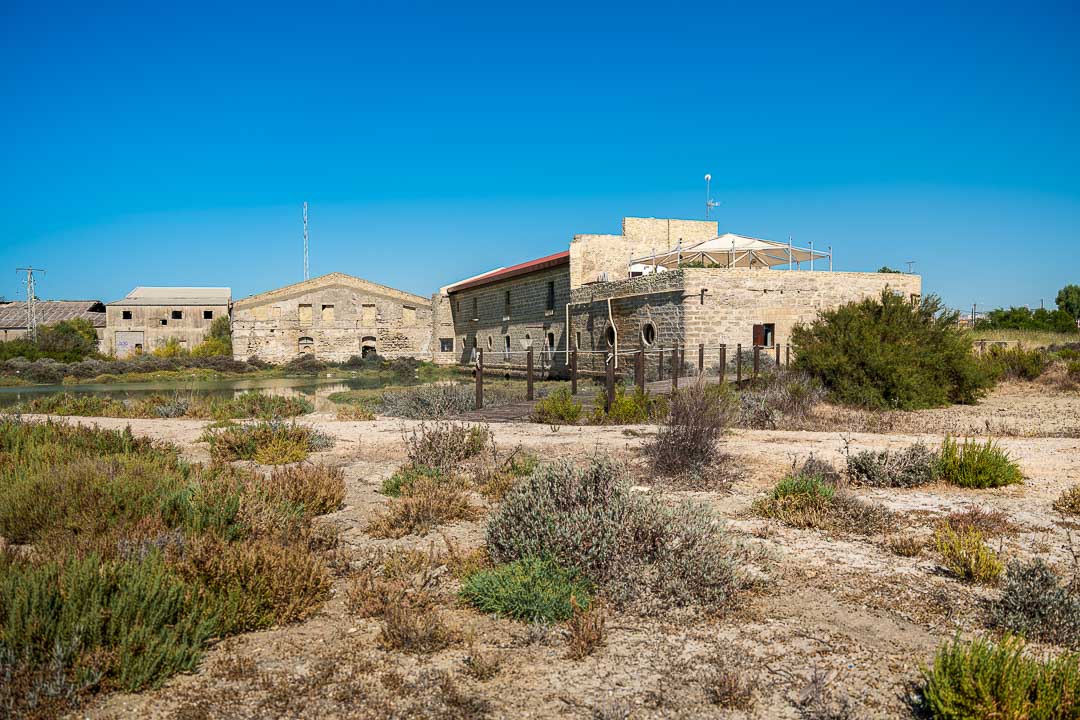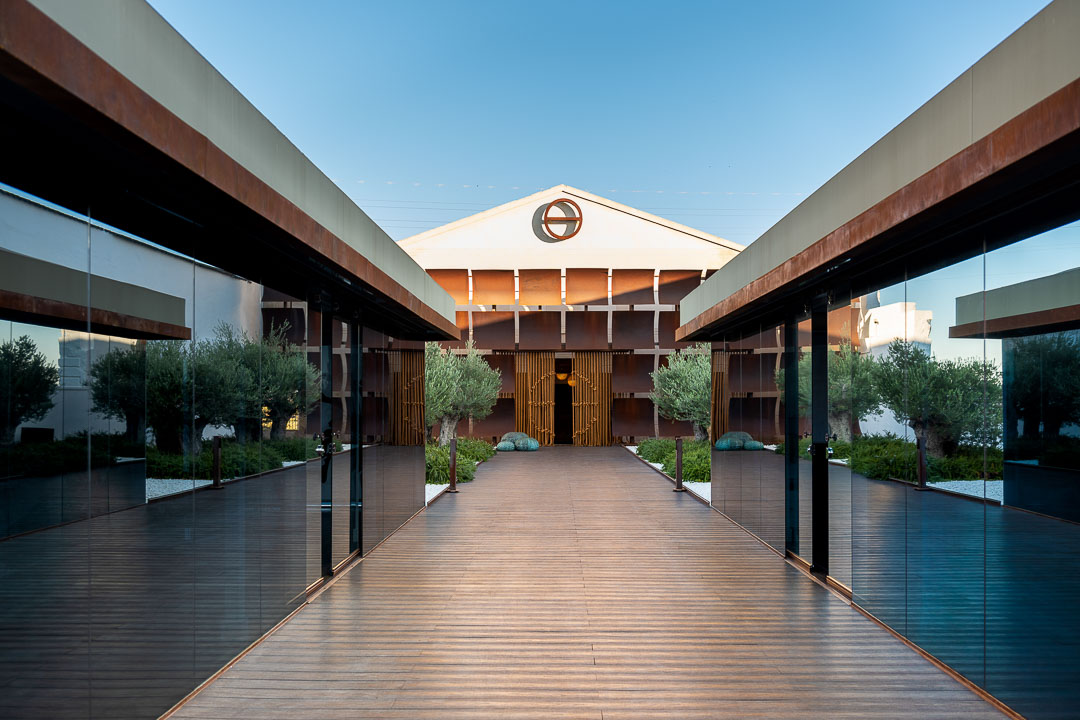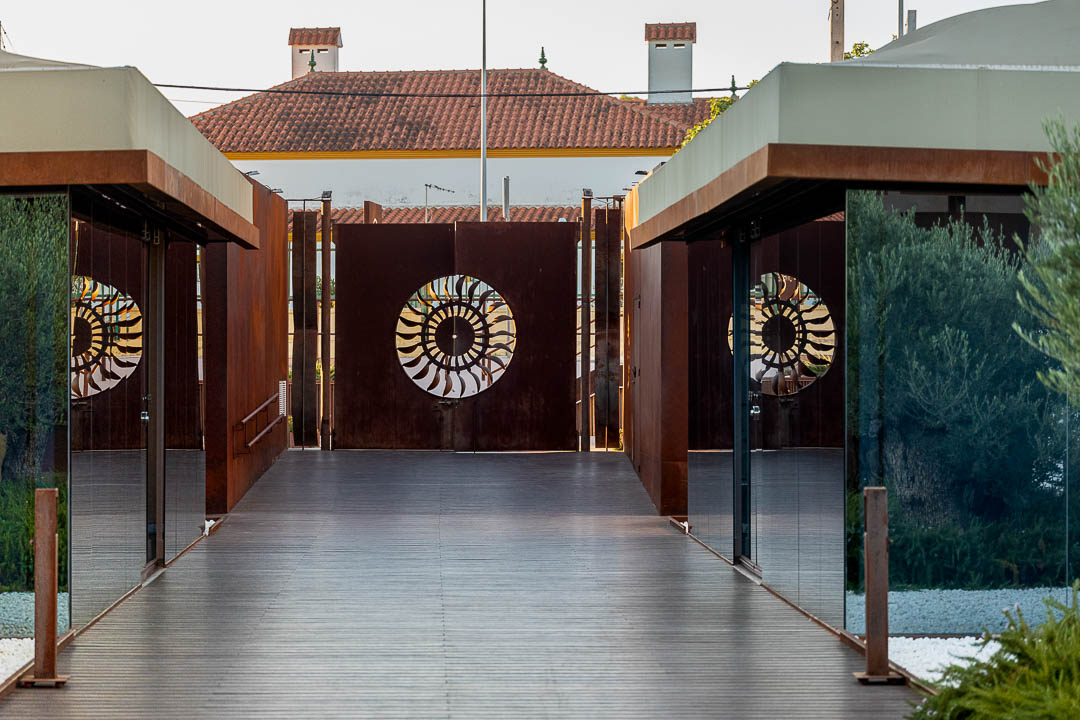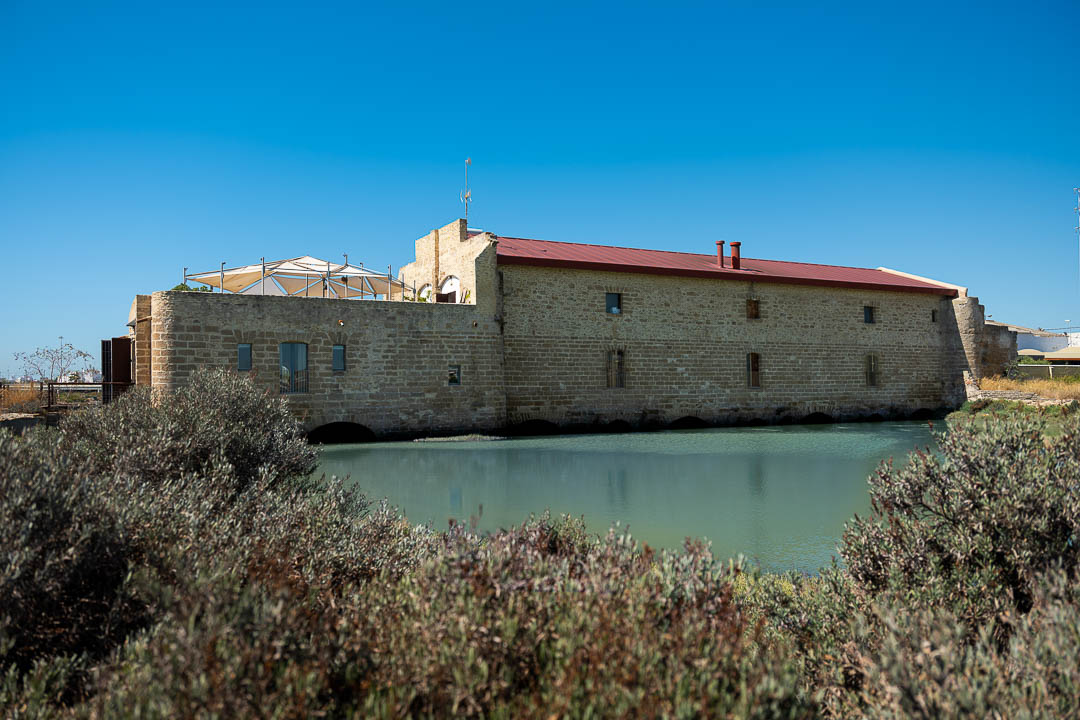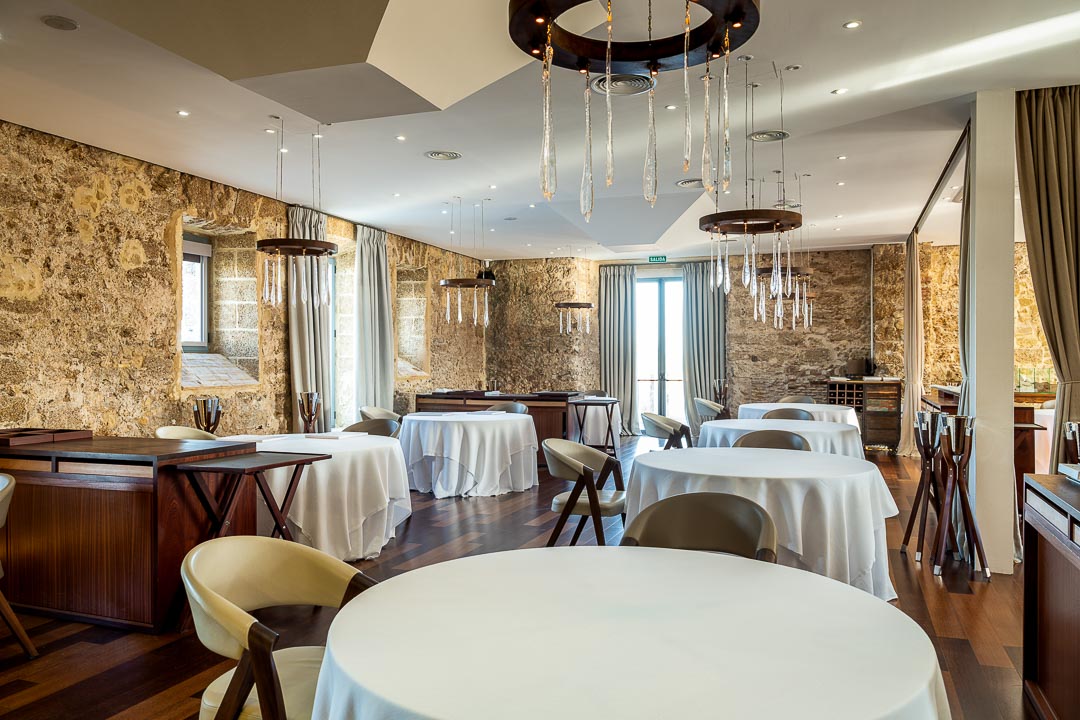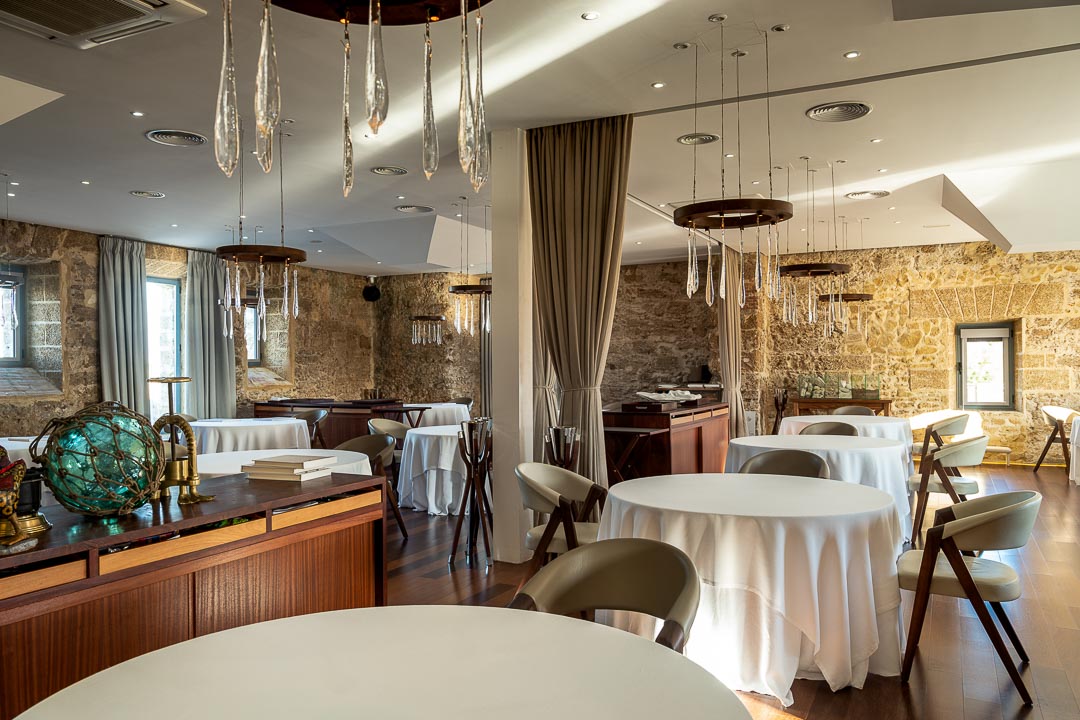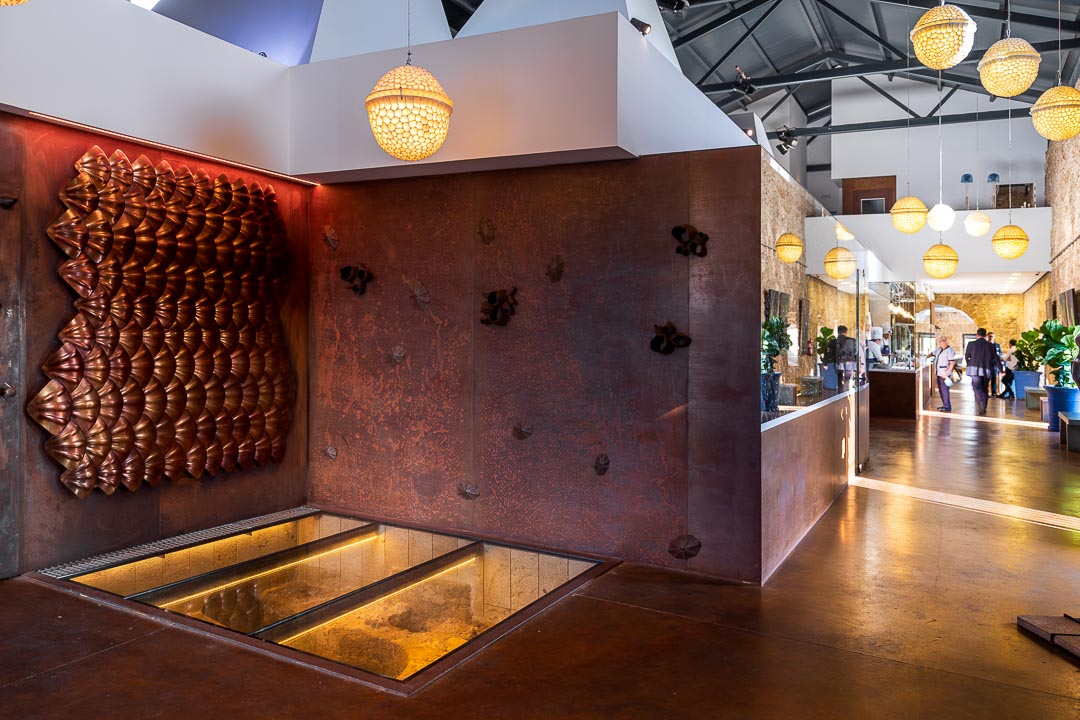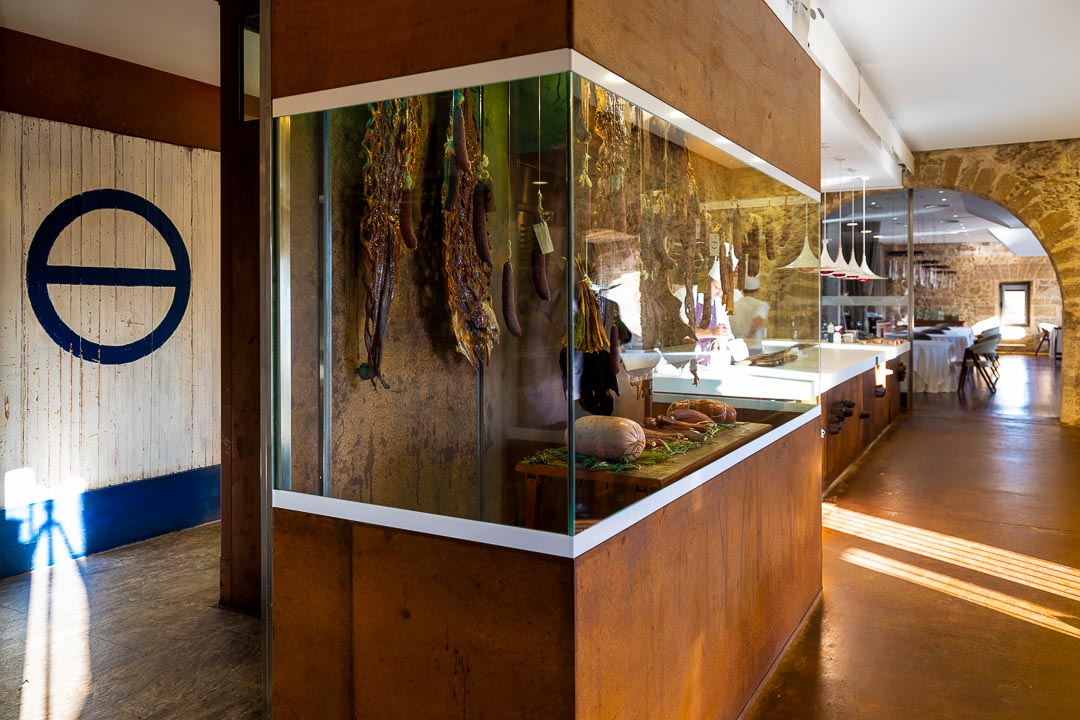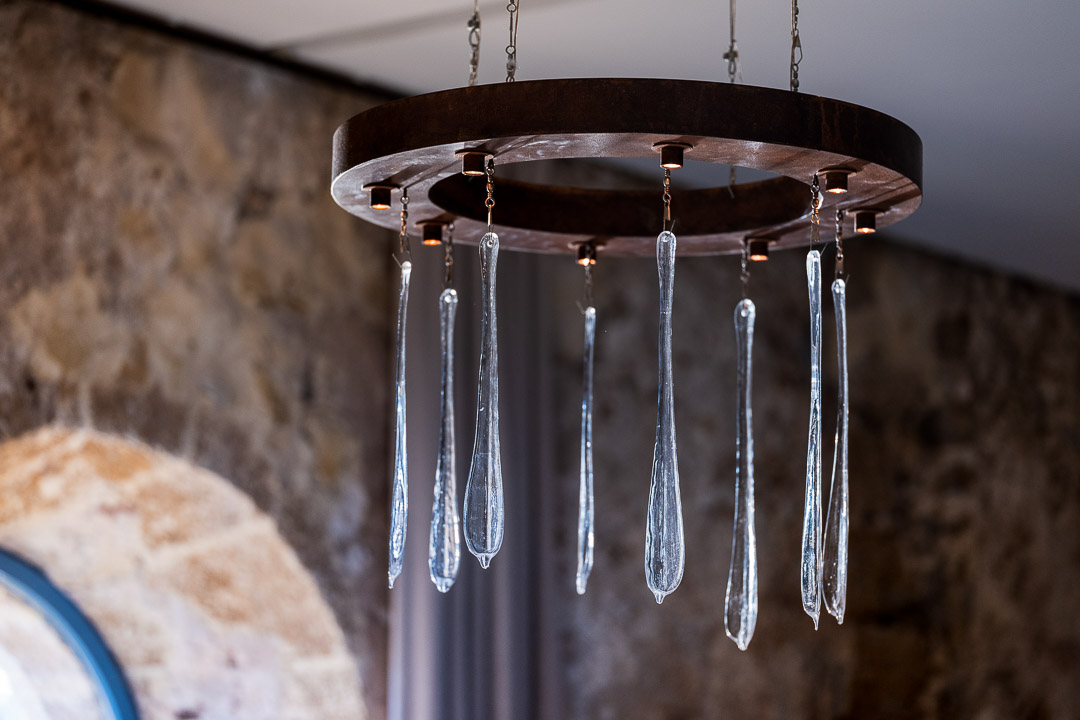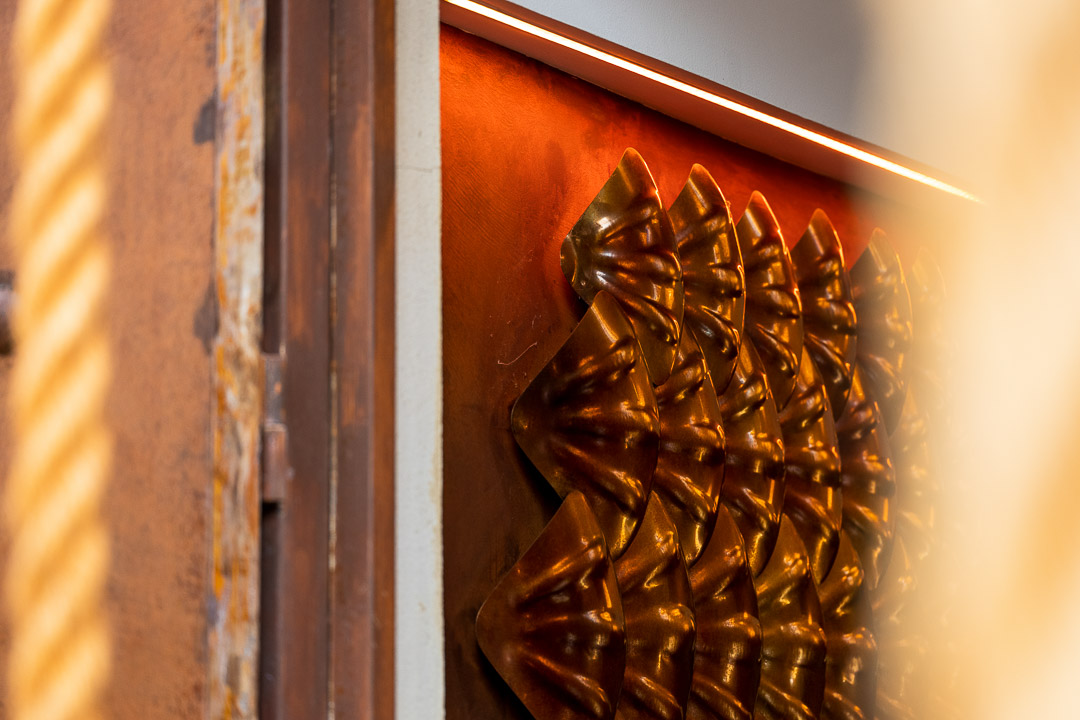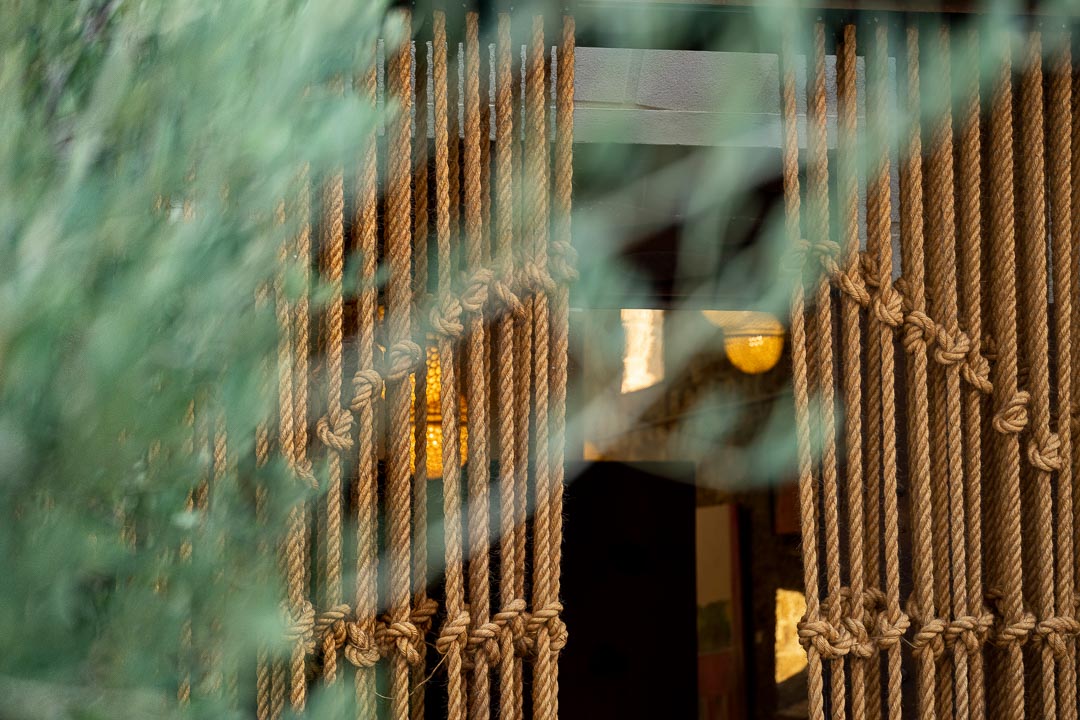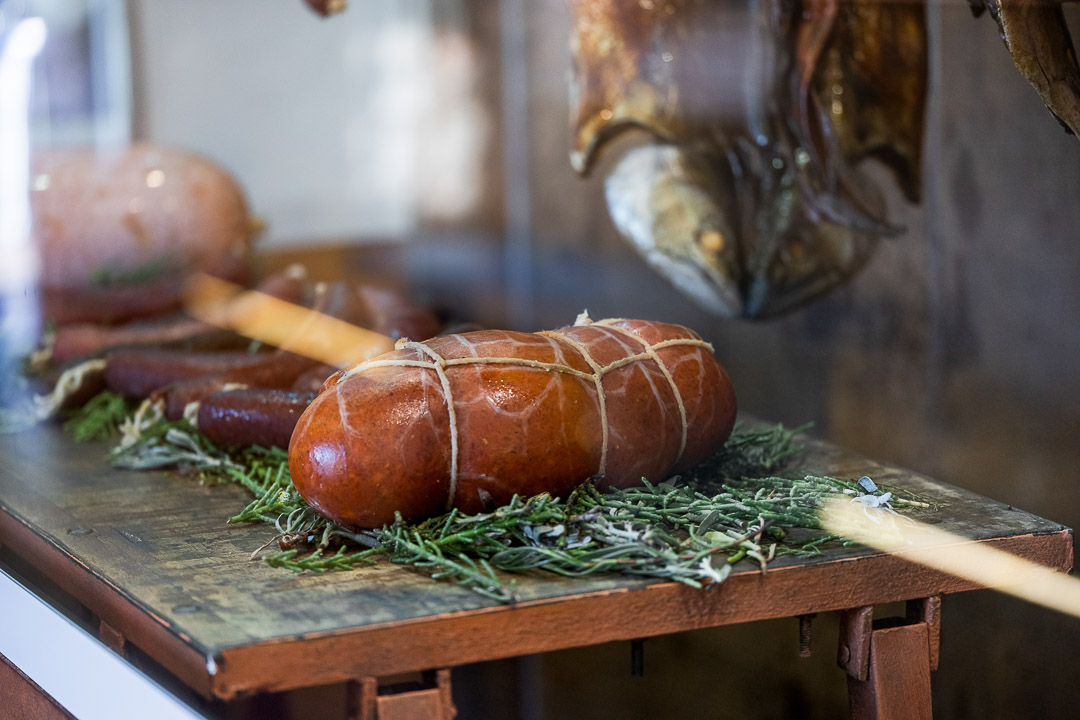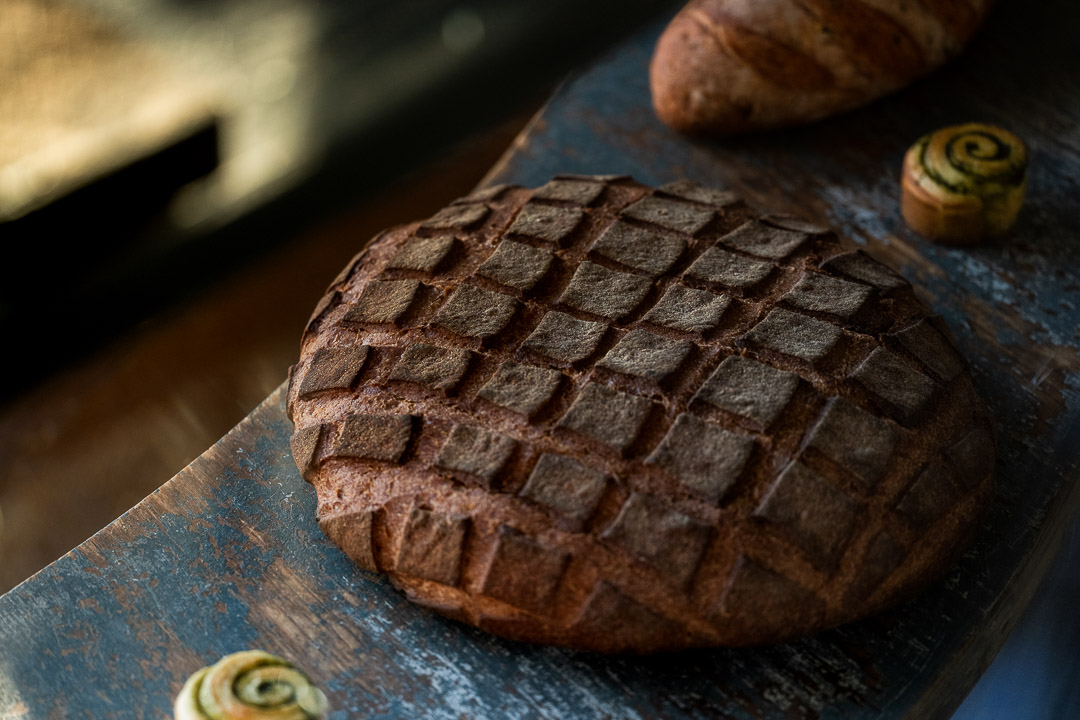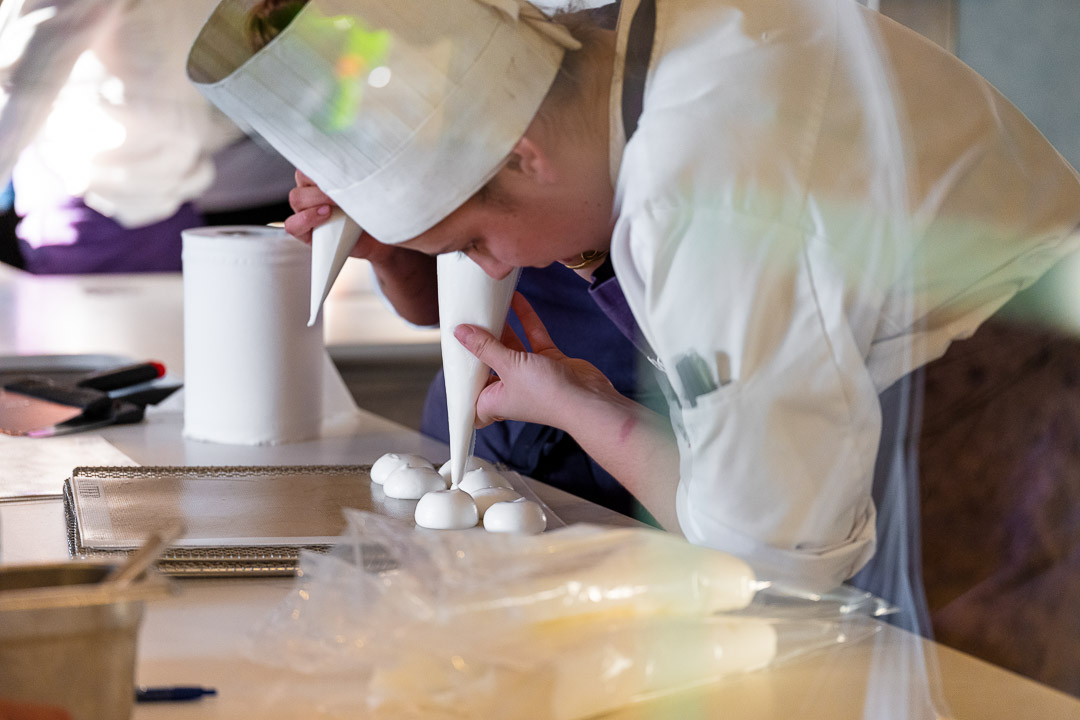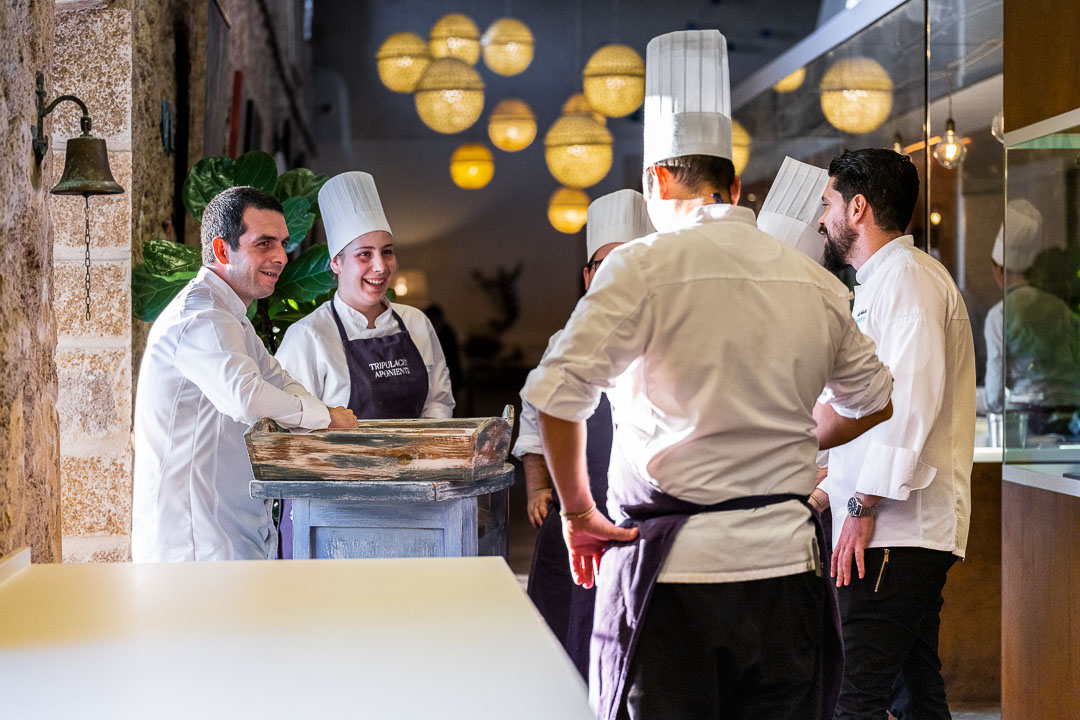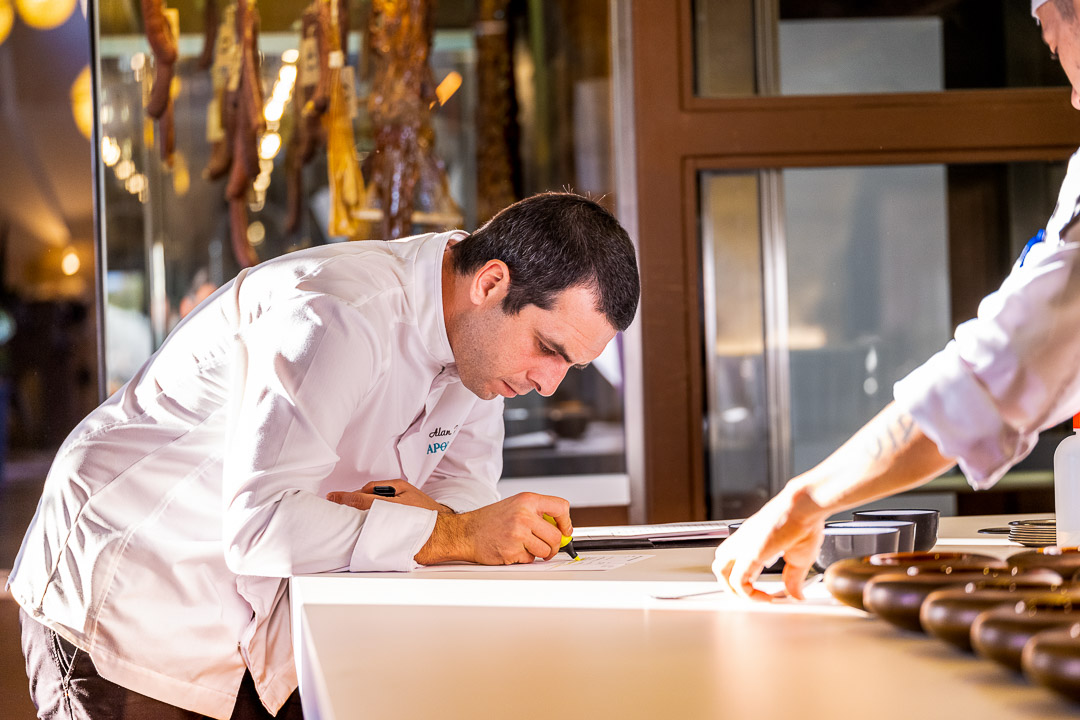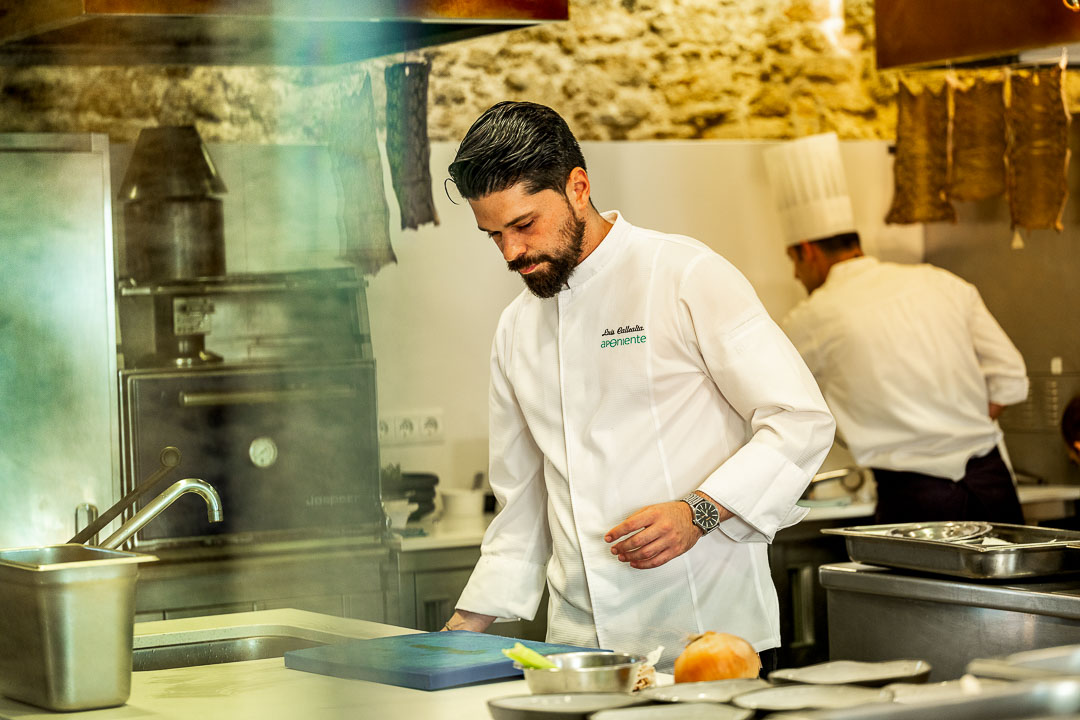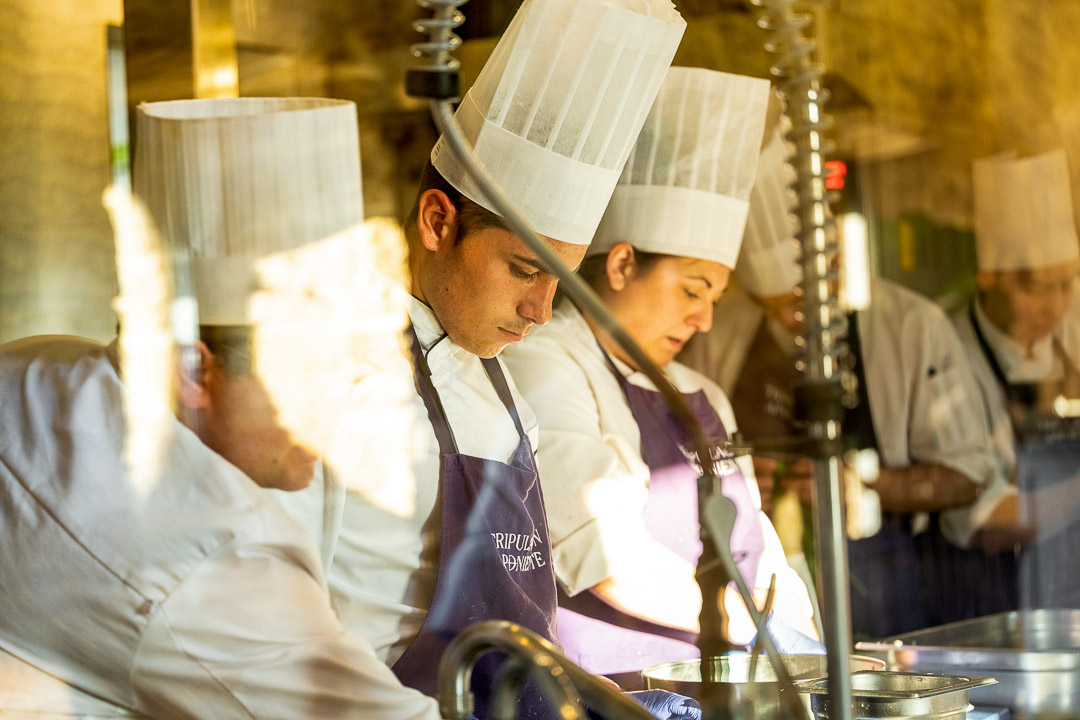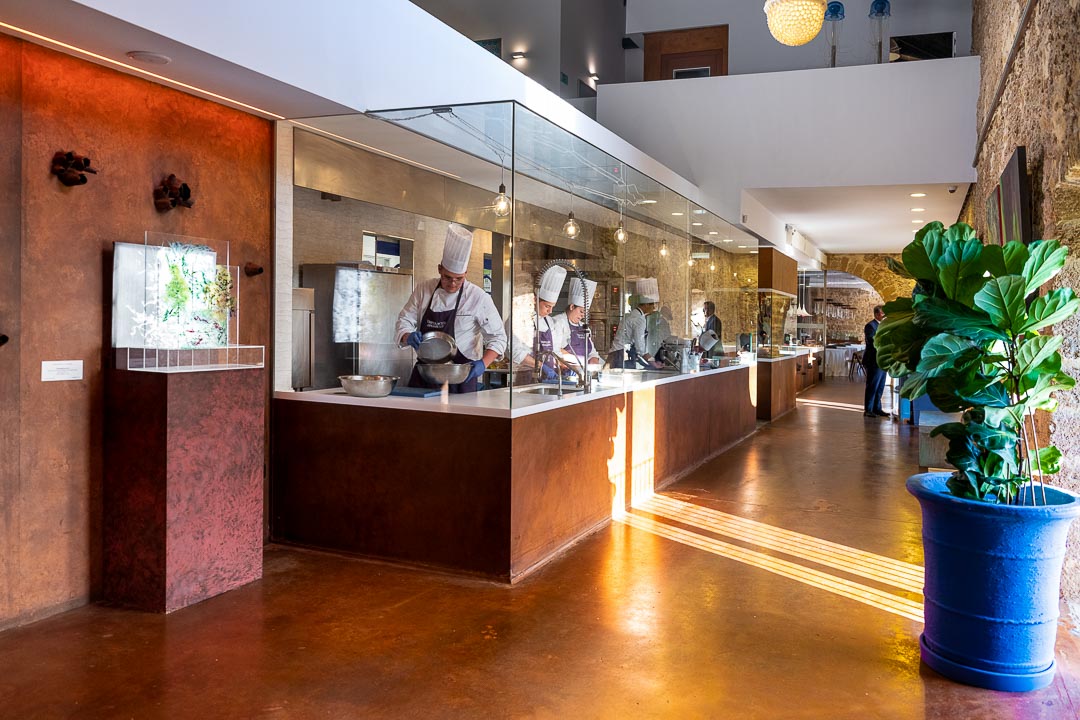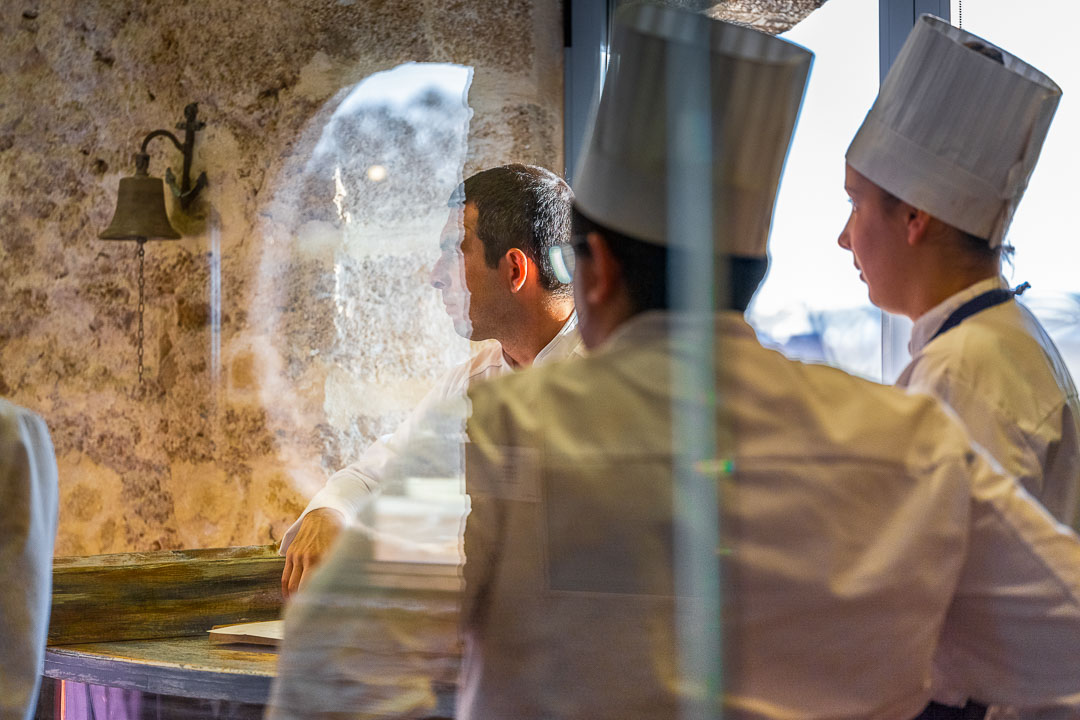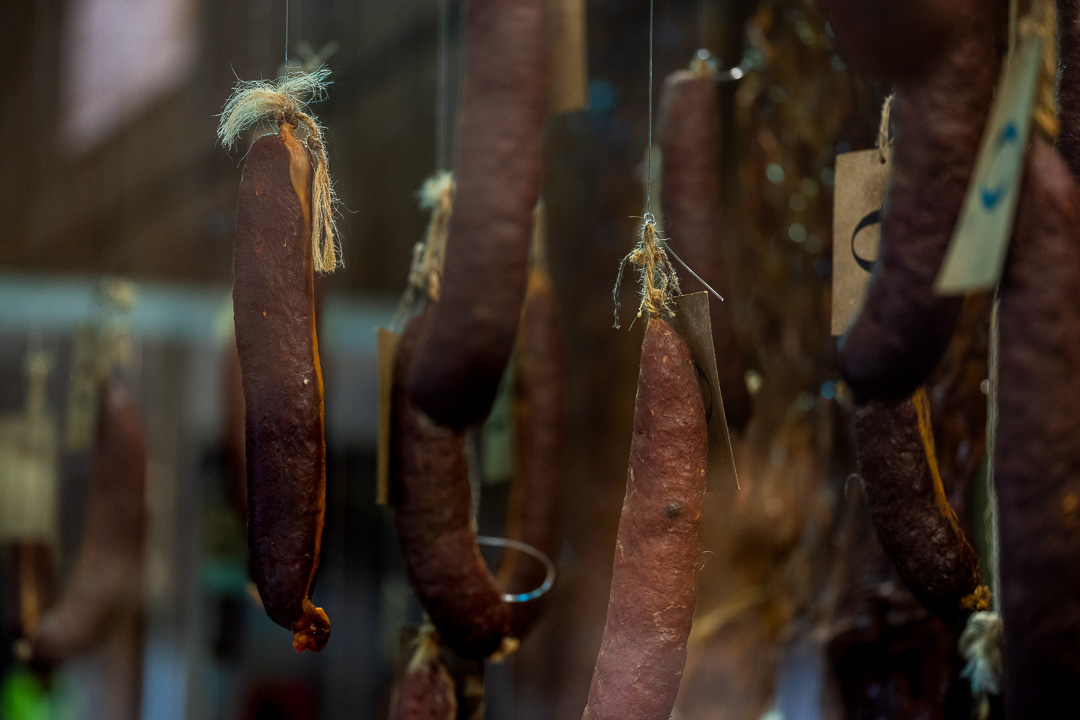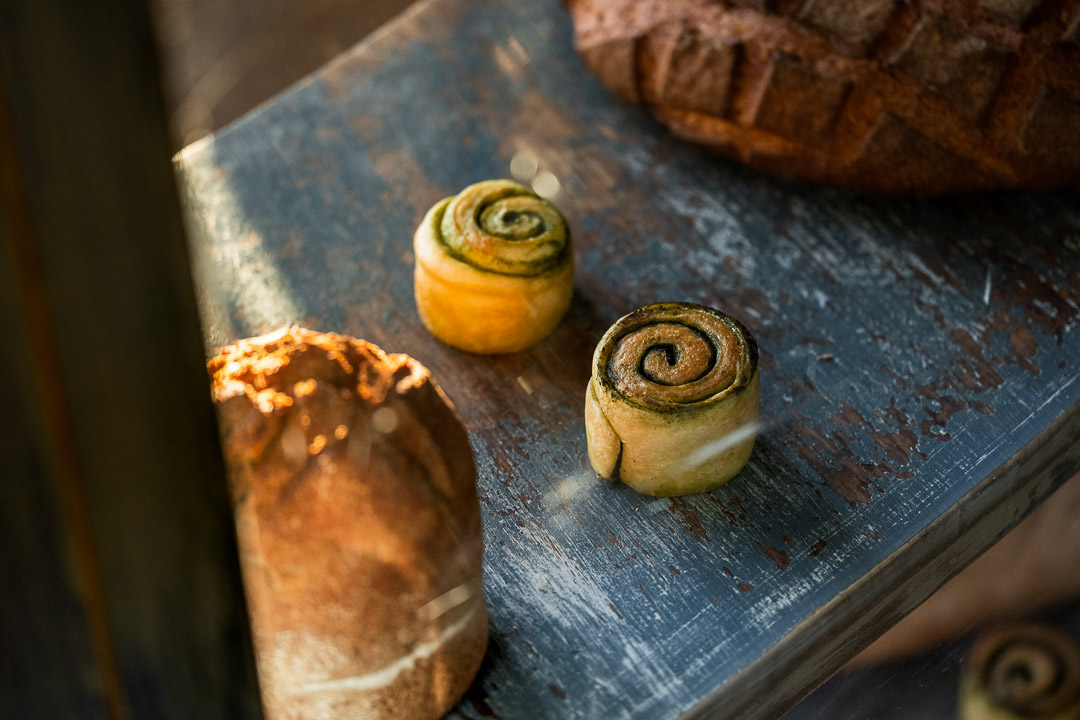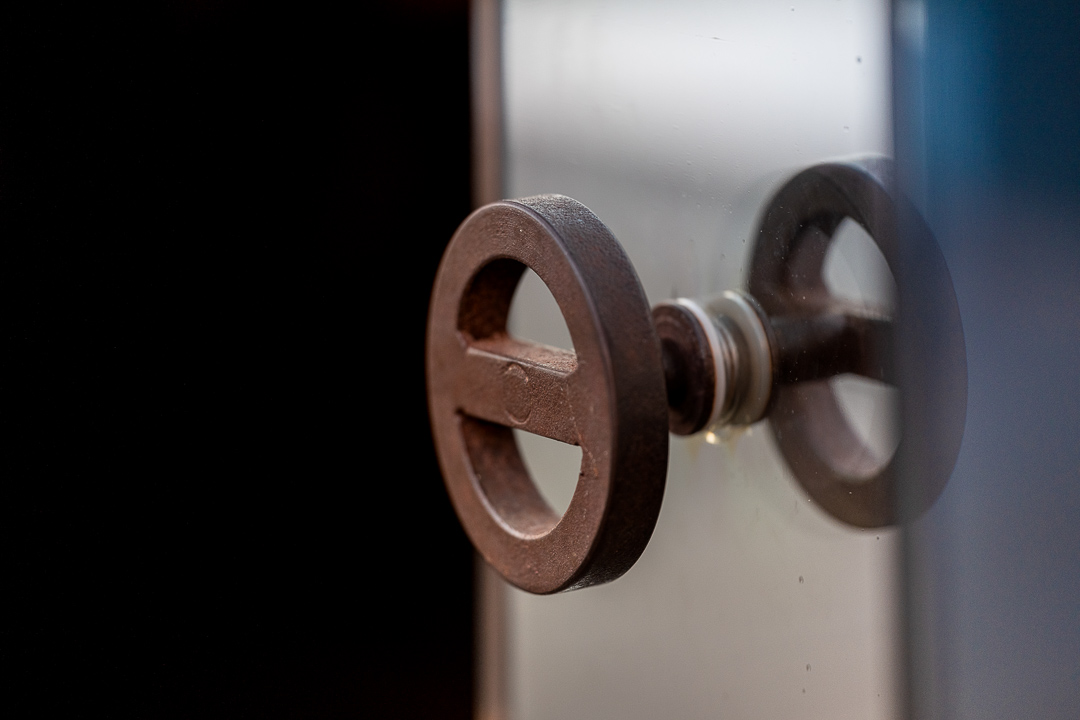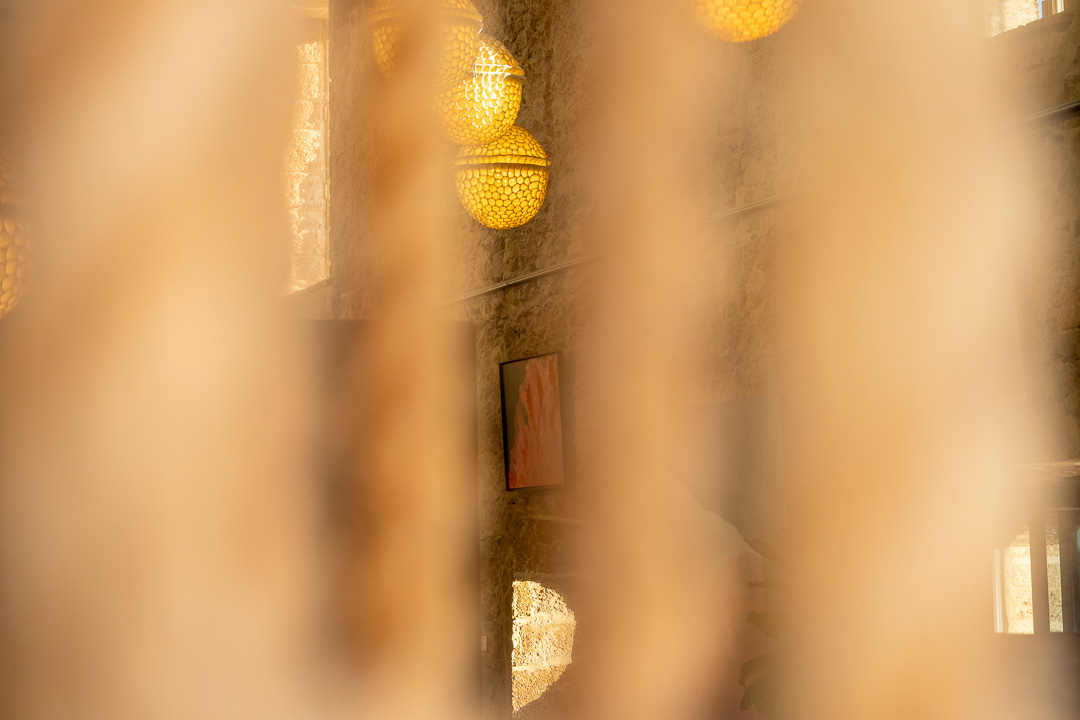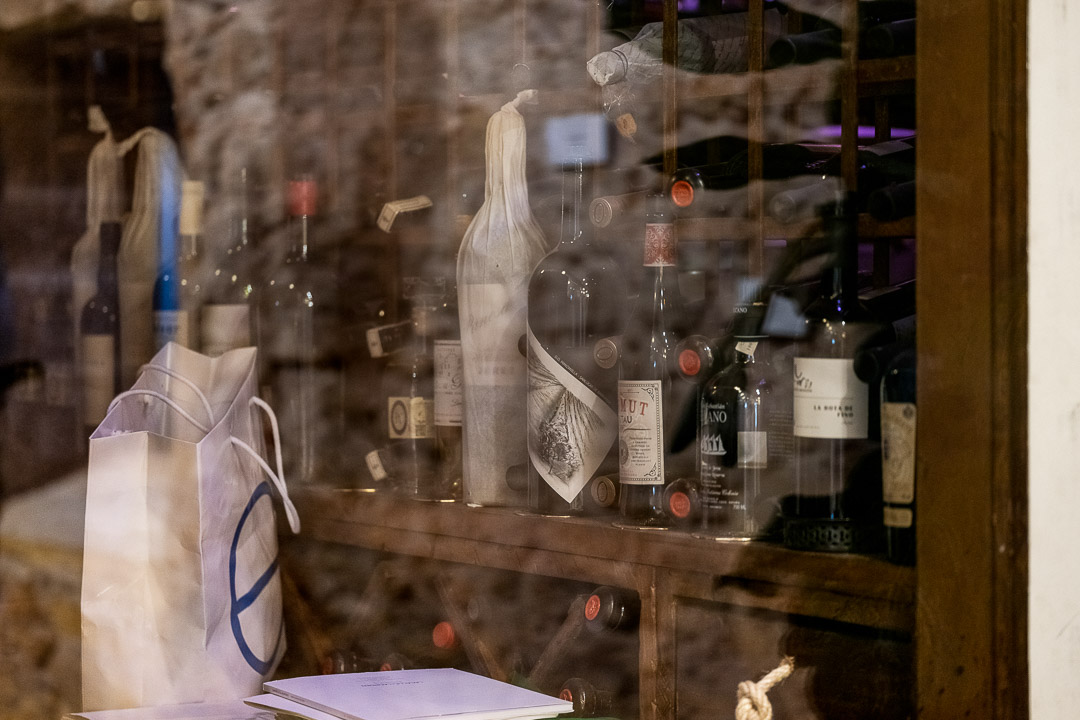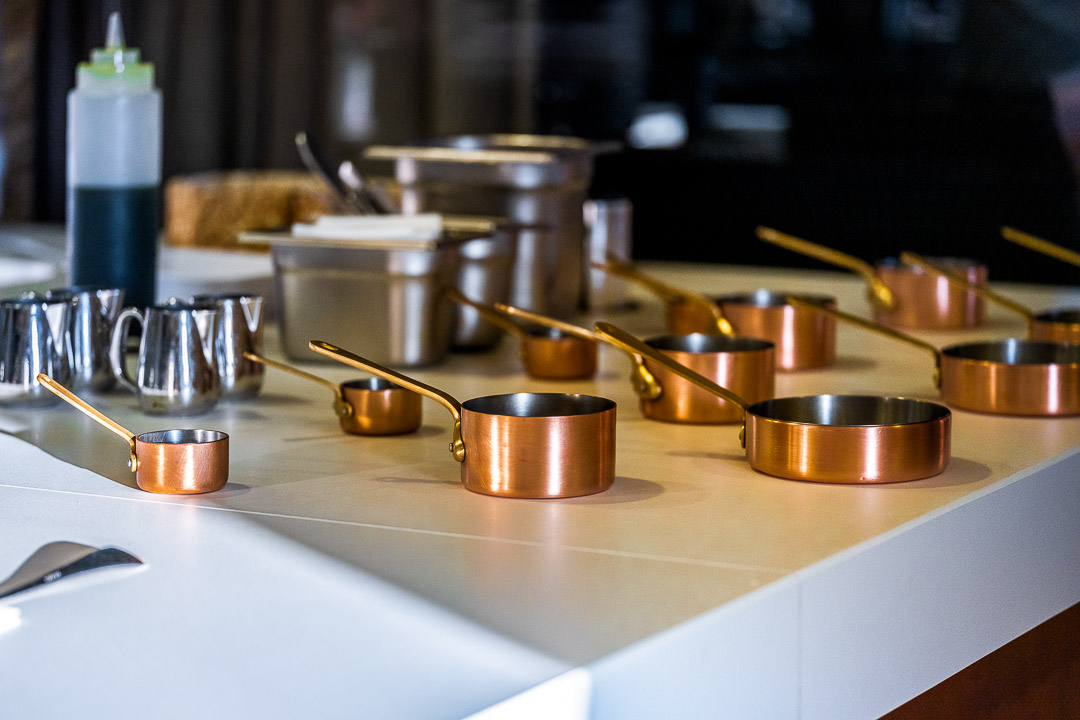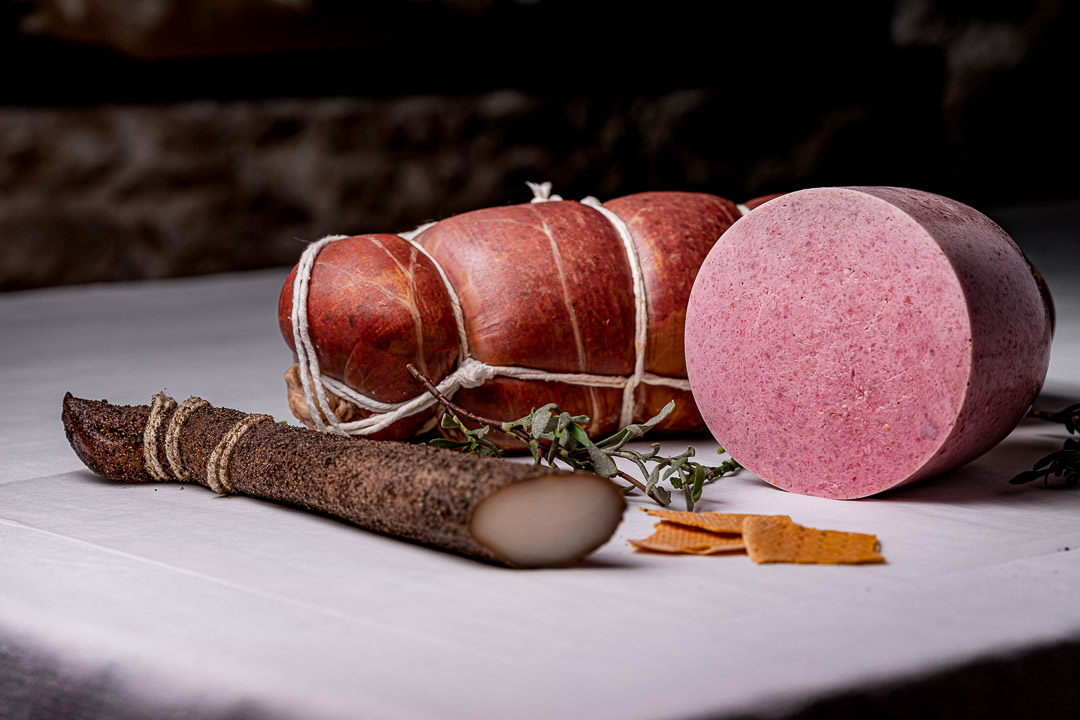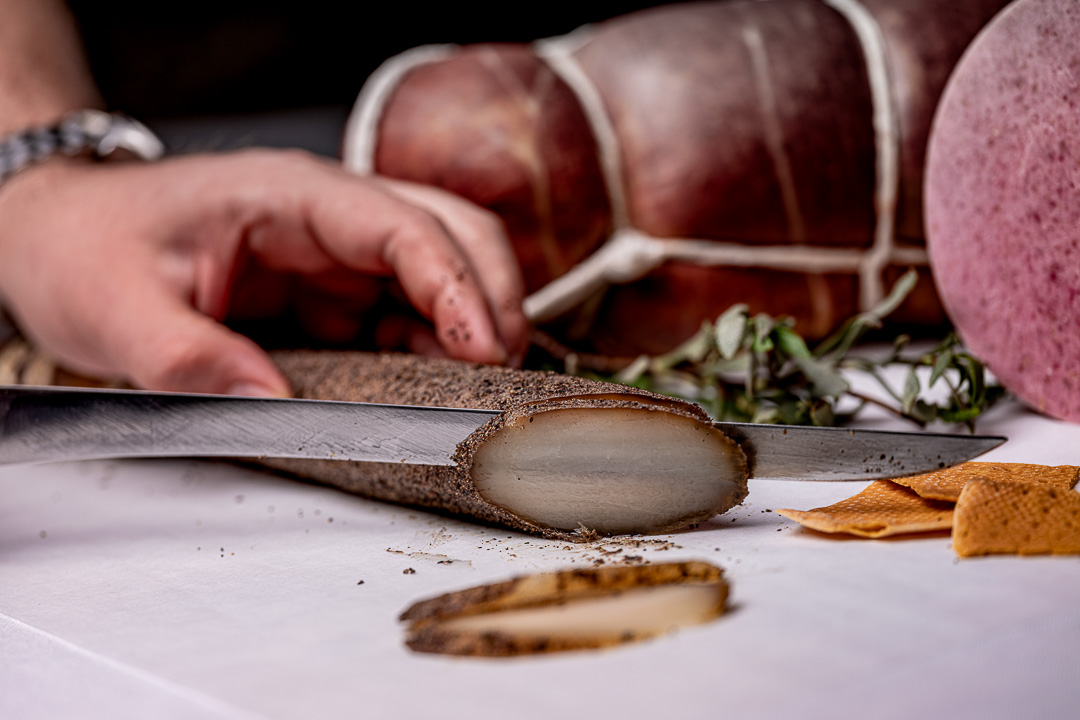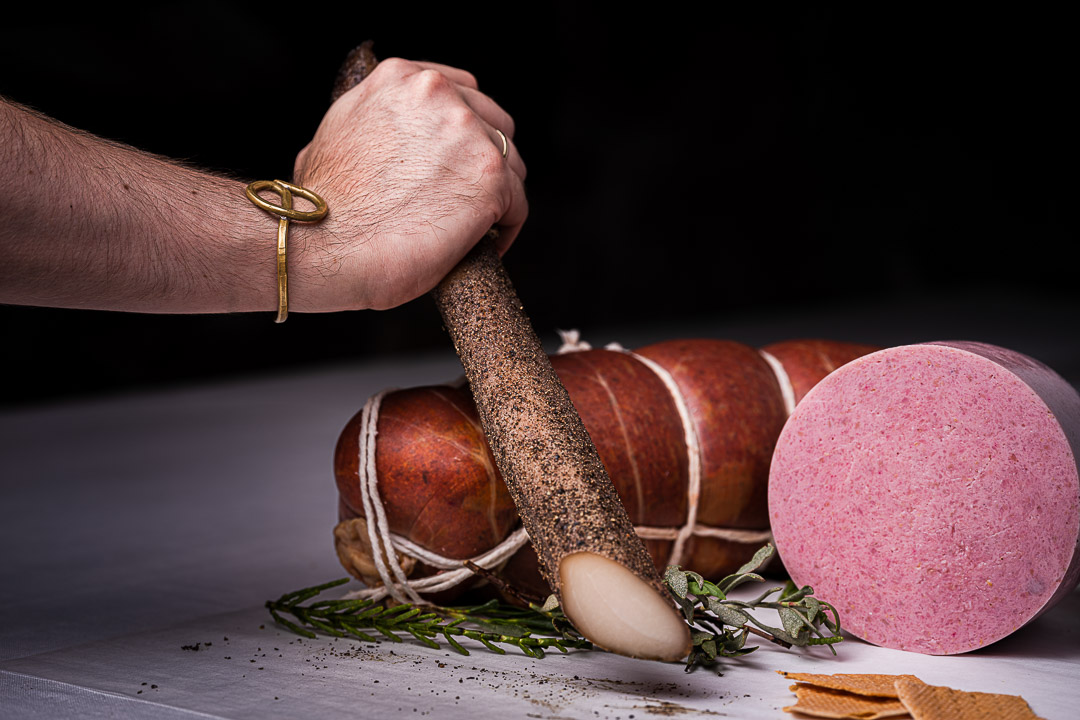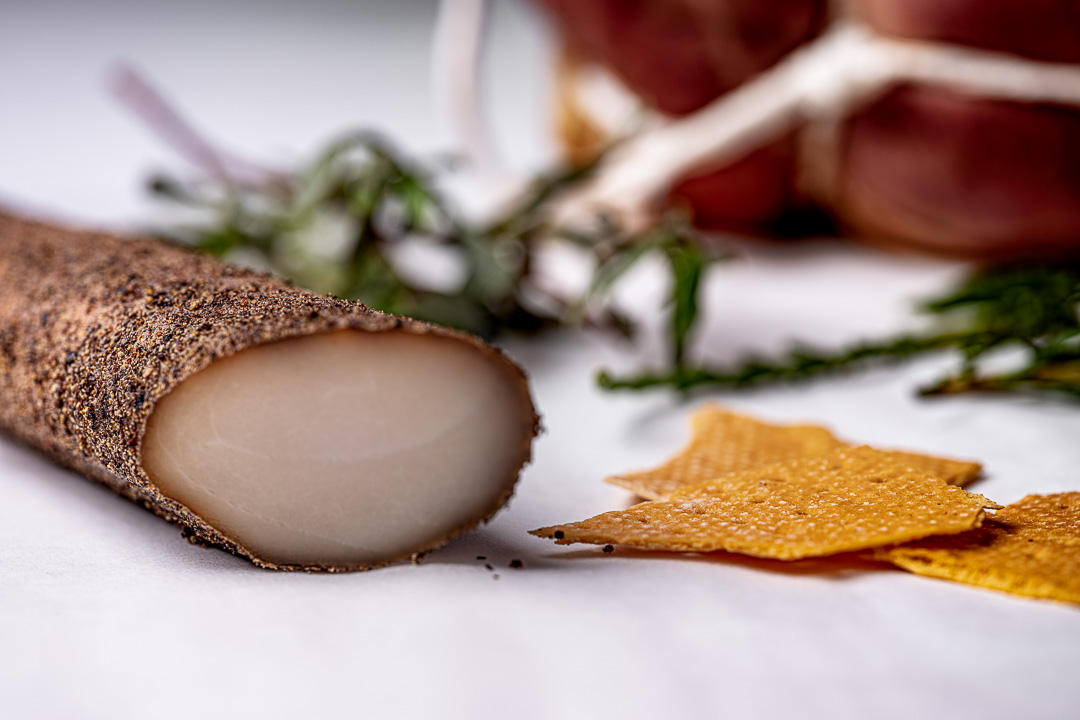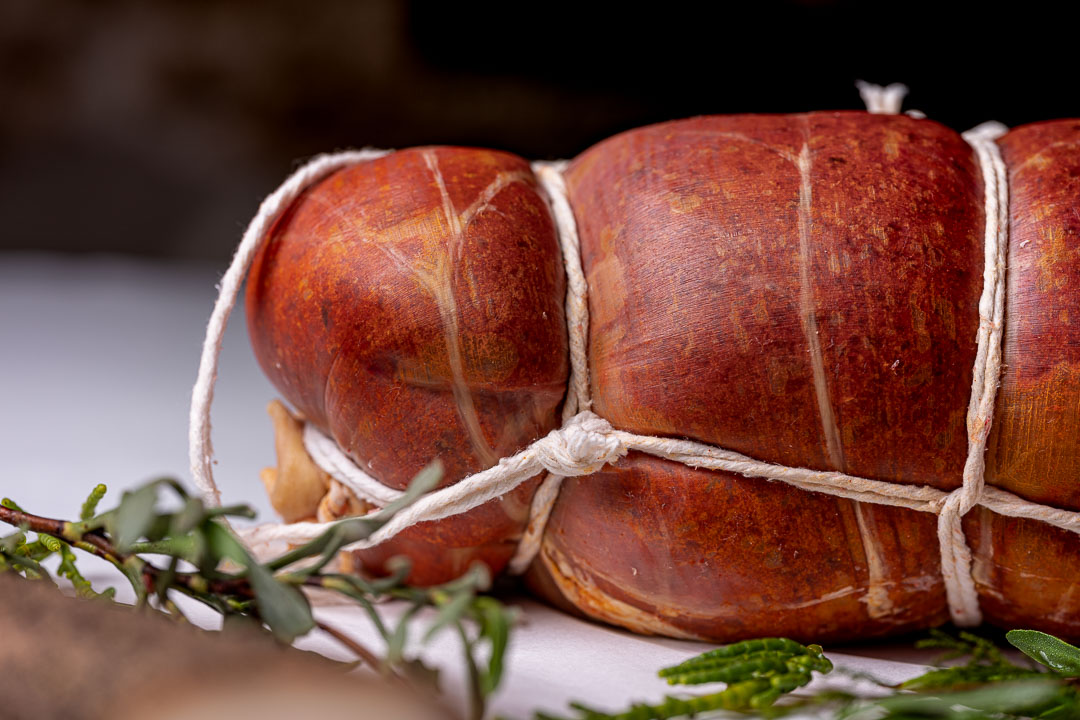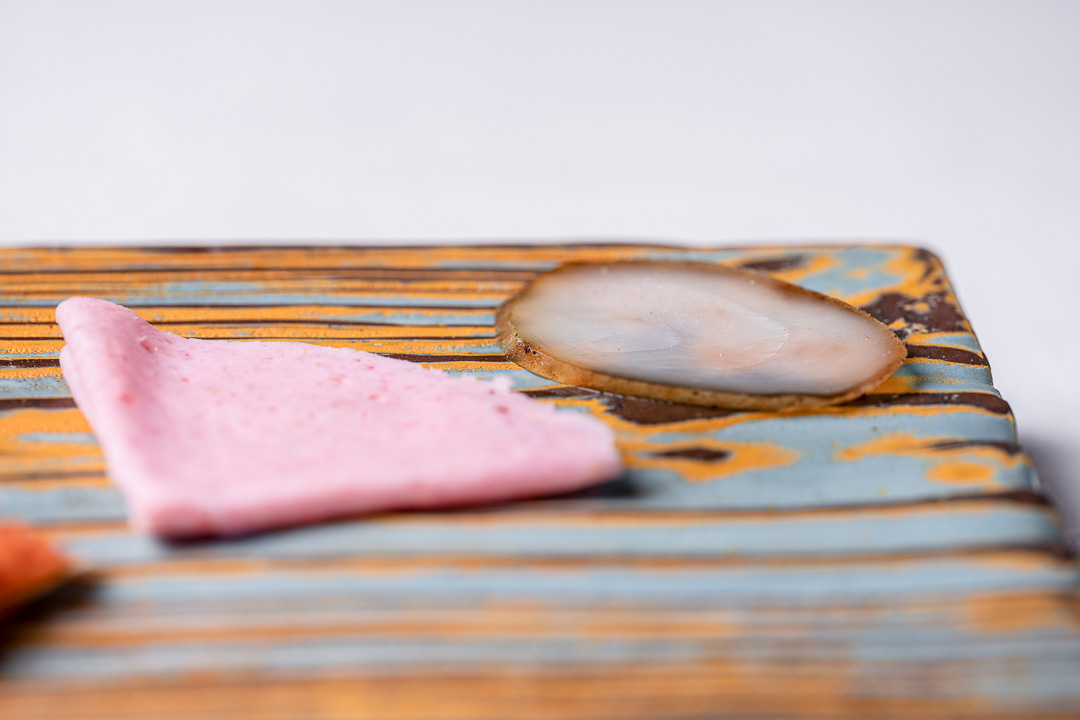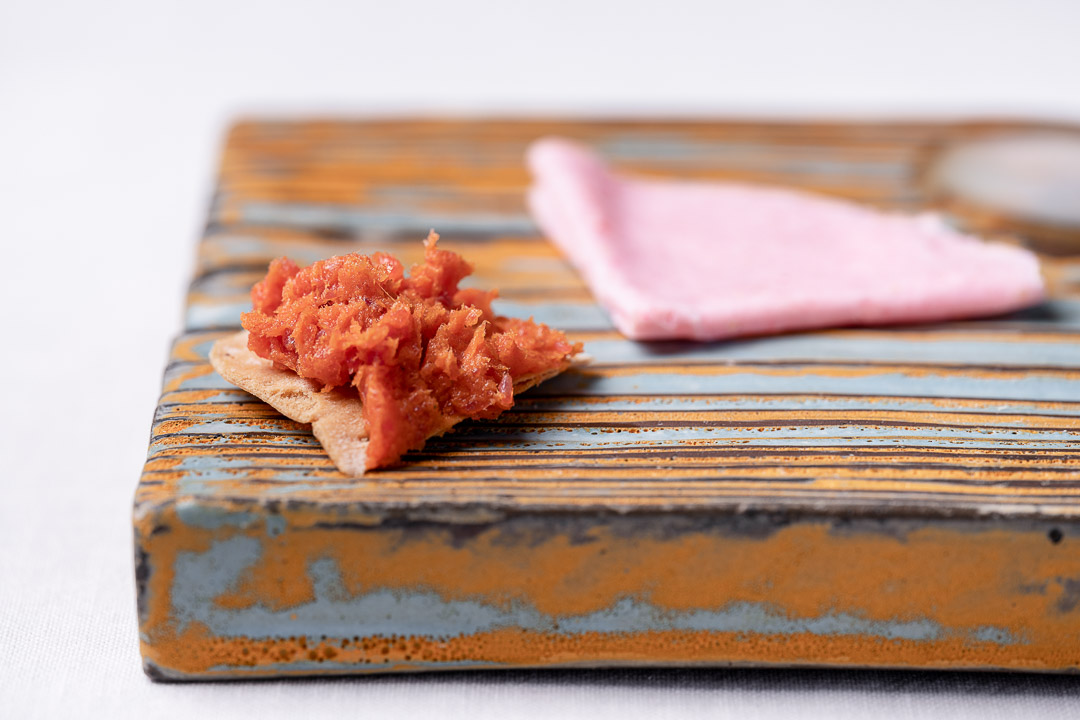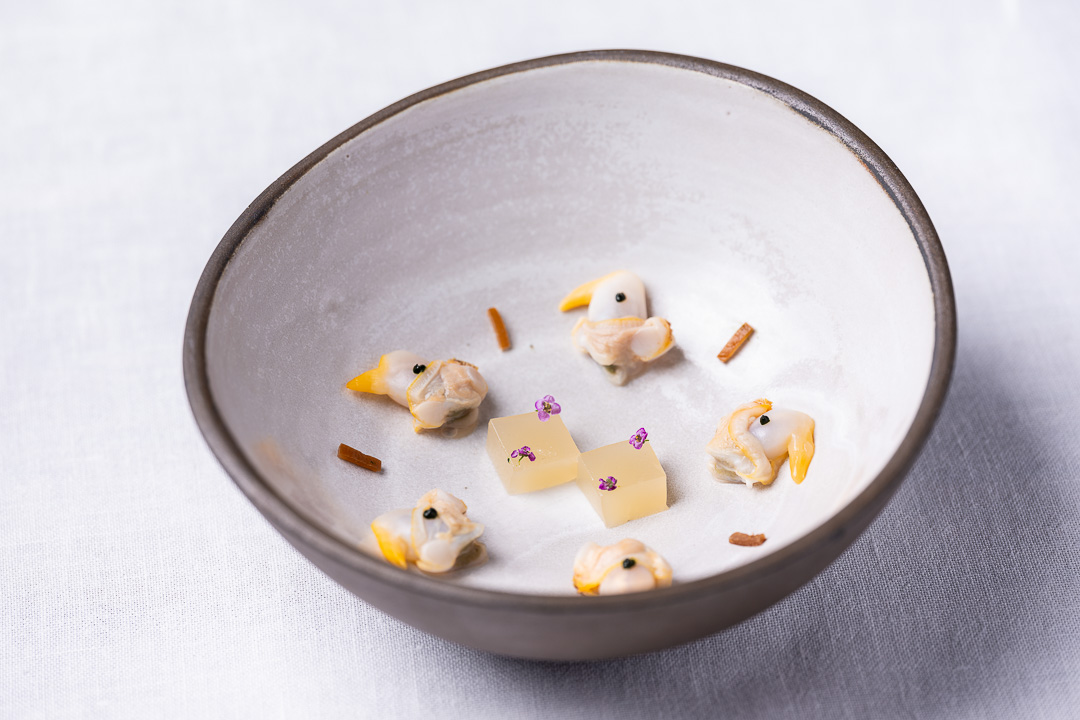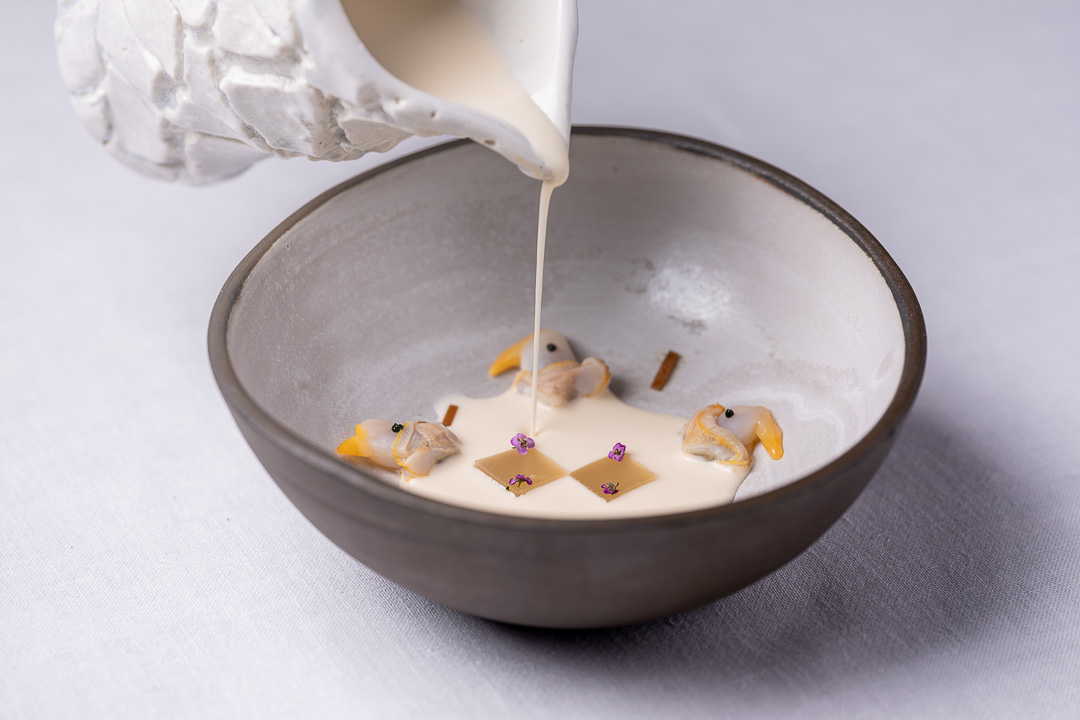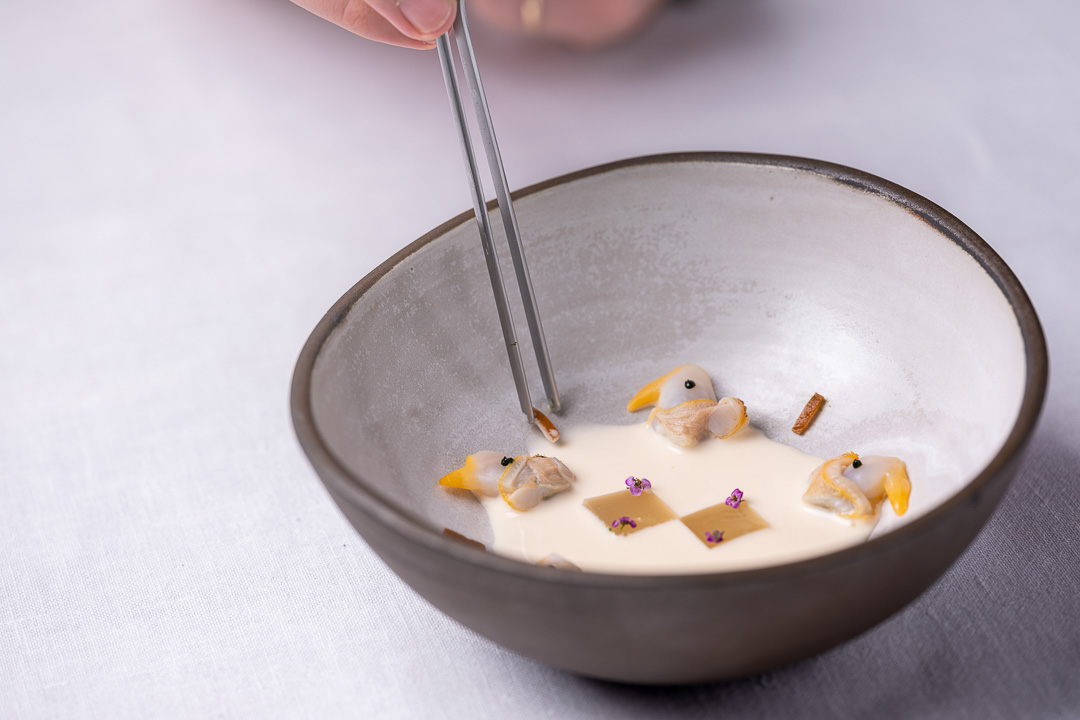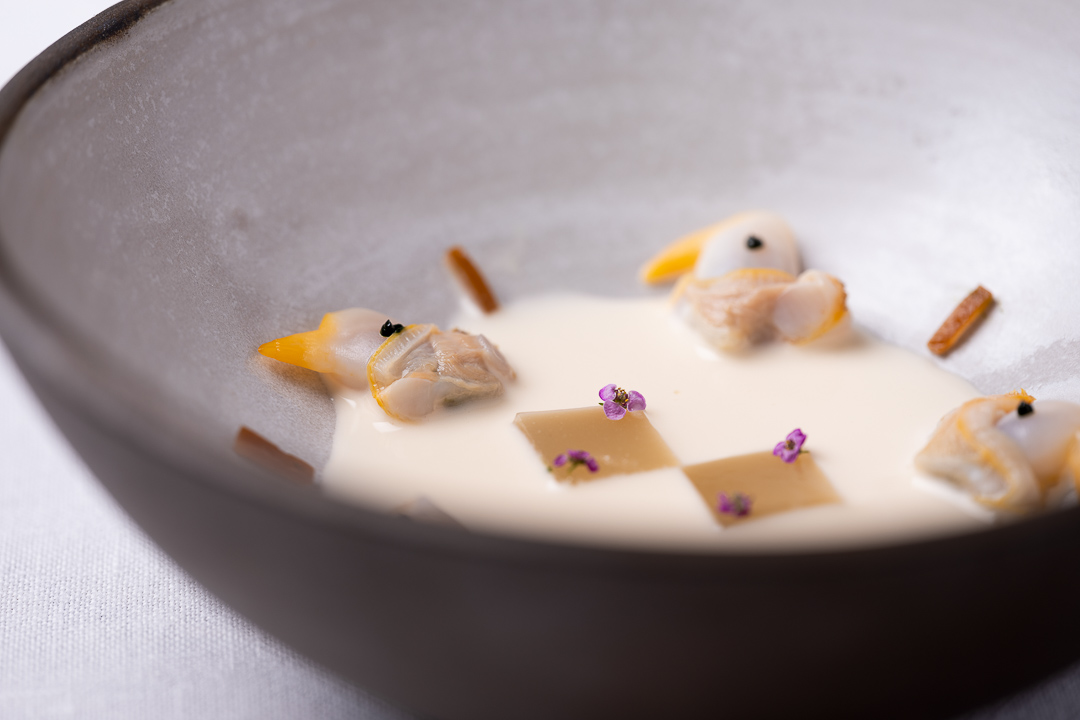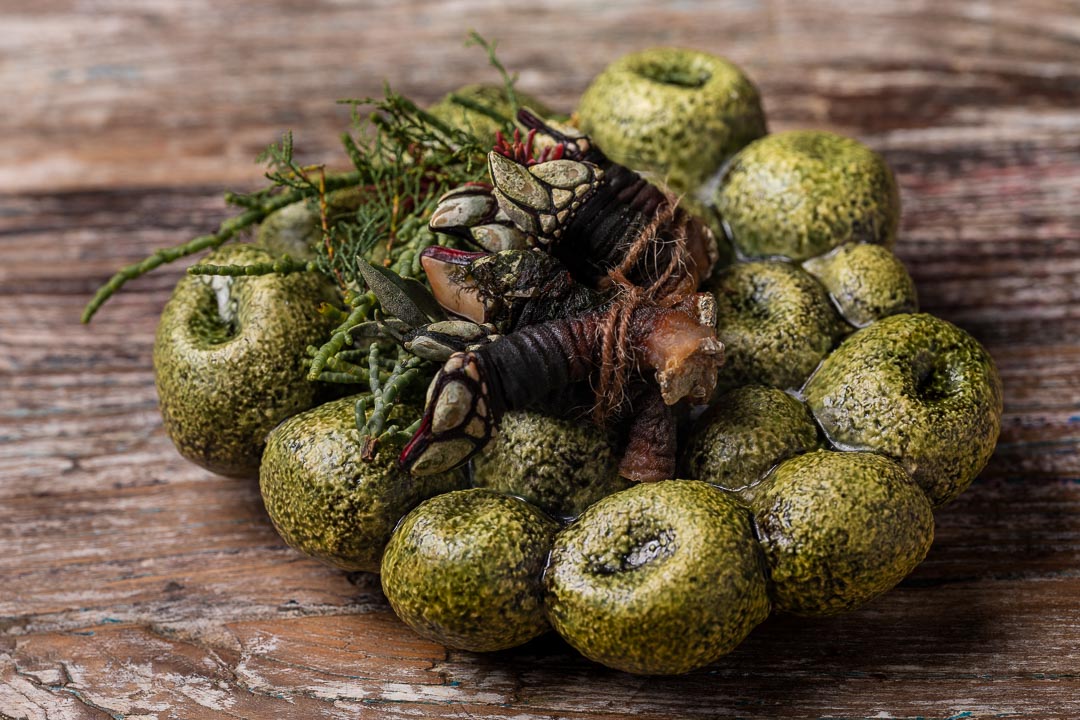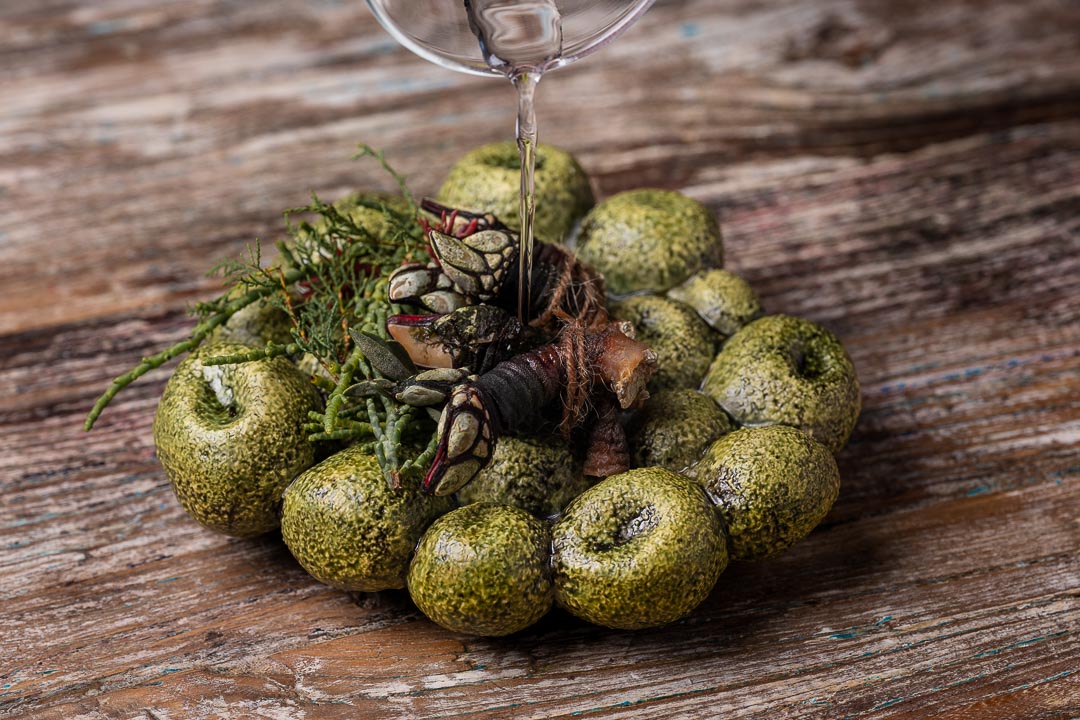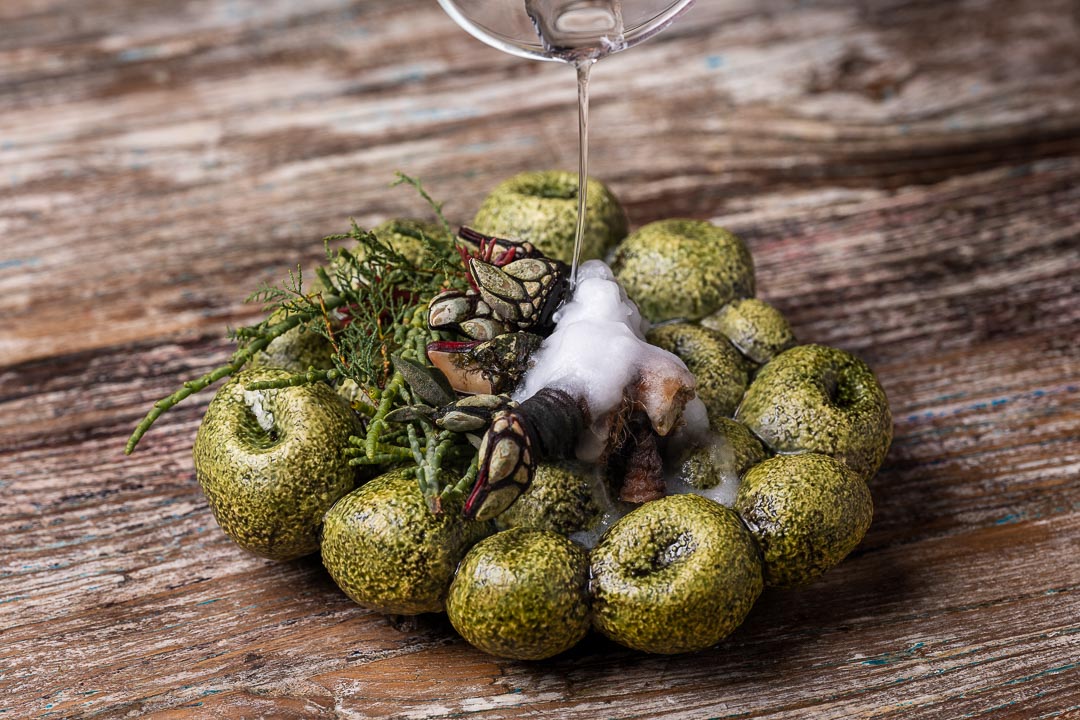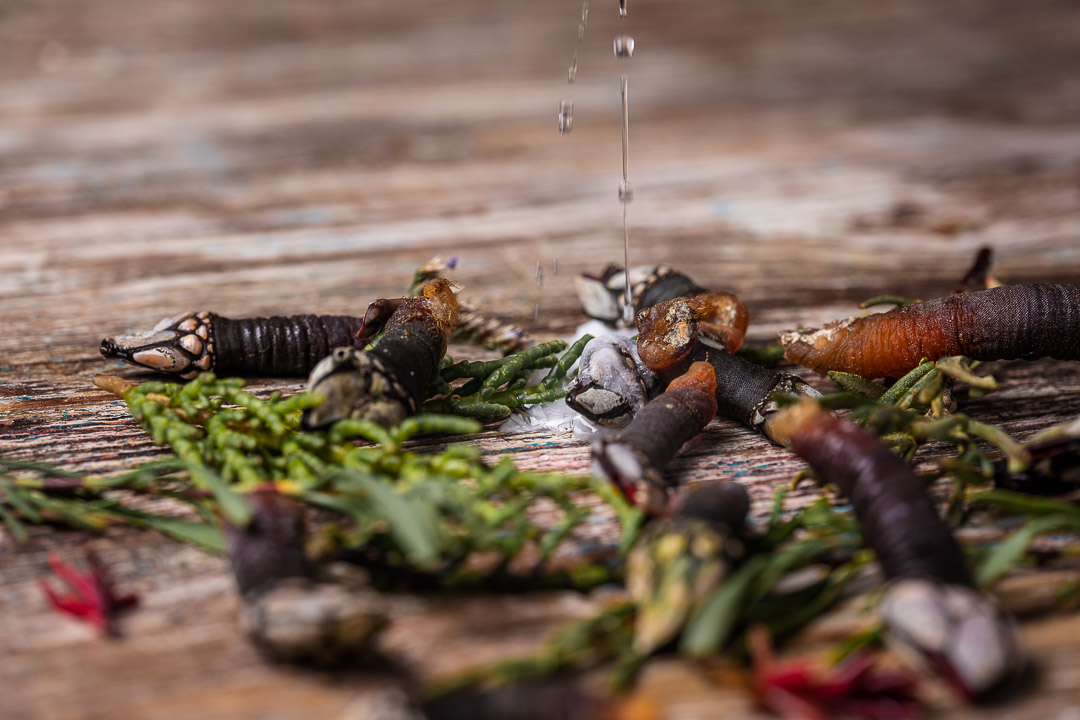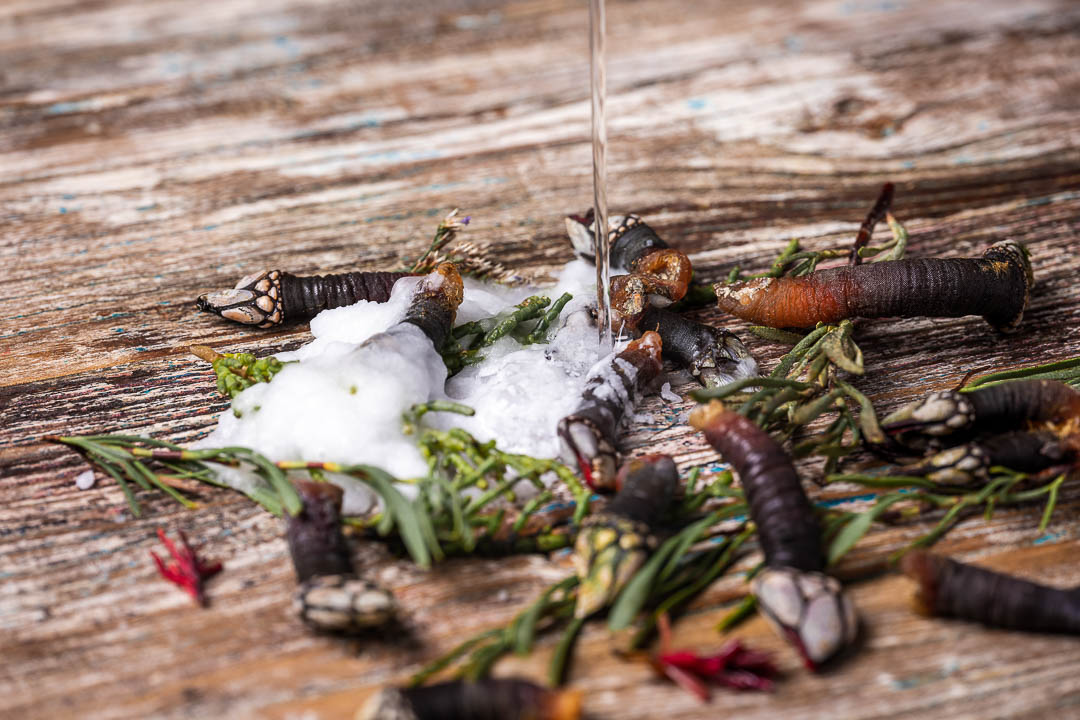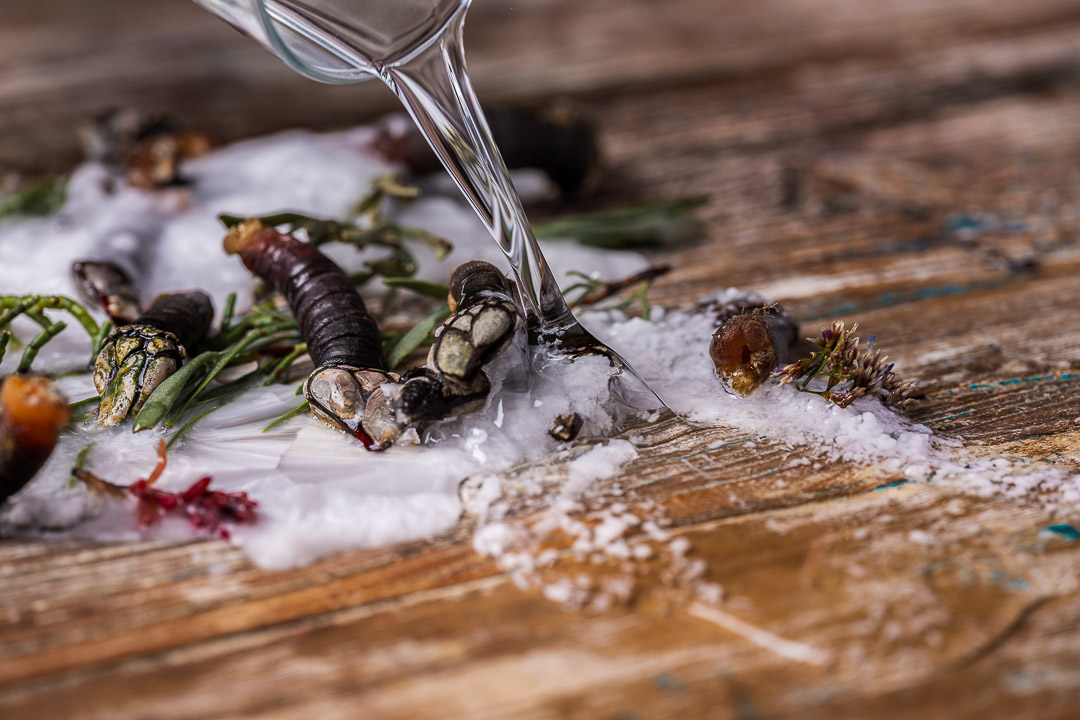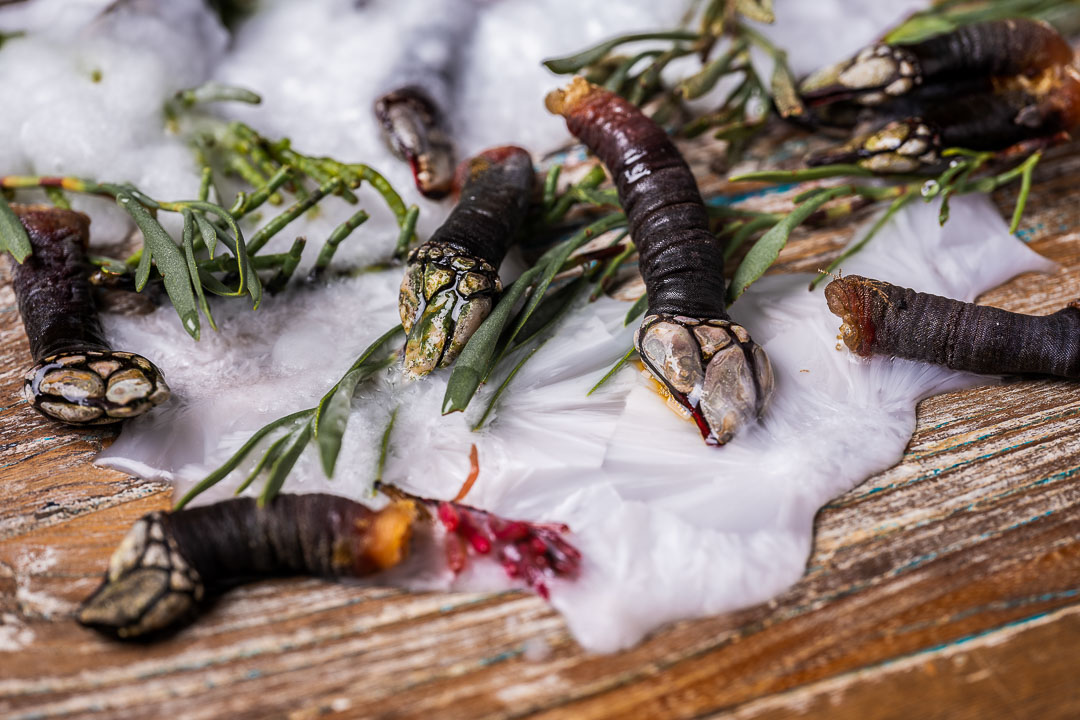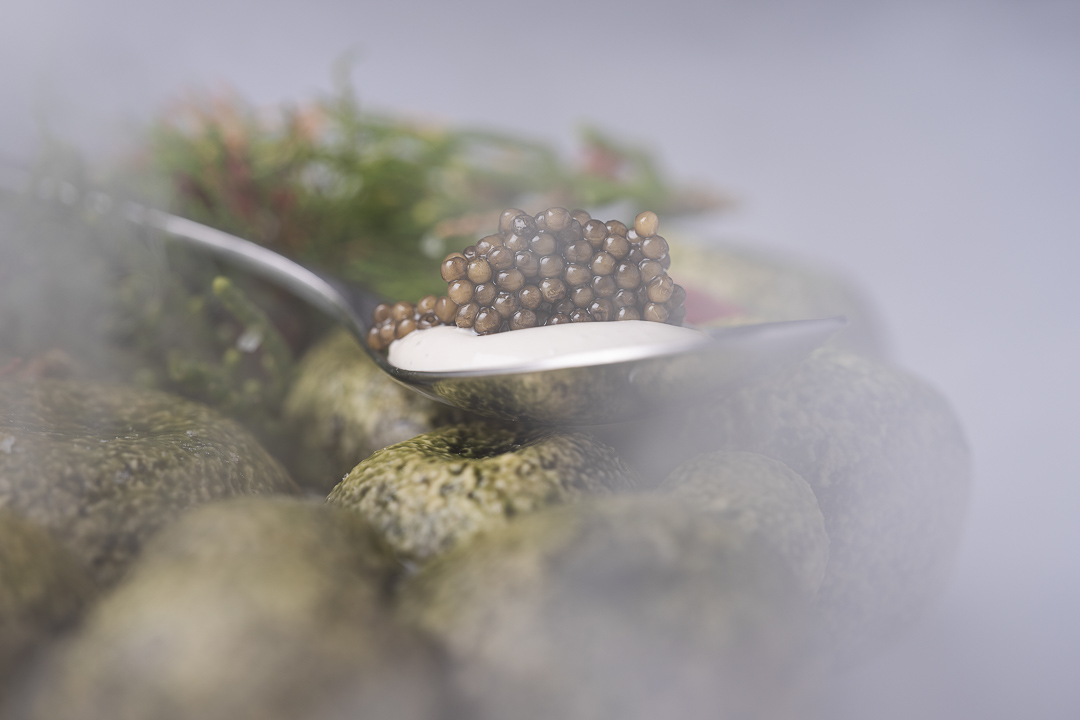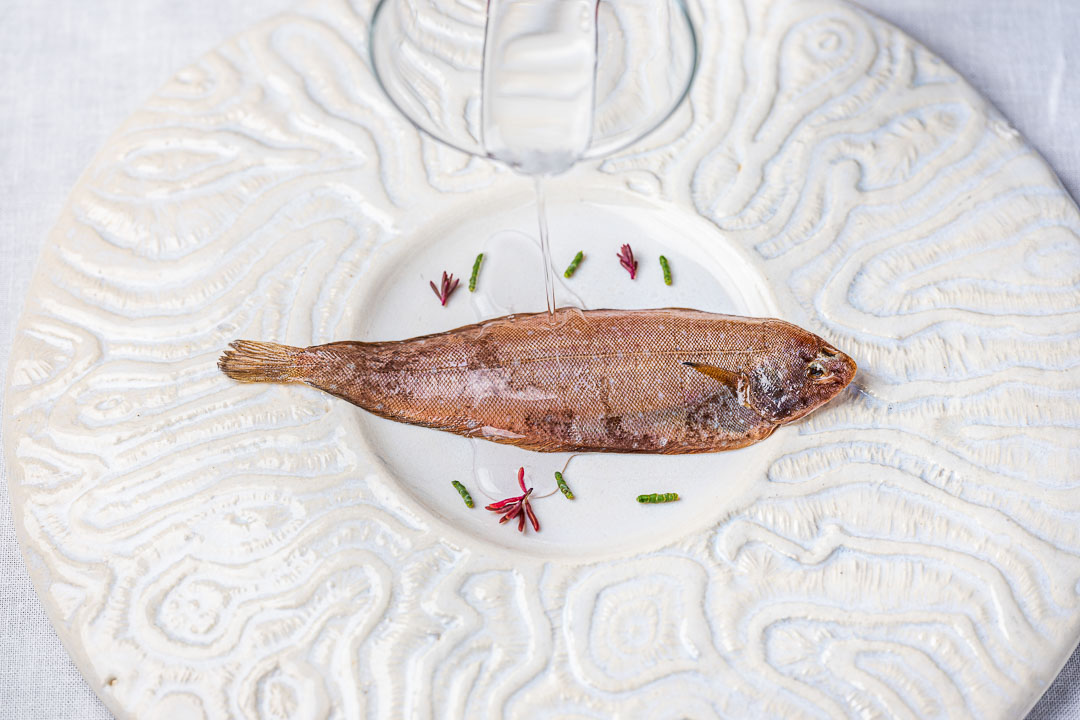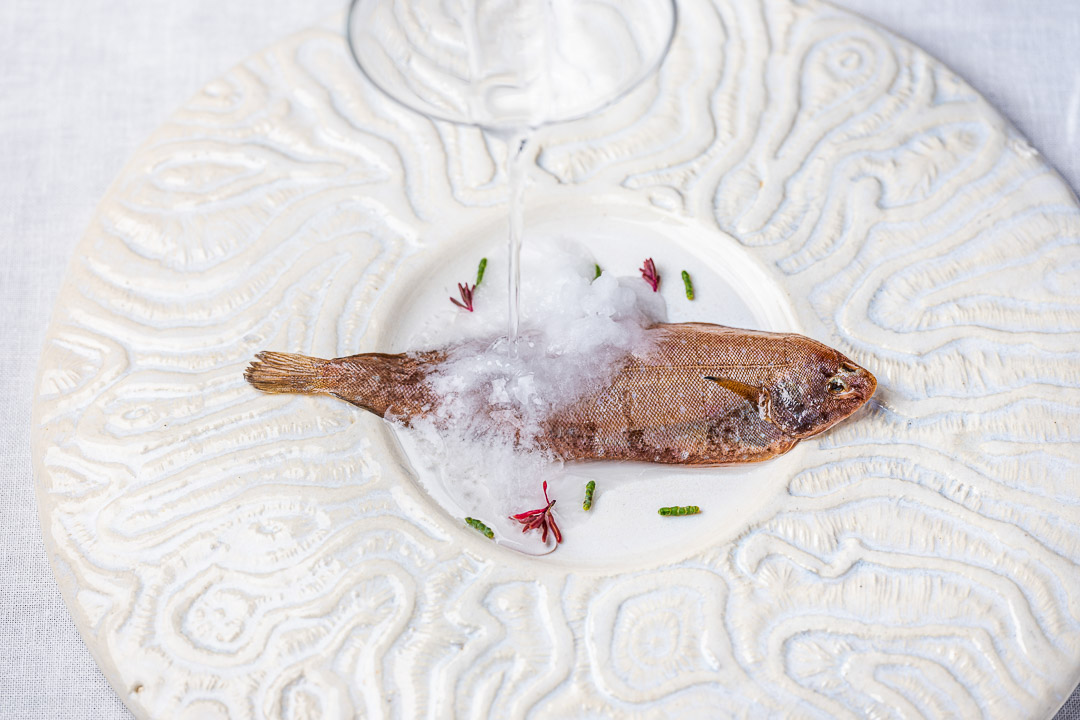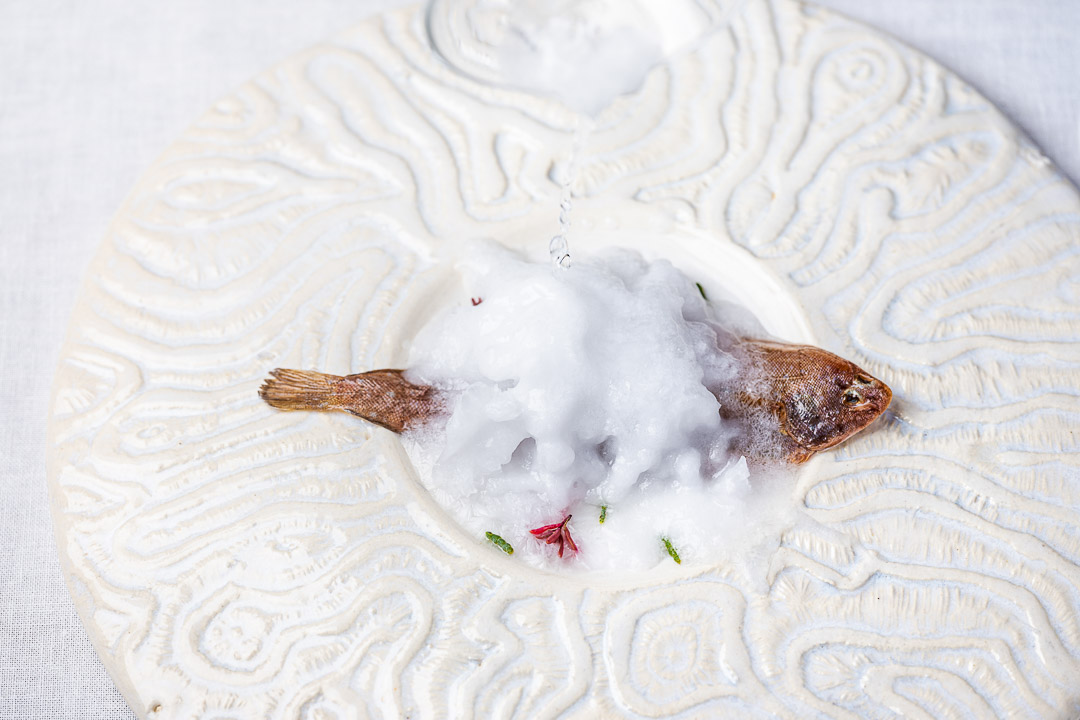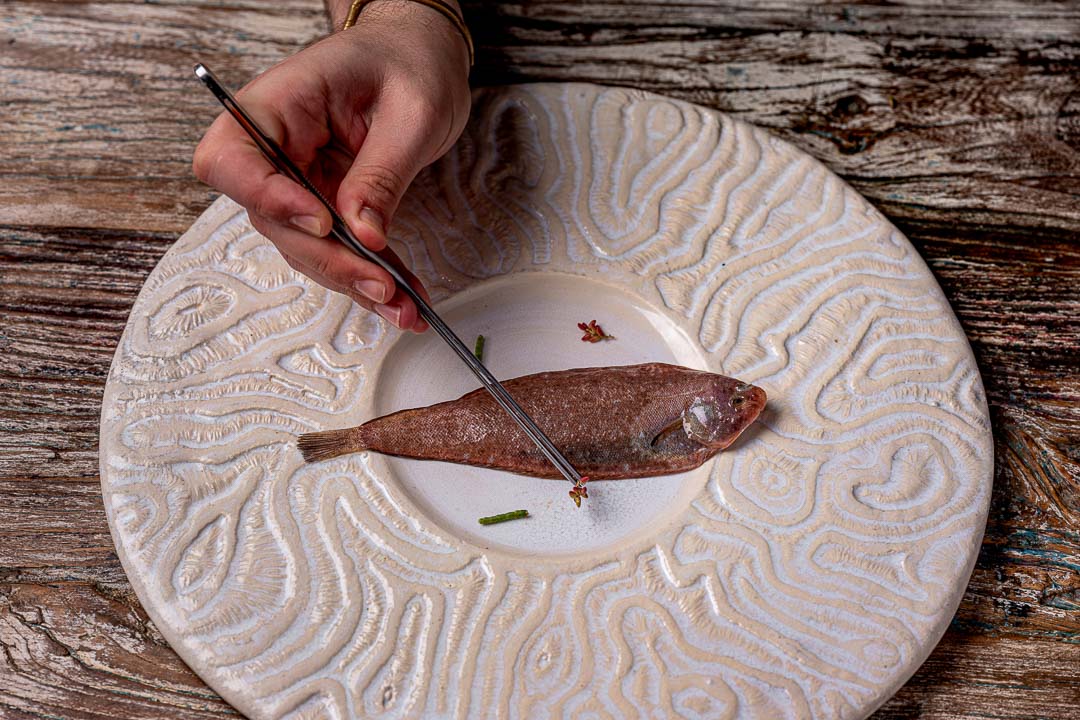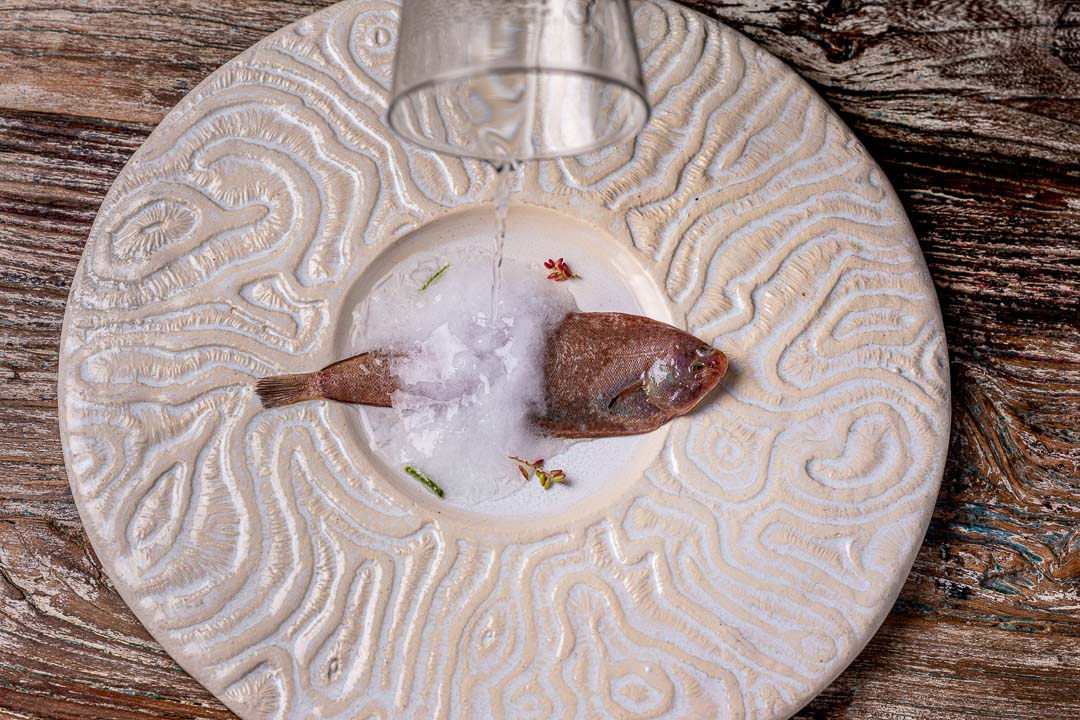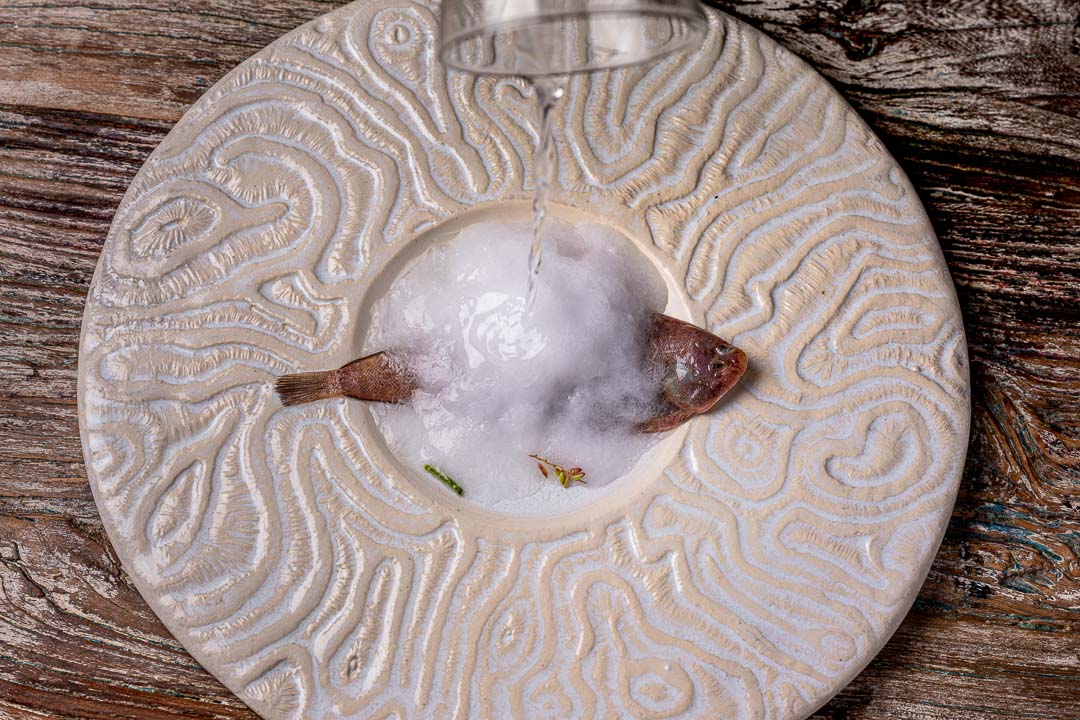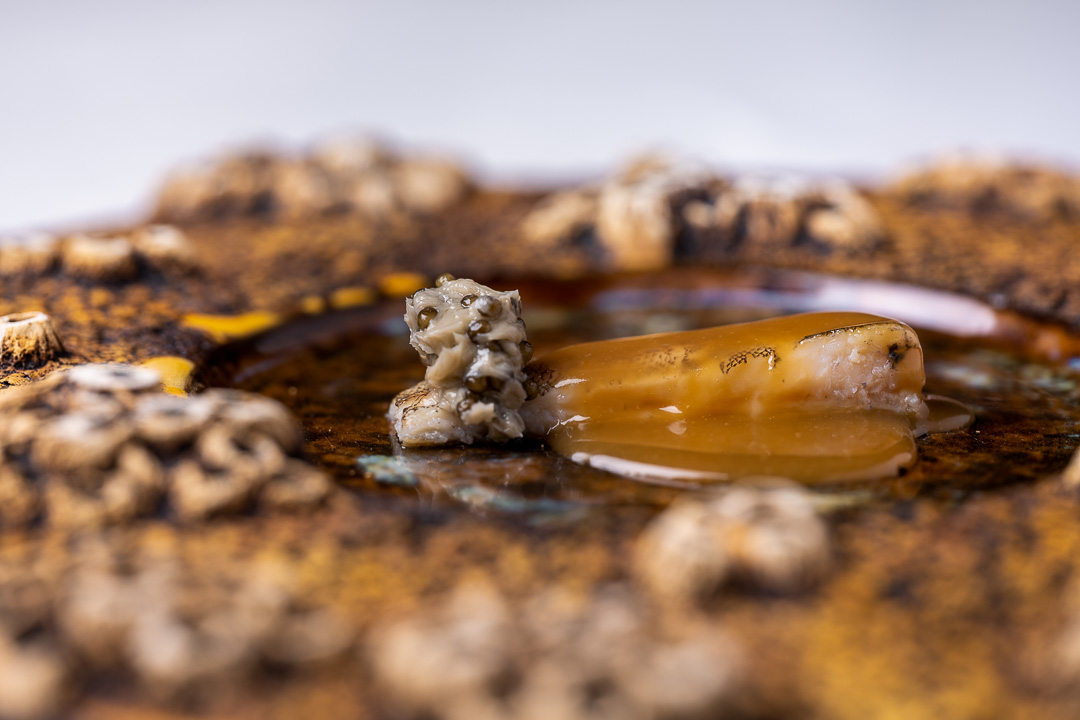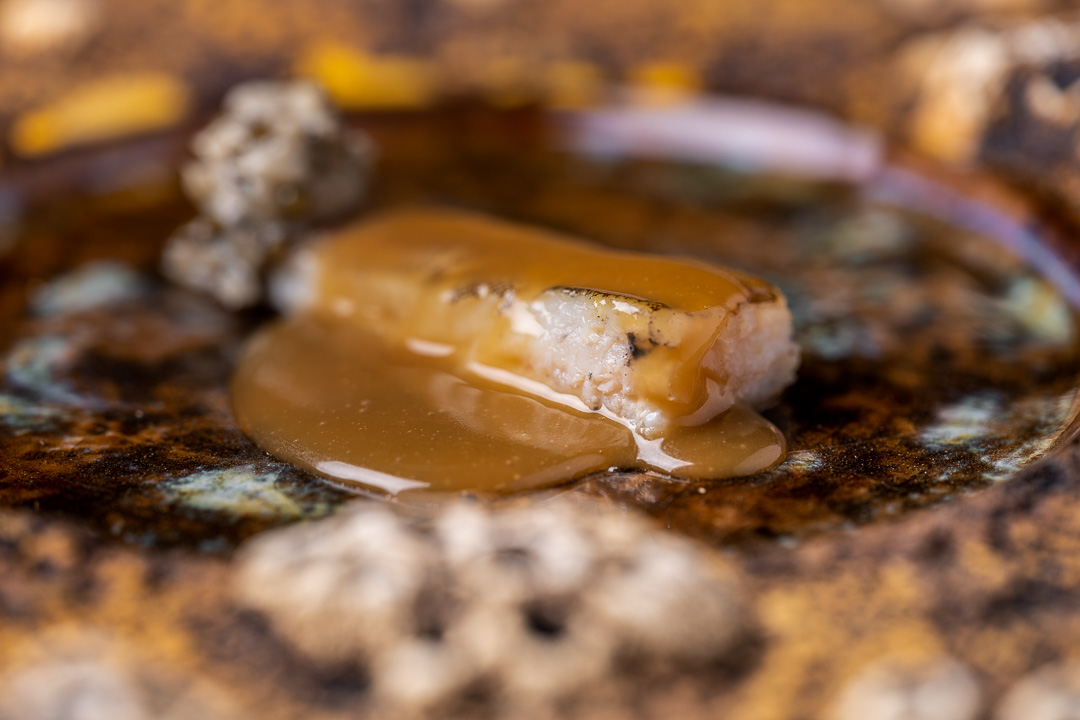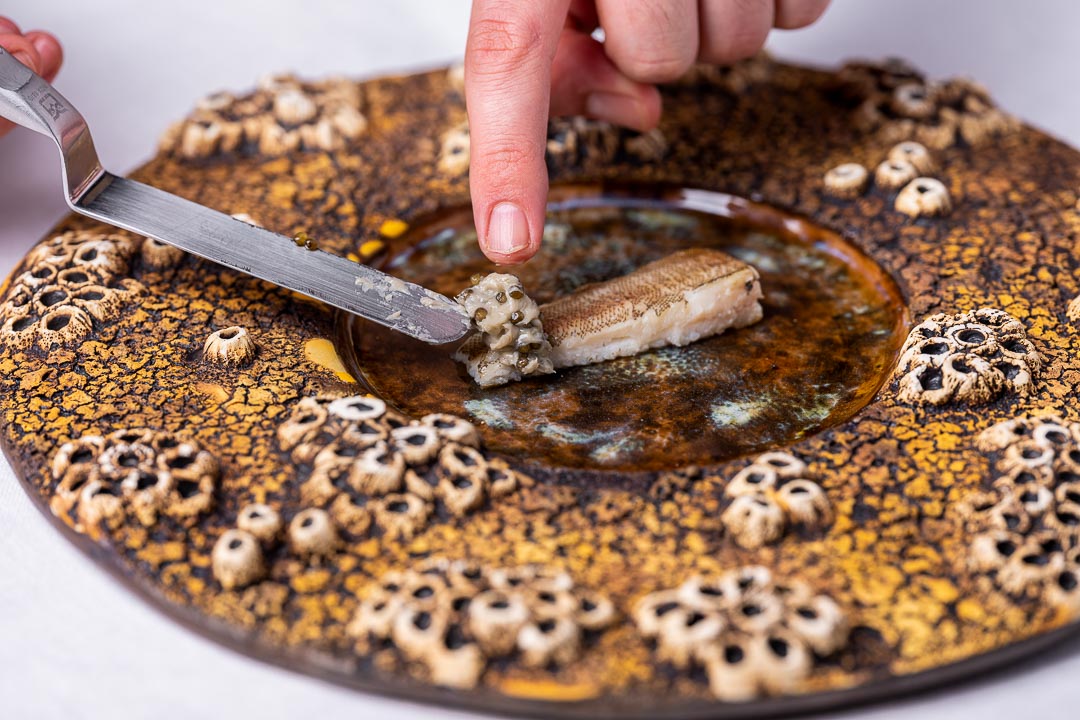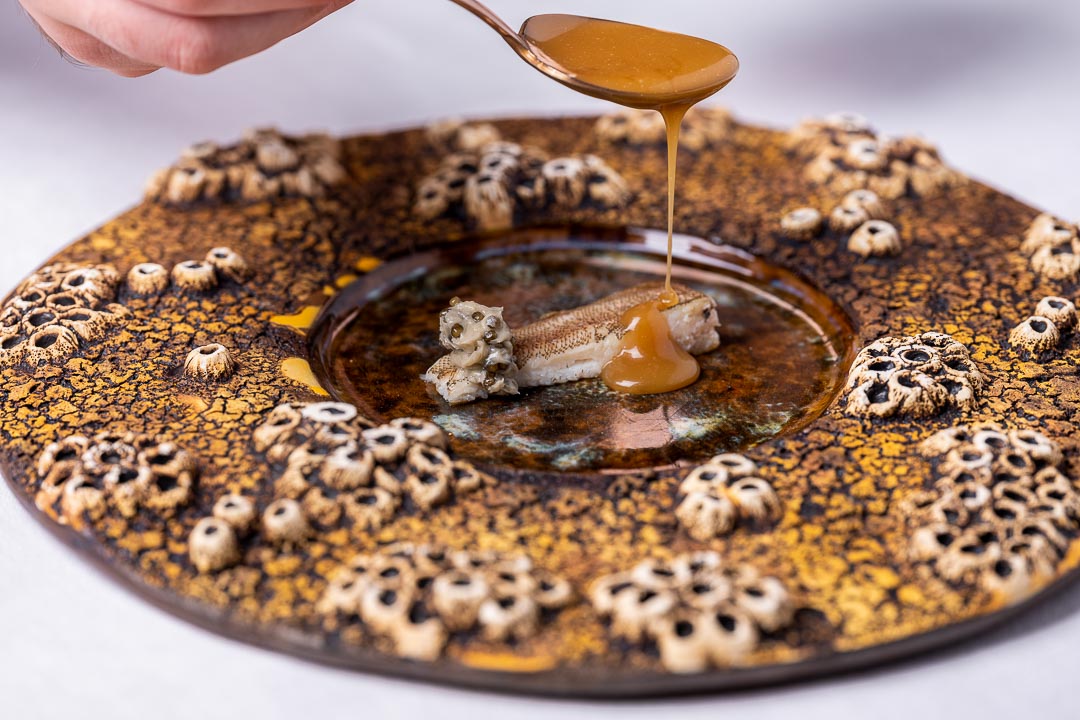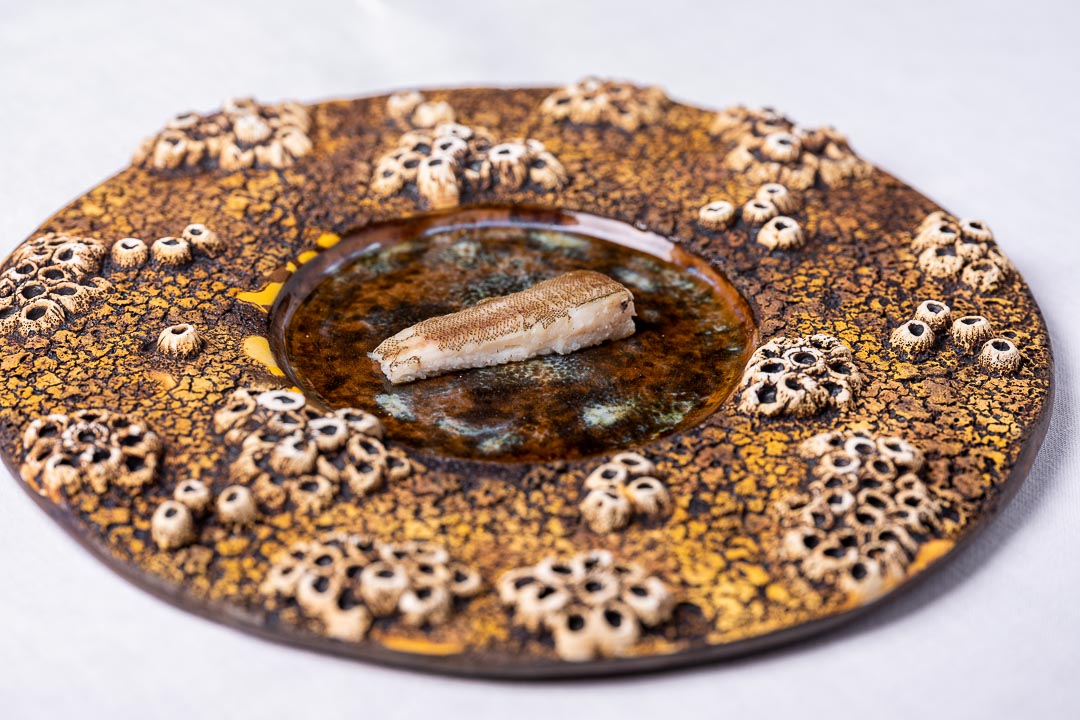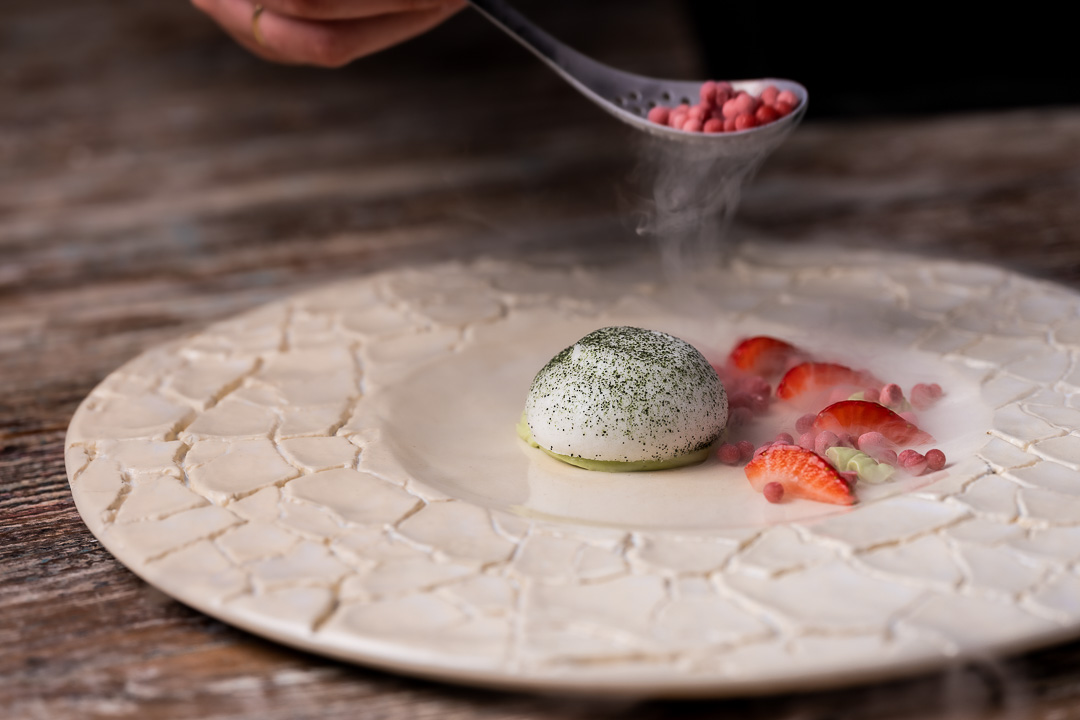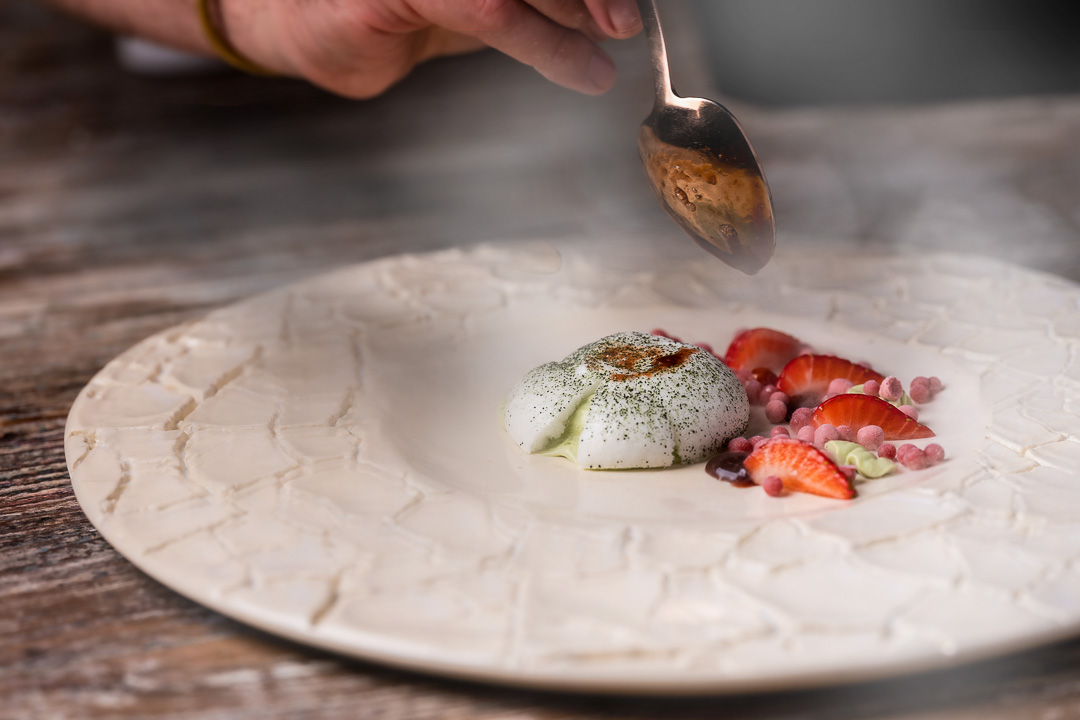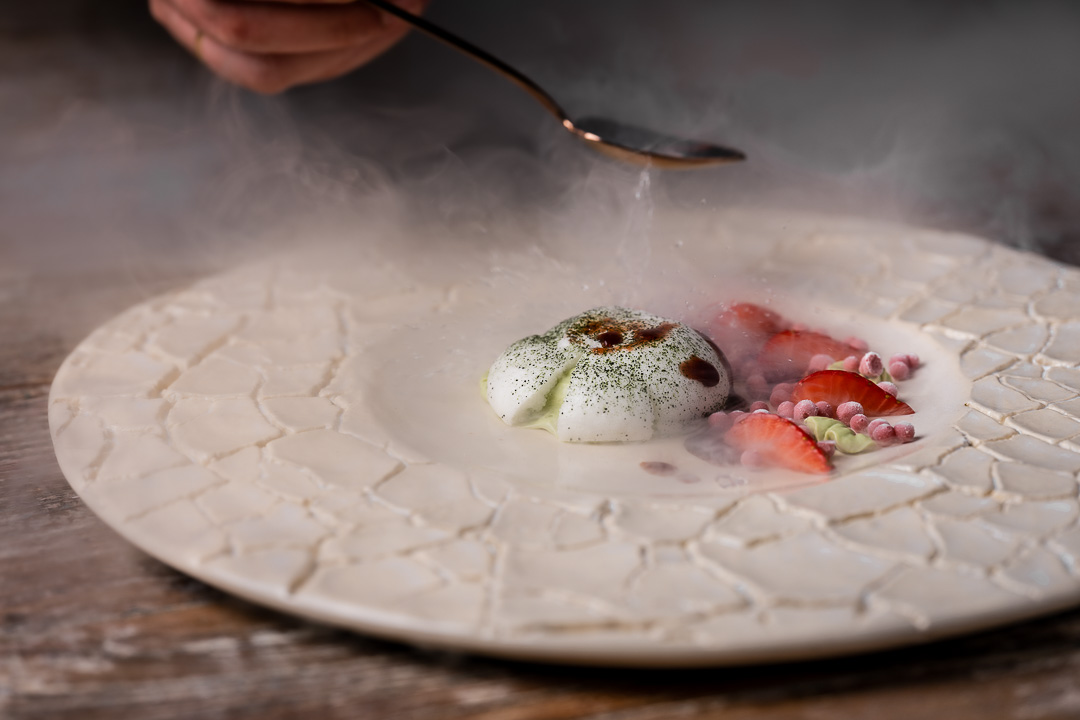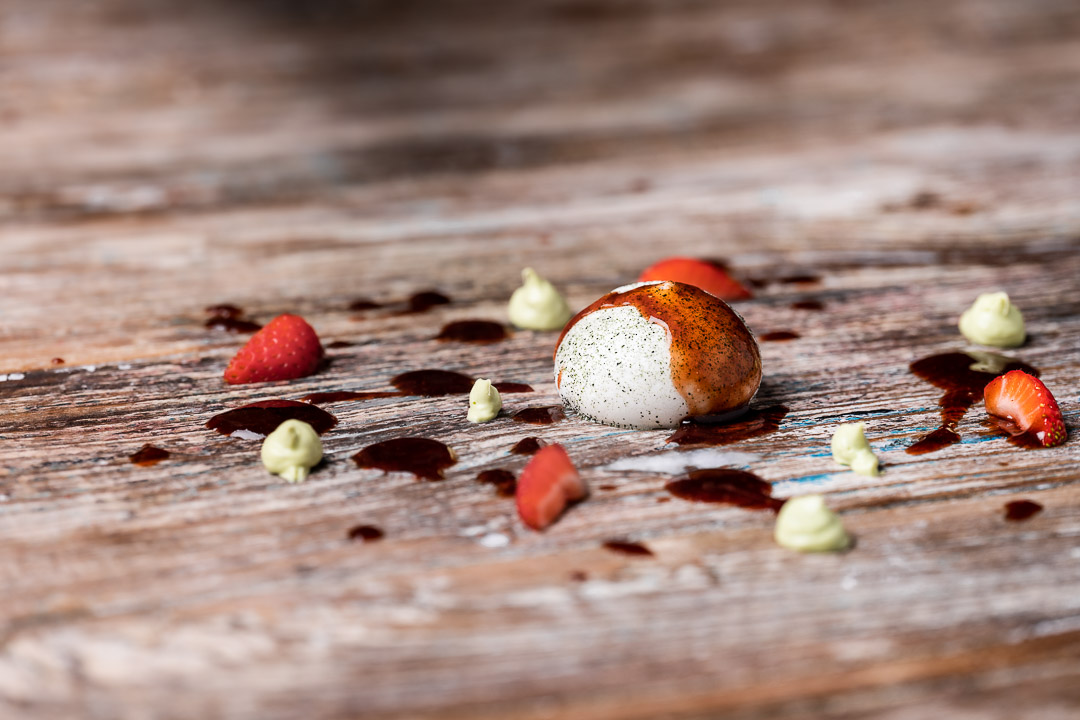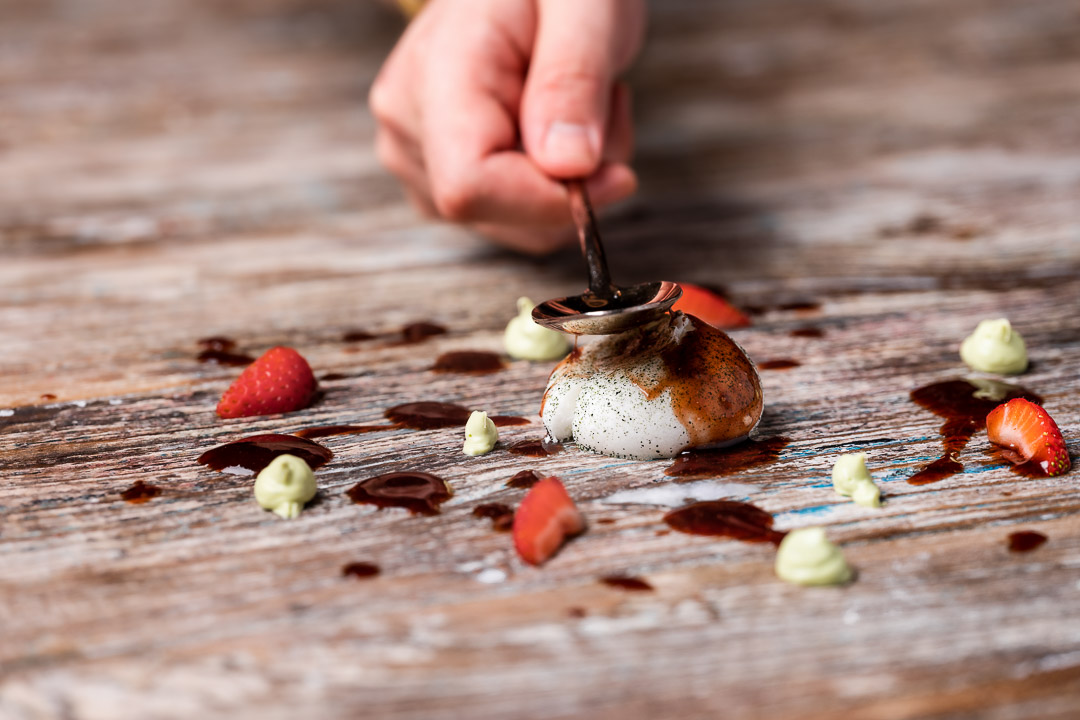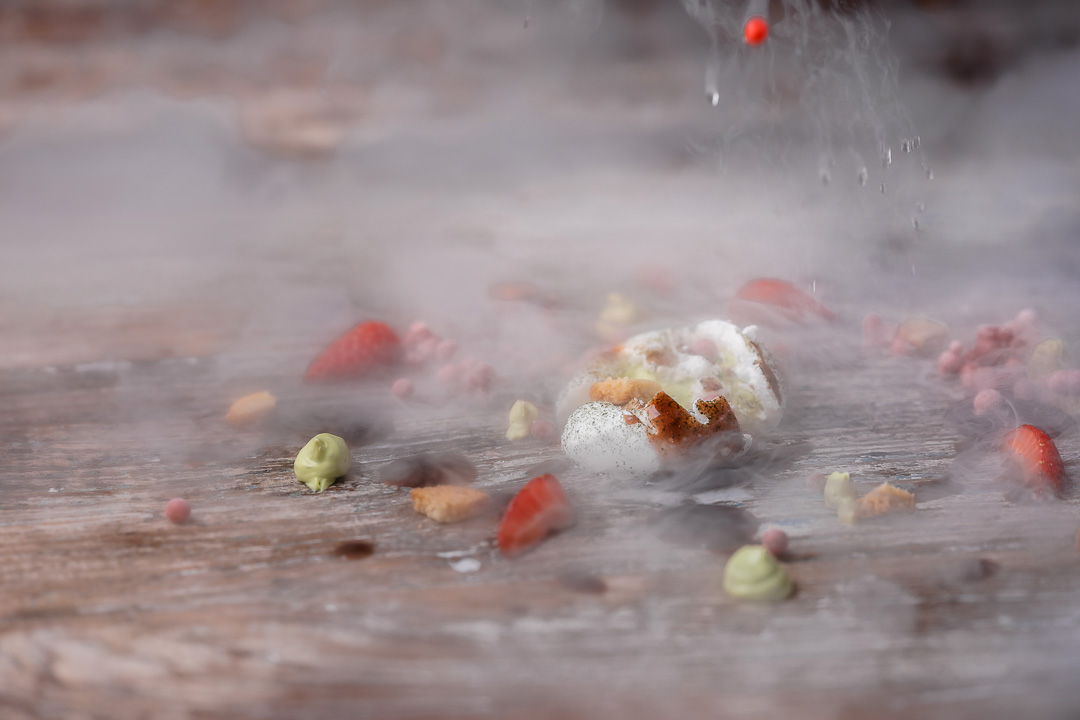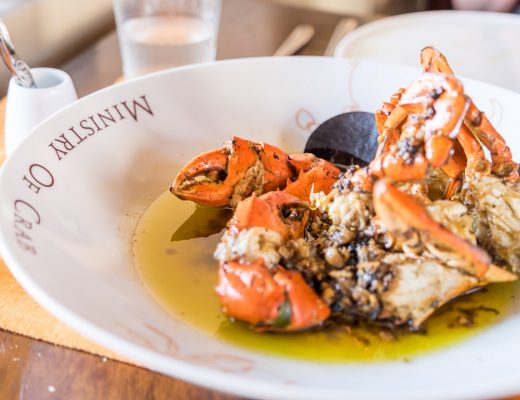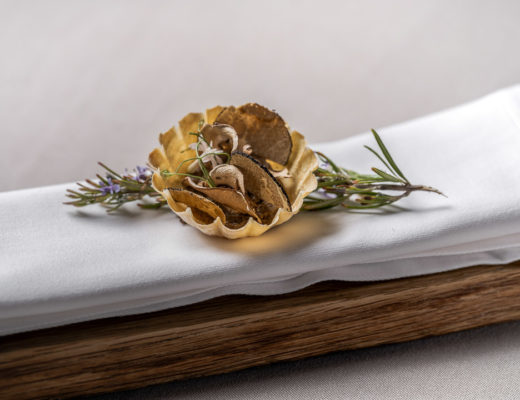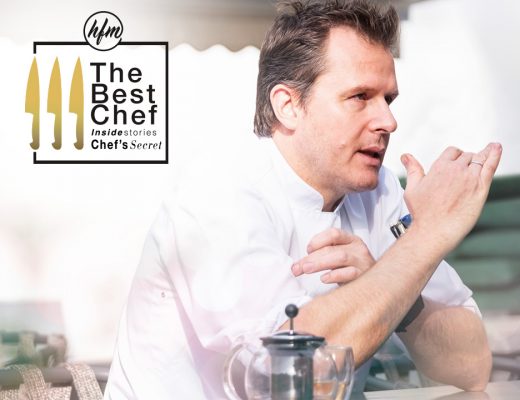In the south of Spain in the province of Cádiz, a half an hour drive from Jerez, there’s a charming harbour town called El Puerto de Santa Maria. Besides its beautiful historical buildings and whitewashed houses, great Sherry wineries and beloved beaches, this place has much to offer for those who seek ultimate culinary pleasure, with Aponiente Restaurant as a must visit checkbox and a true highlight on your bucket list. In his previous life Spanish topchef Ángel León – founder of Aponiente – must have been a creature from the sea, as his passion for the briny deep seems limitless. The obsession with the sea is omnipresent at Ángel León’s culinary home base. The location, the architecture, the interior design, the table decoration and of course the dishes, they all reflect that true love and fascination for the ocean and marine life.
From the beginning of Aponiente to La Taberna del Chef Del Mar today
When Ángel León started his restaurant 11 years ago in El Puerte de Santa Maria, it was located in a small corner house in the city center. The other cornerstone of Aponiente, where the project started, has become a casual and friendly place, to eat with your hands, dip some bread and enjoy the traditional Andalusian cuisine, showing the Chef’s sensibility to the sea. At La Taberna del Chef Del Mar all the research into fish done by the chef in Aponiente is applied to classic courses, expressing the real possibility of achieving excellence by starting from modest products, always with Cádiz as a leitmotiv.
The journey to the tidal mill of the San José salt pan
For Aponiente, after several years of hard work, Ángel León succeeded in moving the restaurant to the location of his dreams: the 18th century tidal mill, within the Bahía de Cádiz Natural Park. The move to the tidal mill was an exceptional and highly ambitious project, and certainly not the most obvious choice. This old tidal mill of the San José salt pan was one of the most important mills in Southern Europe as it supplied flour and food to a large part of the population. Unfortunately, due to the salt crisis of the 70s in Spain and the mechanization of the flour industry, this mill was left in ruins and became a garbage dump, losing all the salt pans and the surrounding environment.
The effort of the Fund for Stewardship and Recovery of the Salt Marsh (SALARTE) to restore it environmentally, recover it hydrodynamically, foster knowledge of its traditions, and facilitate the public enjoyment has made it the highly valued habitat it is today. Today, you can see a restored marshland, new sluice gates, lagoons of fresh and salty water, and nests for birds have been rebuilt. The nutrient richness of mud between tidal levels favours the existence of many species of marine phytoplankton and zooplankton, invertebrates such as molluscs, crustaceans and annelids, which give meaning to one of the most traditional extractive activities: shellfishing. The main species in shellfish are important ingredients of Cádiz cuisine, such as the mud wedge clam, sea snails, shrimps, crab claws, razor clams or oysters.
Today, three years after he moved his restaurant to the Tide Mill, Aponiente feels more than ever connected to the sea, not only because every day the tide brings all its freshness and peace, but also because the incessant and passionate commitment to the sea is more alive than ever. Ángel León has always been in love with this historical place and he did not understand how – in the middle of a Natural Park – people had been able to let such a disaster happen. Until they finally transformed the Tide Mill into a different and splendid space, faithful to the marine philosophy of the enclave, fighting for recovering the salt pans, marshes and estuaries that once surrounded the place.
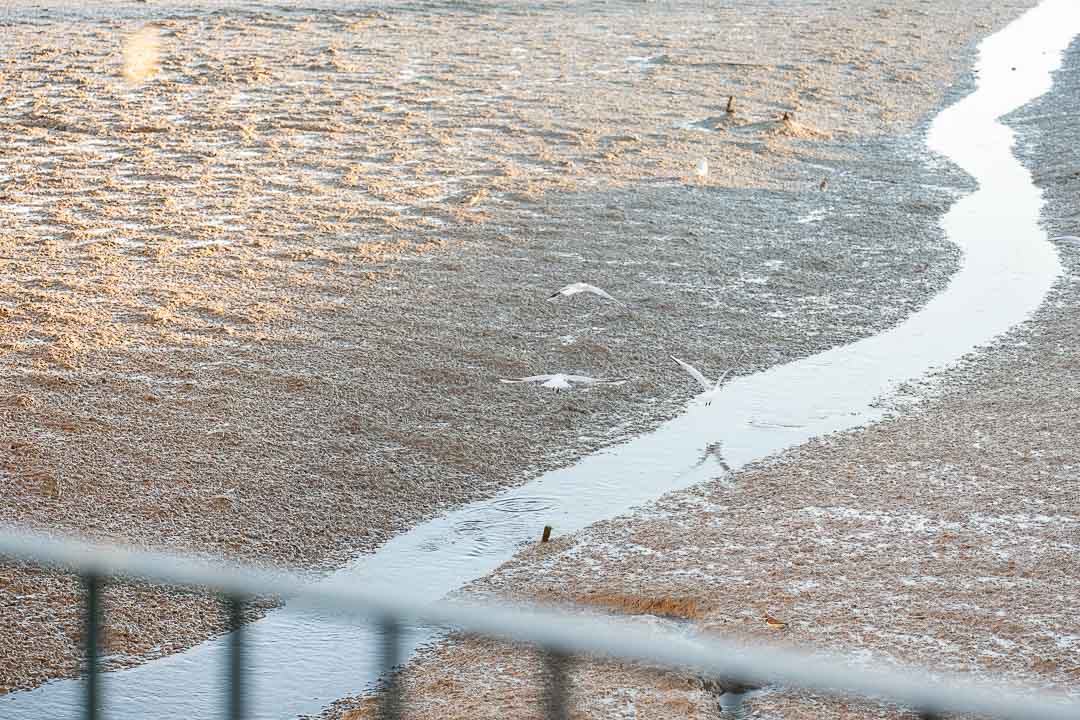
Marine cuisine, with Aponiente’s signature
Aponiente offers a cuisine based on the reinterpretation of the 21st century marine cuisine. Sustainability and the search for a different marine cuisine forged the path of the current restaurant thanks to important discoveries as plankton, introduced as a novel food for gastronomy, or marine charcuterie, using species usually discarded by the fishing trade.
The Chef of the Sea loves discovering and researching new ingredients as much as serving and watching the guests enjoying their immersion into the ocean. Ángel León and his crew never cease to research daily into new projects where Cádiz tradition merges innovation and new marine ingredients. Much effort is being put into that culinary research, leading to the development of innovative gastronomic concepts, like the use of fish scales as natural thickener, the discovery of Plancton Marino as a new ingredient, marine charcuterie development – using only discarded fish in order to create classic Iberian charcuterie as chorizo, butifarra, salchichón, caña de lomo, sobrasada… –, marine sugar development coming from algae, the discovery of how to make soft shells of any crustacean, and so on.
A setting that matches the food and the environment
At Aponiente’s dining room there’s a symbiosis between wine, gastronomy and the art of service and design. The sea is also shared through other artistic initiatives such as art exhibitions, which continue to have the sea as its common thread, thus waging on the dissemination of Cádiz culture in all its dimensions.
In the architecture and interior design, they’ve chosen to go with elements that reflect the sea. By choosing a rather modest decoration, they’ve tried to honour the true spirit and soul of the place where the restaurant is located: the old tidal mill.
When walking to the table the staff escorts the guests, while telling them the story of the place and highlighting the special character of the wine chamber – with its 1500 wines justly called La Sacristía.
Meet Ángel León, chef and defender of the sea
Ángel León is a sailor who found his way of living, working and doing what he loves (cooking the sea) on fishing trips with his father. He is clearly one of the most influential chefs, sharing an innate gift that marks those who make gastronomy persevere and take it to the most unexplored place, the sea, whereby he combines tradition and evolution.
Beyond his commitment to the socialization and exposure of his culinary concept as well as his research and development projects happening in Aponiente since 2007, Ángel regularly gives lectures within national and international congresses and academic institutions as Harvard University or The Culinary Institute of America. He has been involved in many other educational and publishing projects, highlighting his book Chef del Mar (Montagud Editores) and recording several seasons for his own TV show “El Chef del Mar”.
Ángel León has received wide recognition and awards like a nomination for the Best Chef Awards 2017-2018, the Premio Nacional de Gastronomía given by the Real Academia Española (2013), Prix au Chef de L’Avenir by the International Academy of Gastronomy (IAG) (2011), highest honor from the Michelin Guide for Aponiente *** and 25th position from the Top 100 Best European Restaurants by OAD Opinionated About Dining.
Interview with chef Ángel León
The Best Chef & Hungry for More (Chef’s Secret): How would you describe the cuisine and cooking style at your restaurant Aponiente?
Chef Ángel León: Aponiente offers my 21st-century reinterpretation of the cuisine of the sea. Sustainability and the research for a different marine cuisine forged the path of the actual restaurant, thanks to such important discoveries as plankton for gastronomy or the marine charcuterie using species discarded by the fishing trade. Sustainability, gastronomy and environment can be combined perfectly to create a different and unique experience in the world.
Chef’s Secret: Aponiente moved to the new location a couple of years ago. Which impact has this decision had on the cuisine and philosophy of the restaurant?
Ángel León: Today, it’s been four years since we moved location to the Tide Mill at El Puerto de Santa Maria. Now Aponiente has a deeper connection with the sea, not only because the tide from the ocean visits the building every day, bringing all its freshness and peace, but also because the incessant and passionate commitment to the sea is more alive than ever. This is reflected for example in our work with raw products from the salt marshes, or in all the halophilic plants we use for our dishes.
Chef’s Secret: Where do your inspiration and ideas for new dishes come from?
Ángel León: Constantly from the sea… from this blue giant that offers us so much. The research of marine ingredients and new techniques is what keeps us alive, as we merely know 40% of marine products.
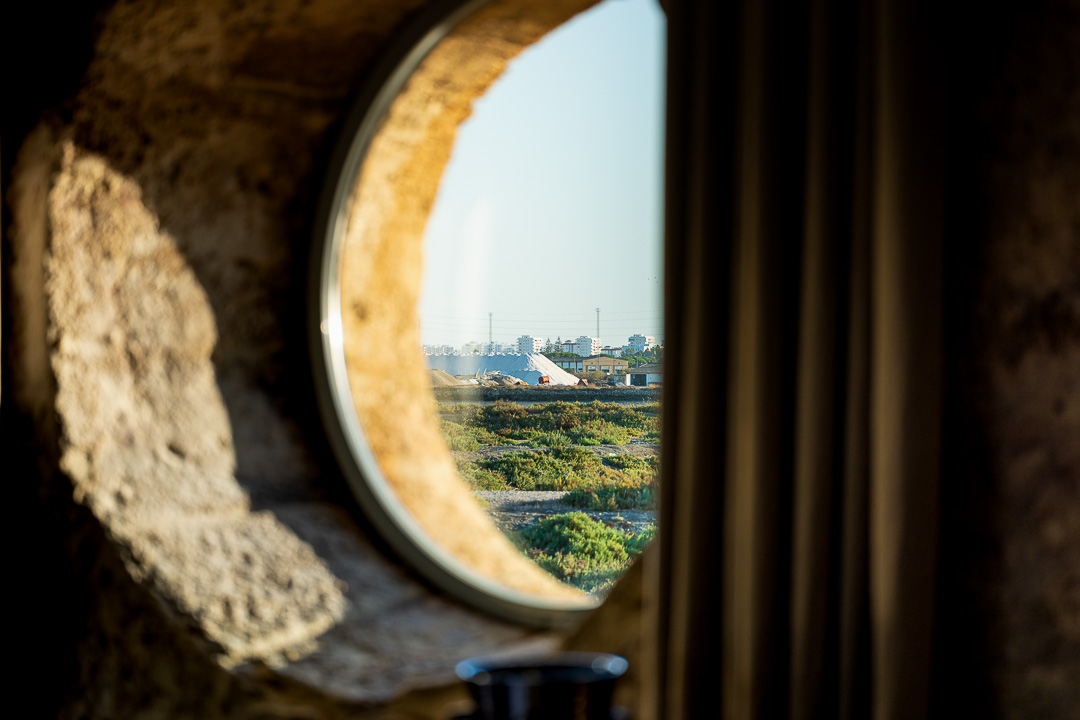
Chef’s Secret: What do you think about trends in the culinary world (e.g. the popularity of the Spanish molecular cuisine, or the Nordic cuisine)? Can this be an inspiration for you or does it have an influence in Aponiente as well?
Ángel León: All current chefs have taken the inspiration of both facets, but in our case, mainly from Ferran Adriá, as we feel a strong inspiration coming from the “father” of the modern Spanish cuisine. We never forget the great classic chefs who set the scene of our culinary culture, like Berasategui, Hilario Arbelaitz, Arzak, Subijana…
Chef’s Secret: Do you have a signature dish?
Ángel León: Plankton rice, obviously. I feel plankton as the ultimate expression coming from the sea. From the moment I managed to serve it, a new way of expressing my seafood concept emerged. I define it as a “nearly perfect” ingredient, with 50% more protein and 100 times more Omega-3 than olive oil. From a culinary perspective, it pairs perfectly, doesn’t break the sauces and adds iodine tones to the dishes, has several values in pizzas, pasta, risotto, where you can get the classic texture of this Italian recipe without adding any fat. This particular attributes make plankton equally useful in haute cuisine or even when cooking at home. Nowadays you can find it almost everywhere as new dishes are created, thanks to the point of view from different chefs.
Chef’s Secret: What do people have to remember after a visit to Aponiente?
Ángel León: Basically, a mix of fun, a good taste in your mouth and at least some comprehension of our respect for the sea.

Chef’s Secret: You seem to be a chef with a mission. Do you consider yourself a chef, or more a protector and defender of the local culture and culinary heritage?
Ángel León: I don’t consider myself to be a defender… Cádiz is the place where I have always been happy, I am an eternal defender of my homeland and maybe we are not aware of the resources we have. As I mentioned before, it is fundamental to claim the sea as I know it and from where I know it. It has never been easy being located in the deep South of Spain, and not in a big city, but I want to be loyal to my homeland and I want my crew to share their background with me. Cádiz feels like heaven and I am so happy for that.
Chef’s Secret: If you would not have been a chef, what other profession would you have chosen?
Ángel León: Marine biologist, no question.
Chef’s Secret: What do you love most about your job?
Ángel León: My personal motivation is getting inspired by the sea, start creating and getting my crew excited so we can work together and our ideas take shape.
Chef’s Secret: And what is the most difficult part of your profession?
Ángel León: My agenda: sometimes we forget that a chef is supposed to cook for other people… and sometimes I “suffocate”, like a fish out of water.
Chef’s Secret: What are your ambitions and goals for the future?
Ángel León: Beyond developing new techniques, I find myself looking for and researching new products for mankind. From all the sea left for us to explore…that’s my ultimate goal. Aponiente has a daring crew and we are always in partnership with several institutions and universities, challenging them with new ideas and projects, always headed to find new seafood flavours… within some seasons there will be no more fish in Aponiente.
Menu Aponiente
Sardine canelé: classic petit fours from Bordeaux, made of dried sardines and mustard.
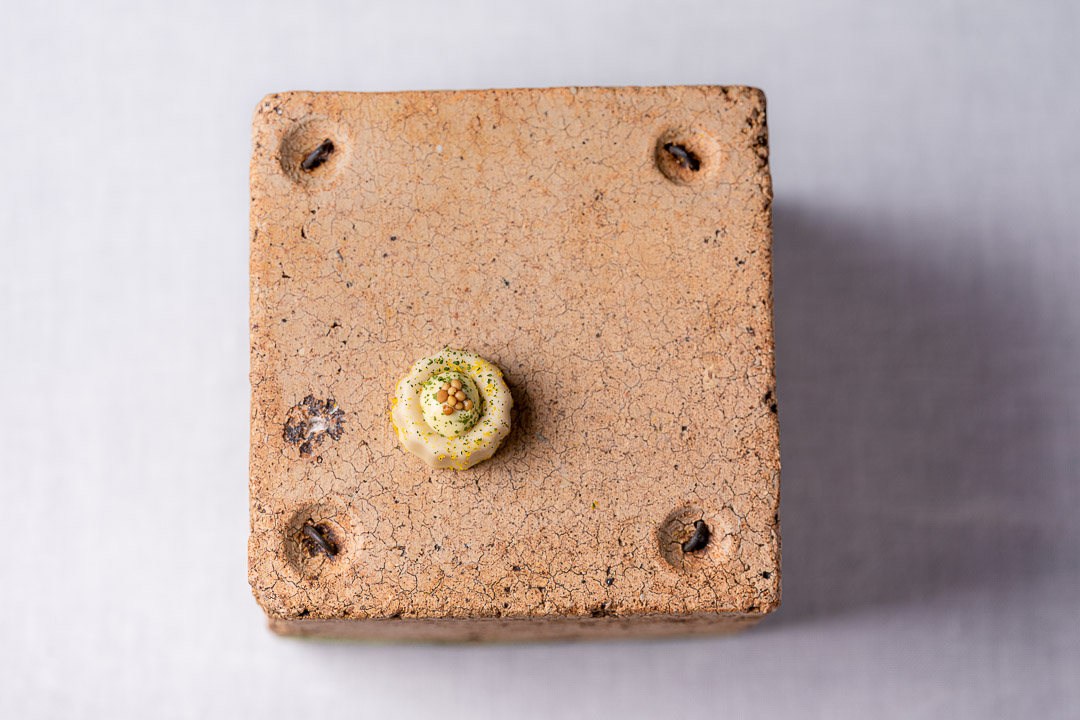
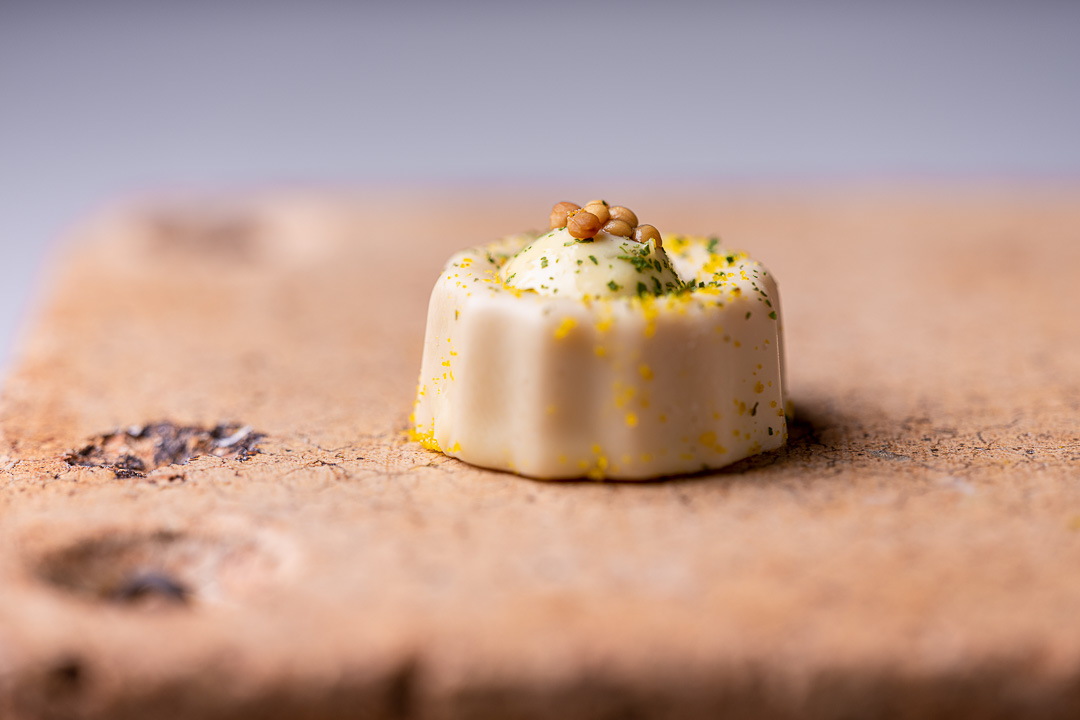
Crab thighs: classic deep fried Alaskan crab thigh, made with local Green crab, edible claw and a hollandaise cocktail sauce.
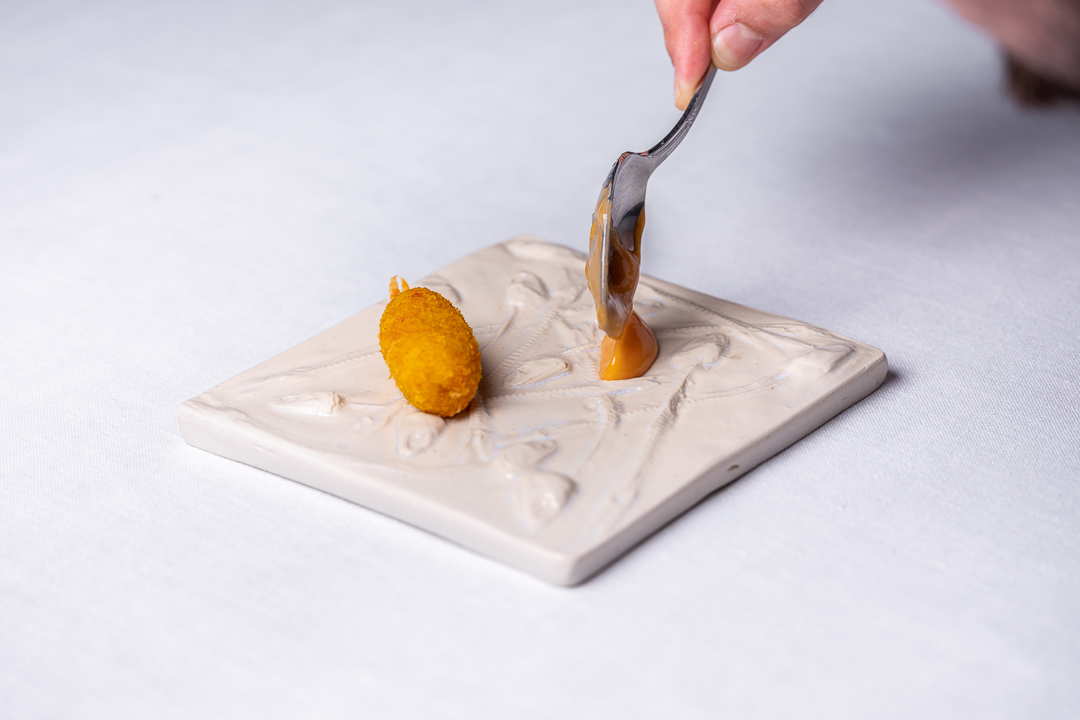
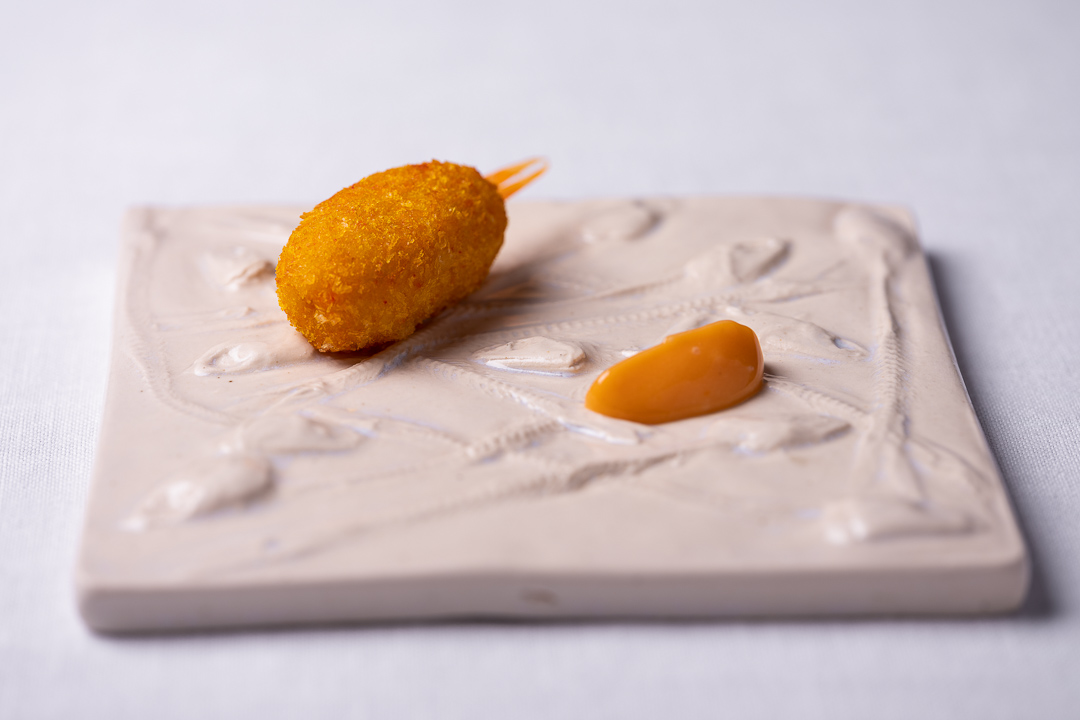
Shrimp fritter: the iconic récipe from Cadiz with the same traditional ingredients, baby shrimp, spring onion, chickpeas flour and parsley.
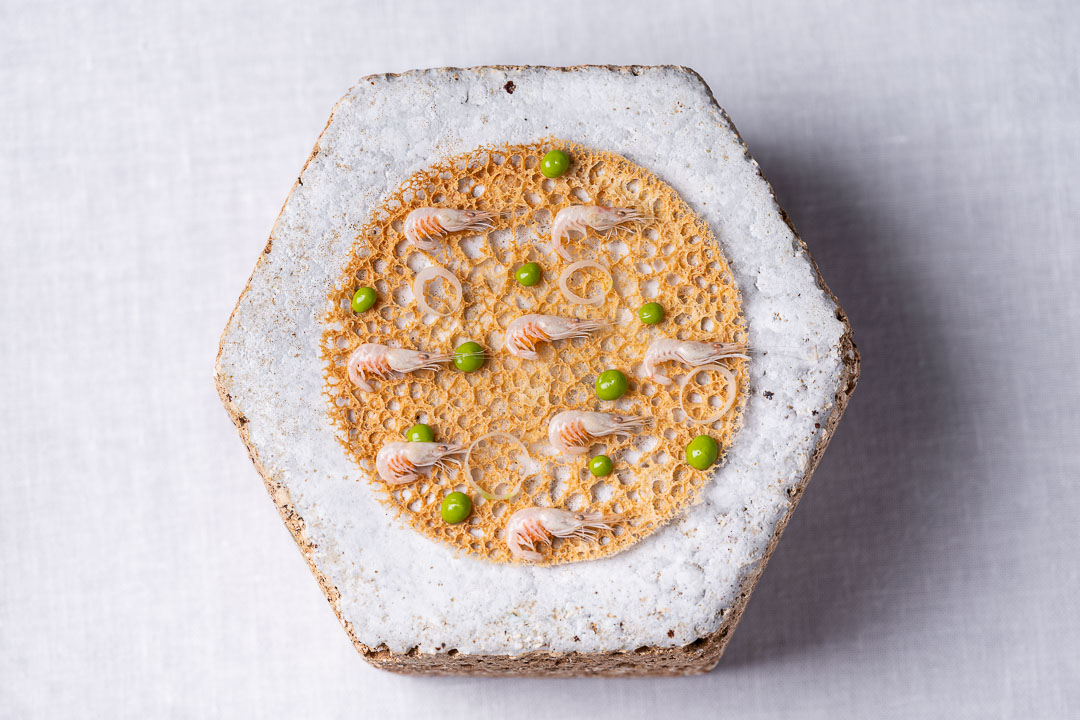
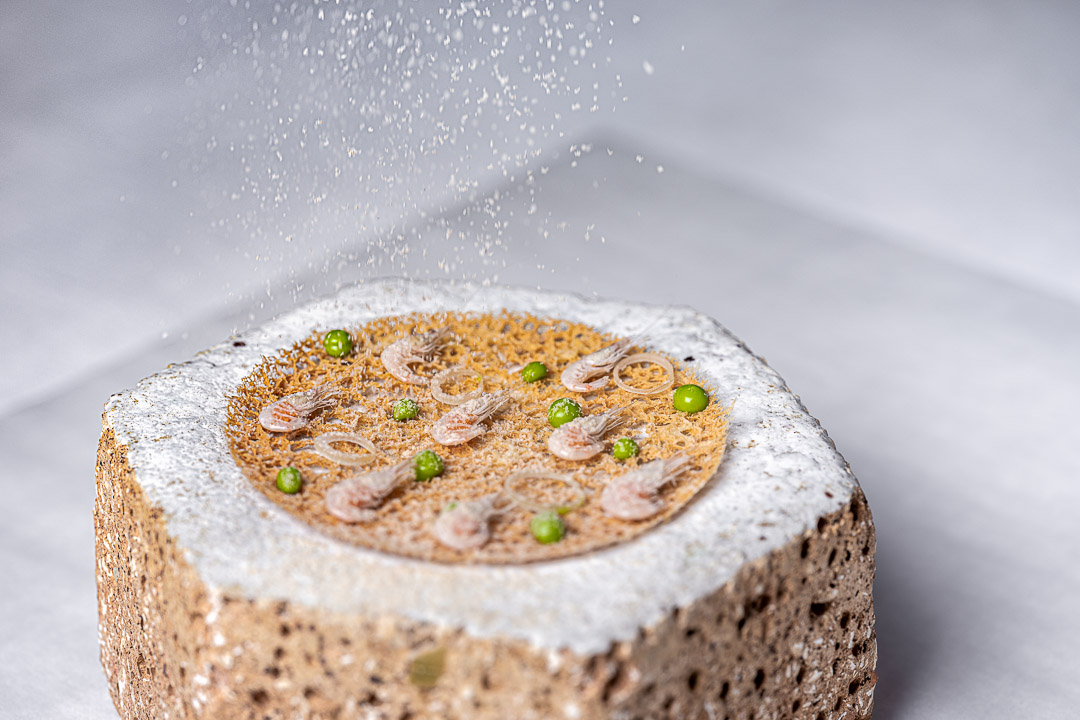
Marine charcuterie, from the bottom left to the top right: mackerel sobrasada, seabass mortadela, dogfish guanciale.
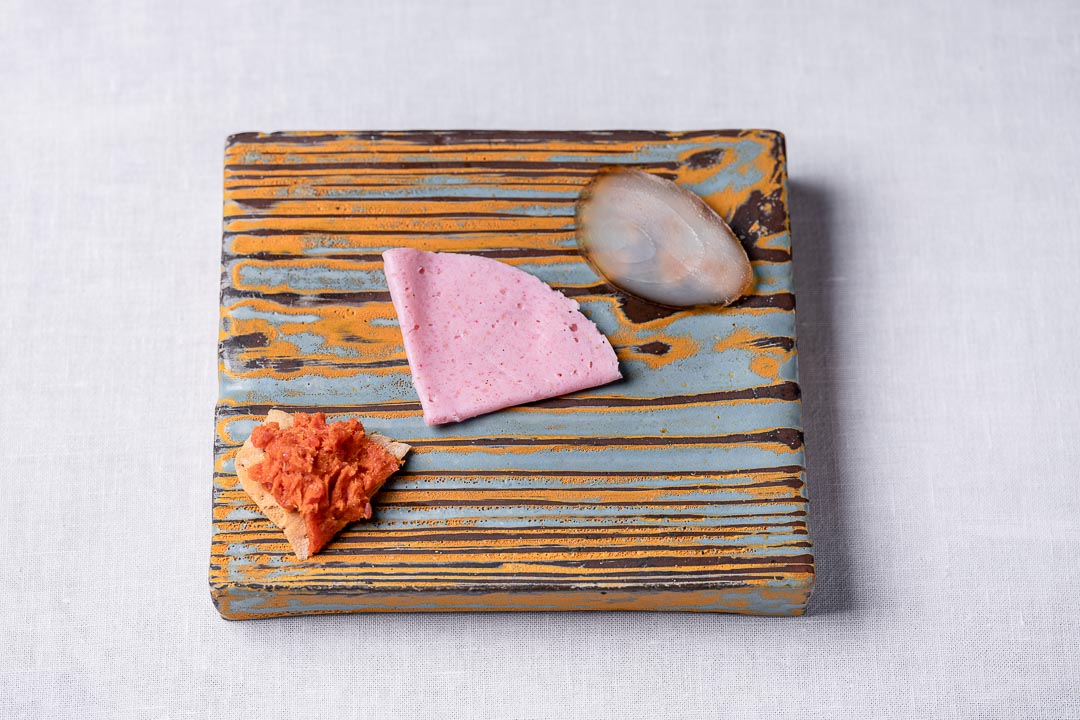
Mullet roe: crème caramel, custard made with mullet roes and whipped cream, imitating a classic Spanish dessert.
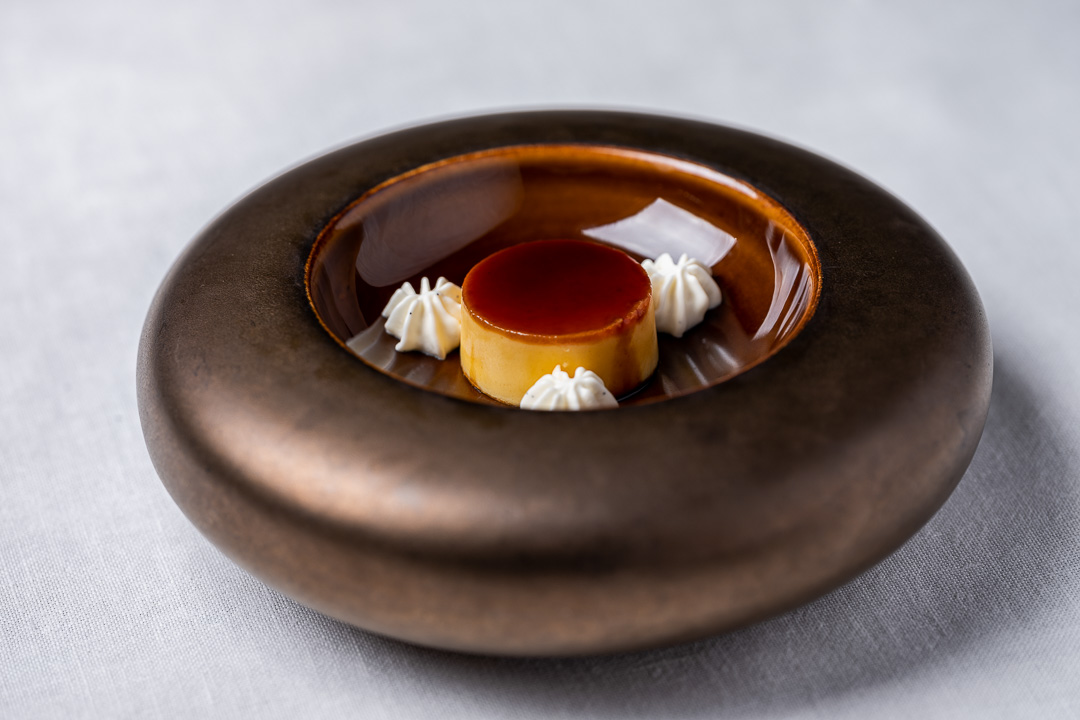

Anchovy: carrot and cumin gazpacho with different textures, anchovies and olive.
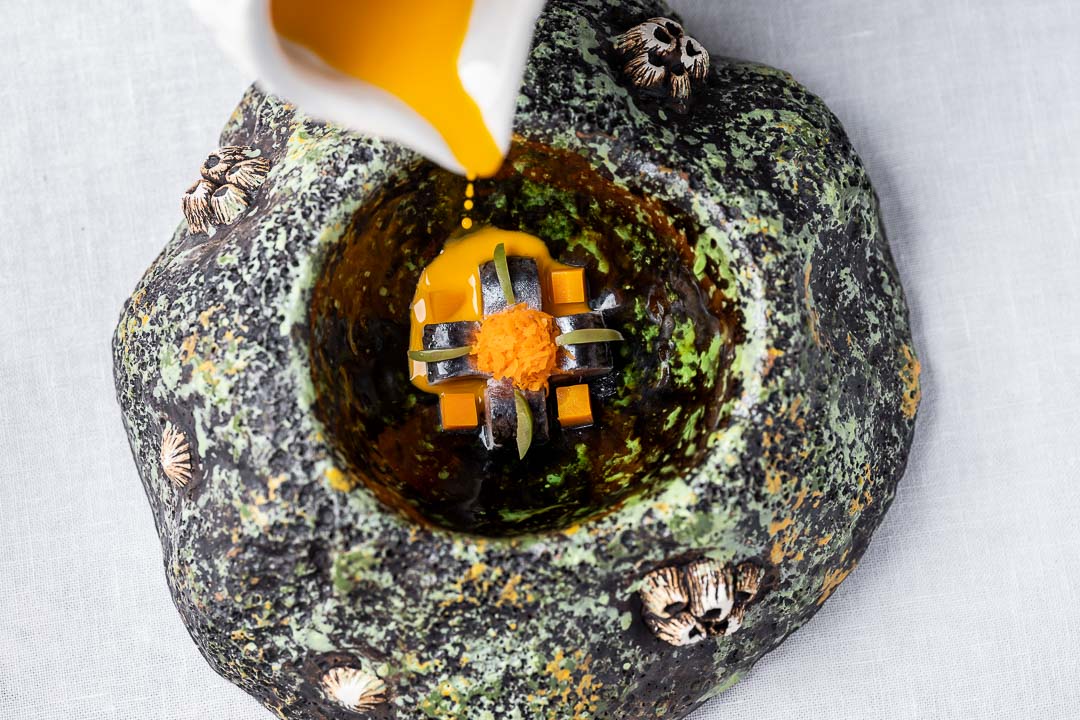
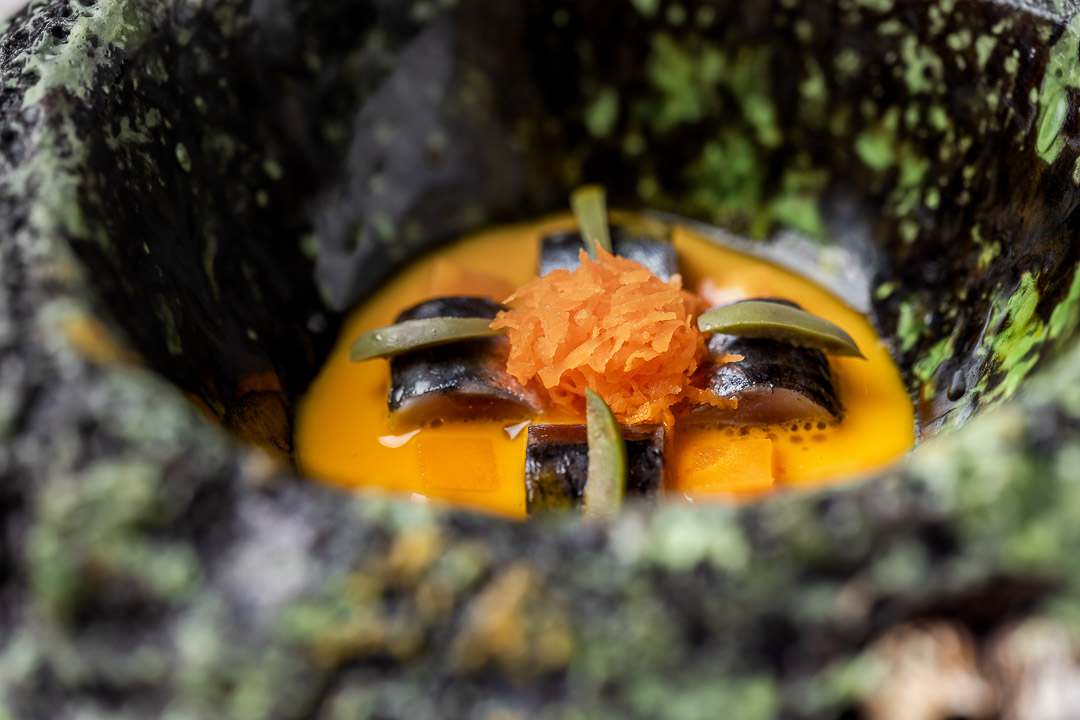
Gazpachuelo berberecho: cockles and Andalusian cold soup.
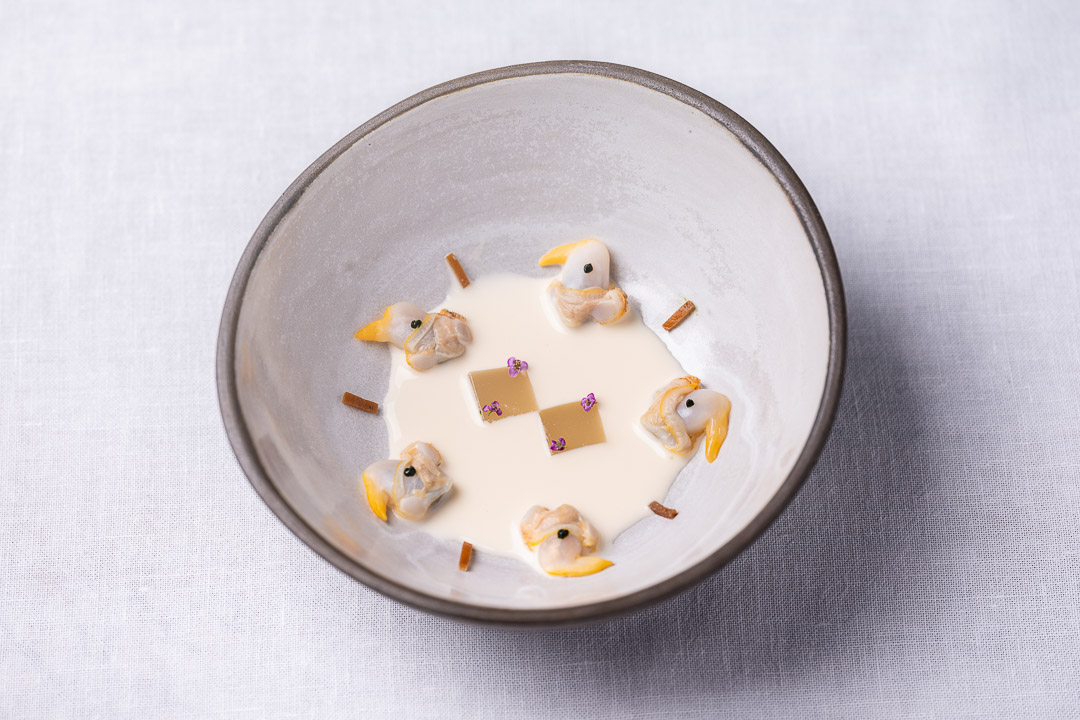
Habitas Navajas: razor clams as baby brot beans.
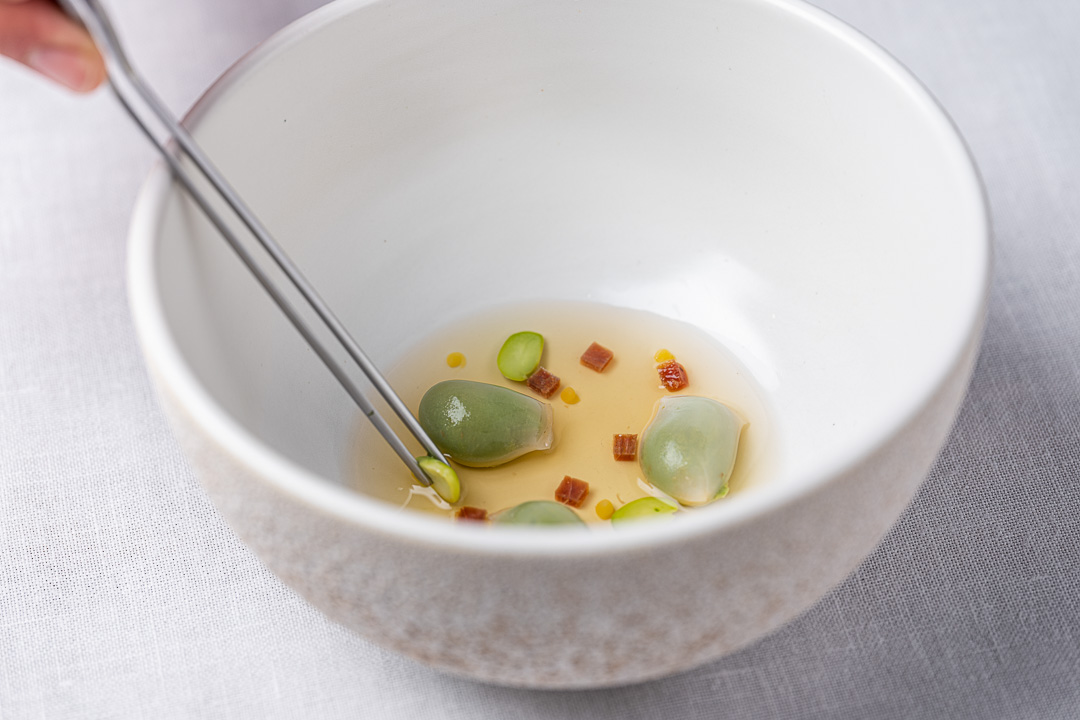
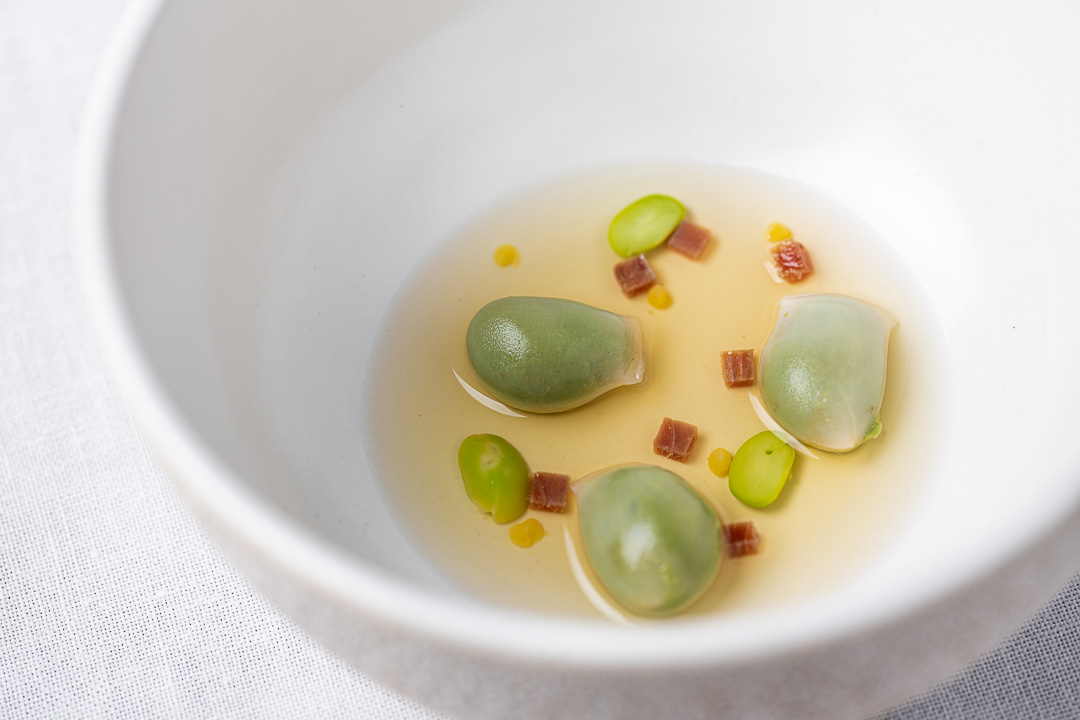
Goose barnacle cooked with Aponiente’s instant sea salt cooking technique.
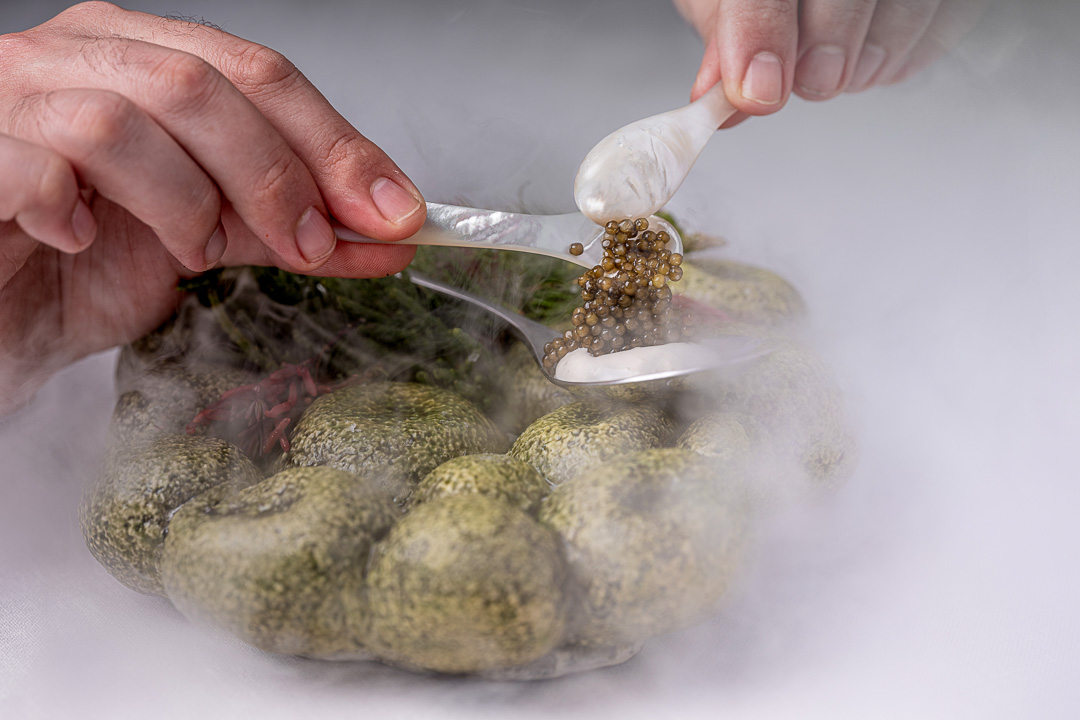
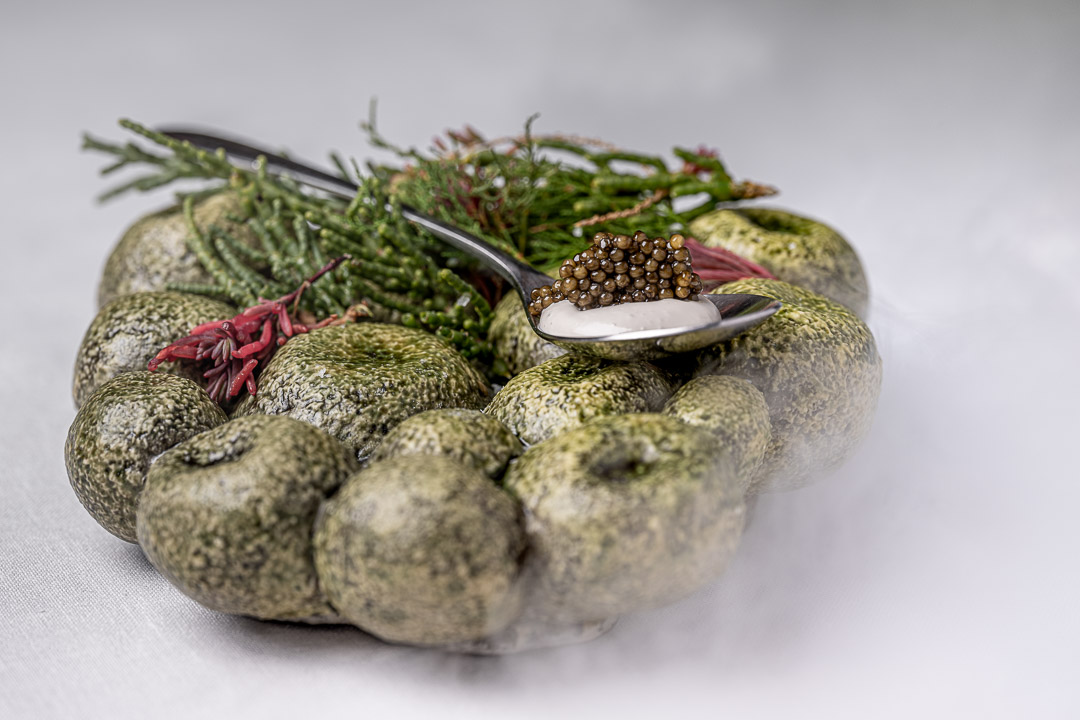
Spotted flounder fish cooked with Aponiente’s instant sea salt technique and meunière sauce.
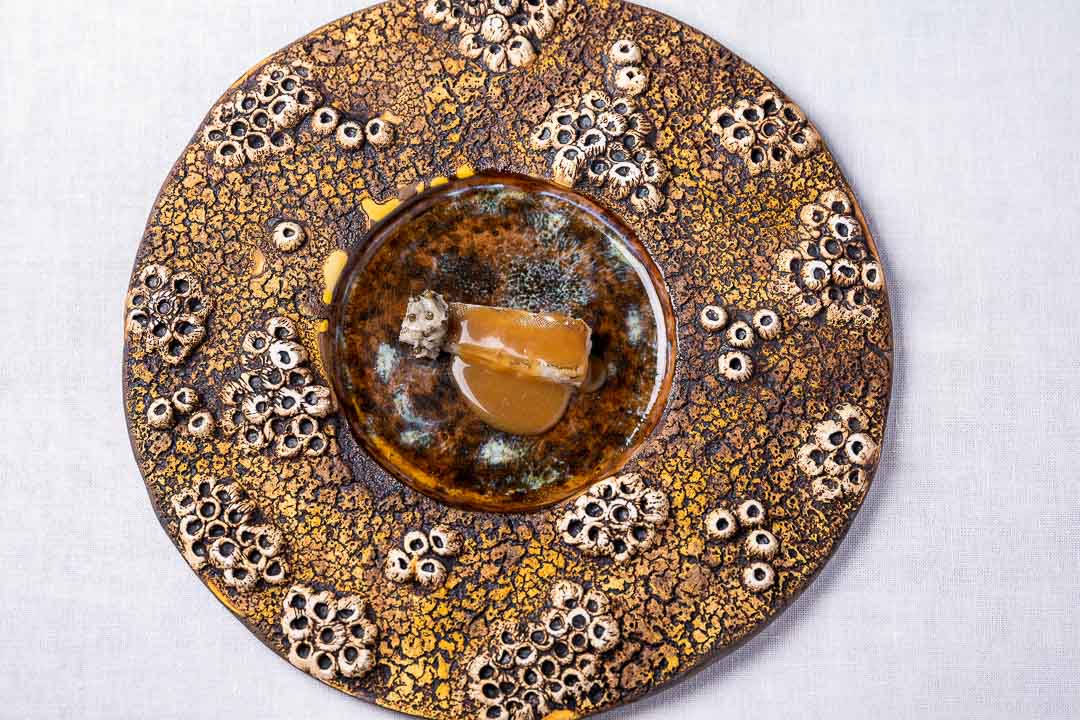
Almadraba wild red tuna haggis, cabbage and potato.
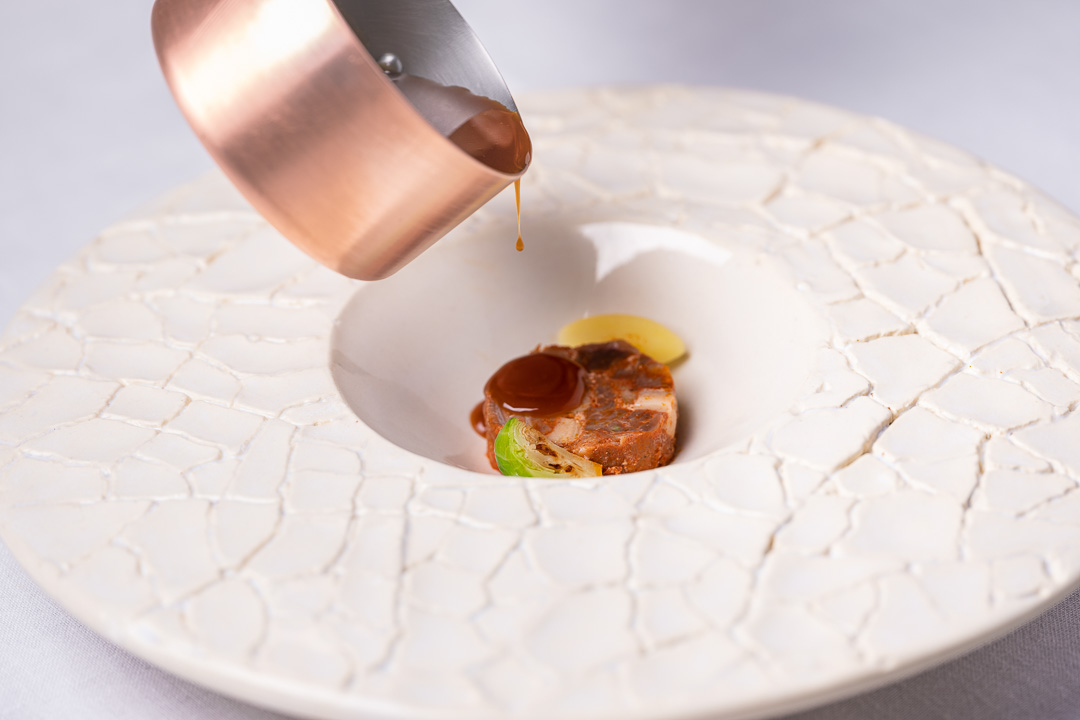
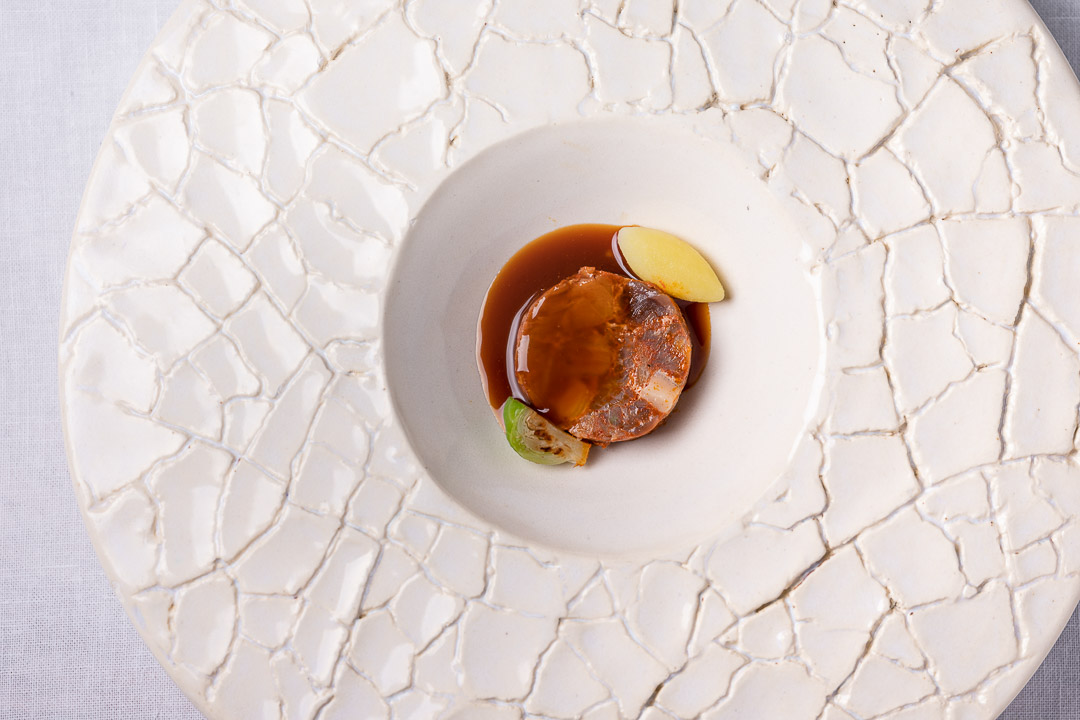
Creamy chocolate, plankton, wasabi and strawberries submerged two months in sherry vinegar.
Fennel fake sweet risotto.
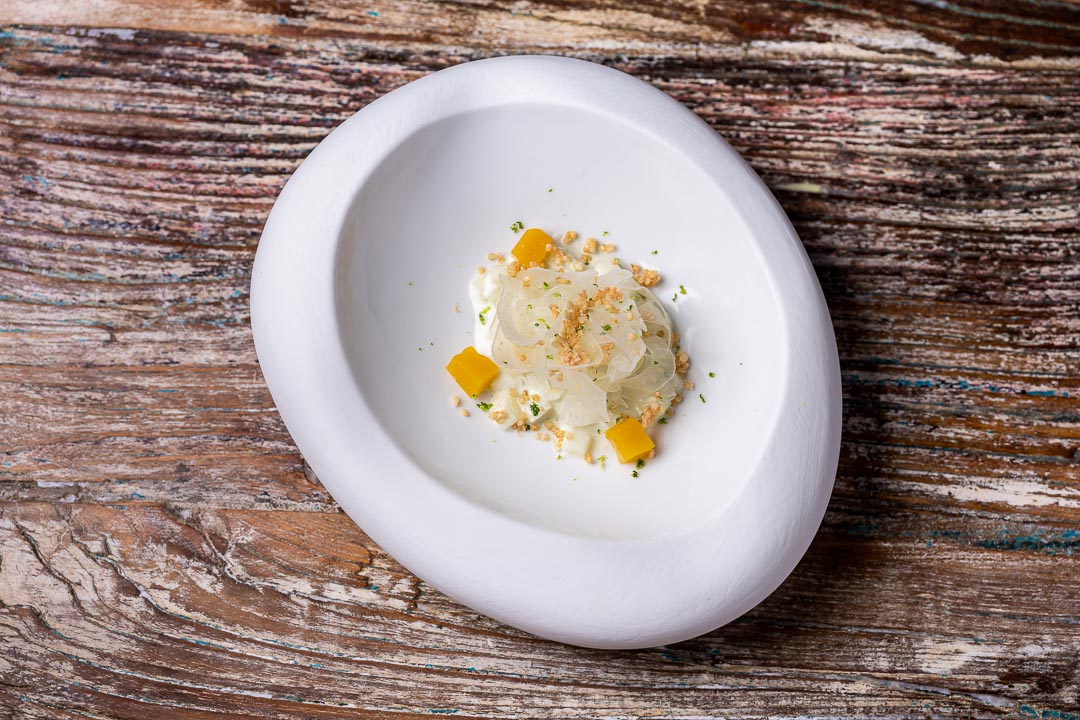
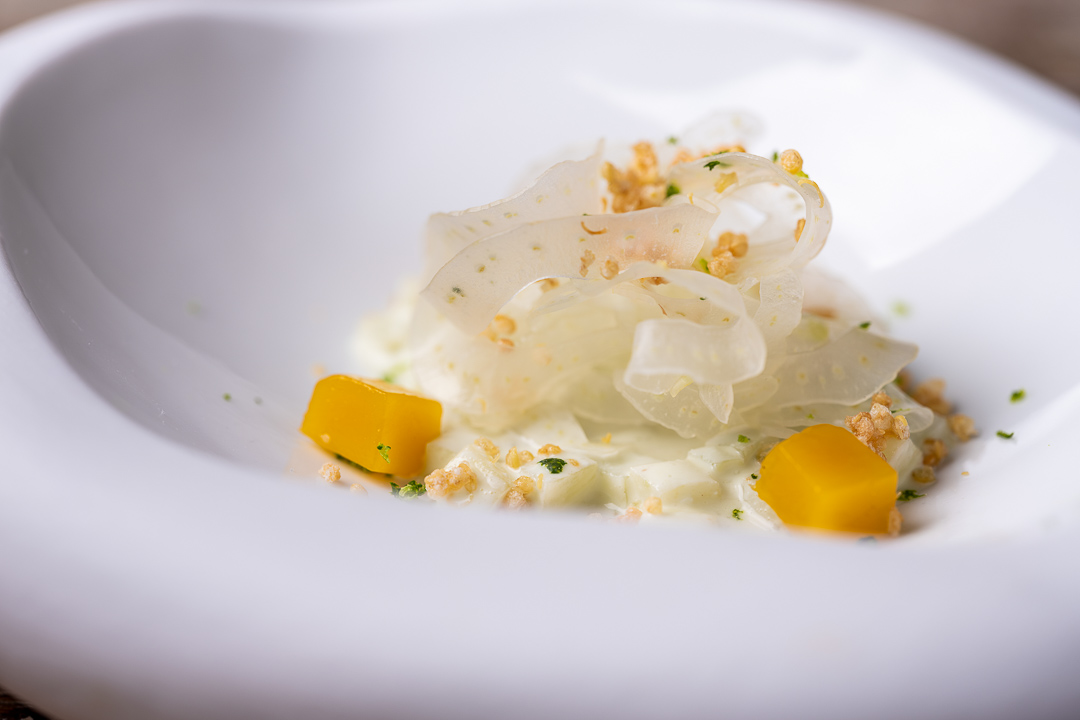
Petits fours: white chocolate, vanilla & olive oil, dark chocolate & coffee, thyme & grapefruit, diamond cookie.
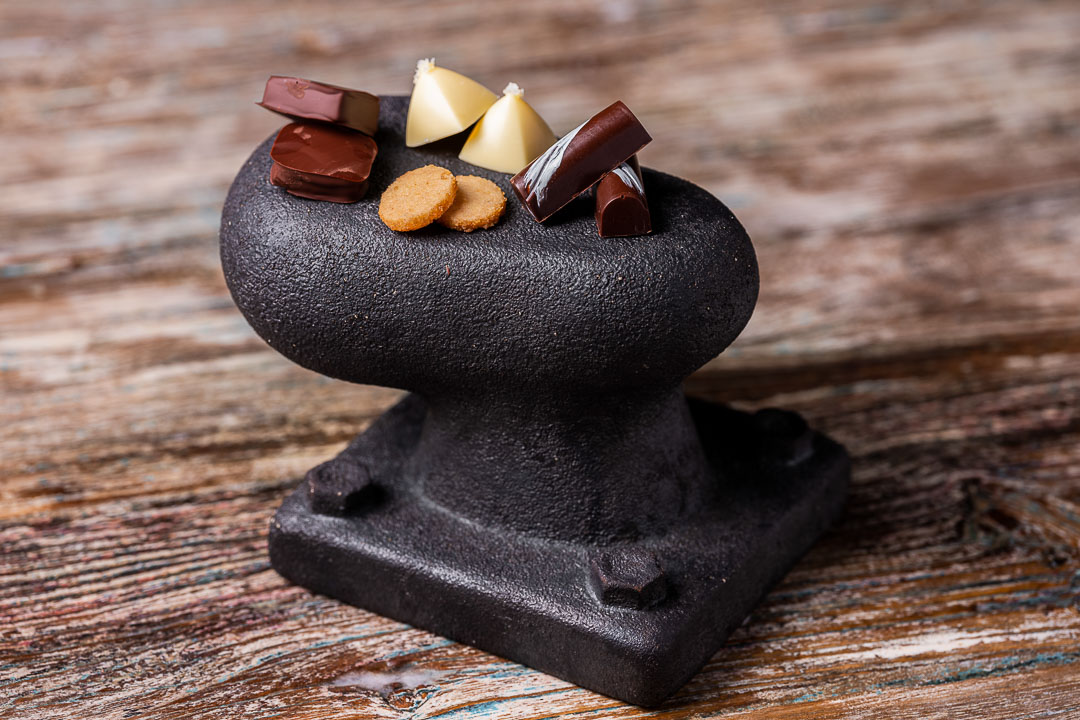
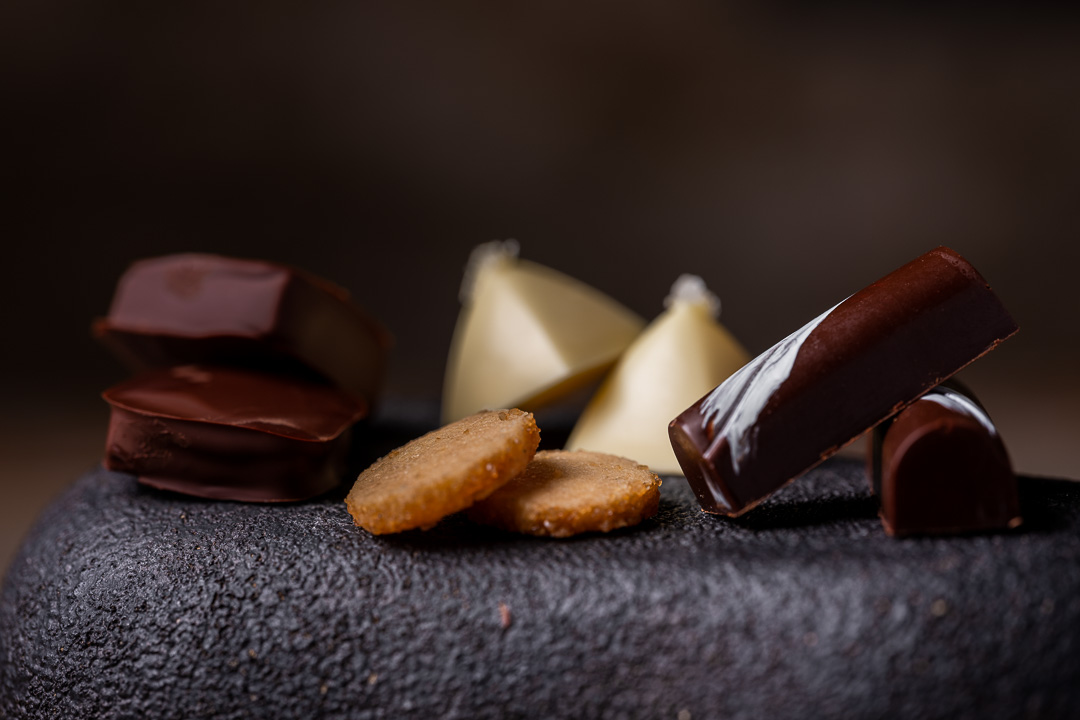
In short
At Aponiente in El Puerto de Santa Maria, chef Ángel León presents an innovative, flavourful and very creative cuisine that reflects his love for the sea and the local traditions. The location – the old tidal mill at the San José salt pan – is simply breathtaking, offering all guests a full experience that goes way beyond traditional fine dining.
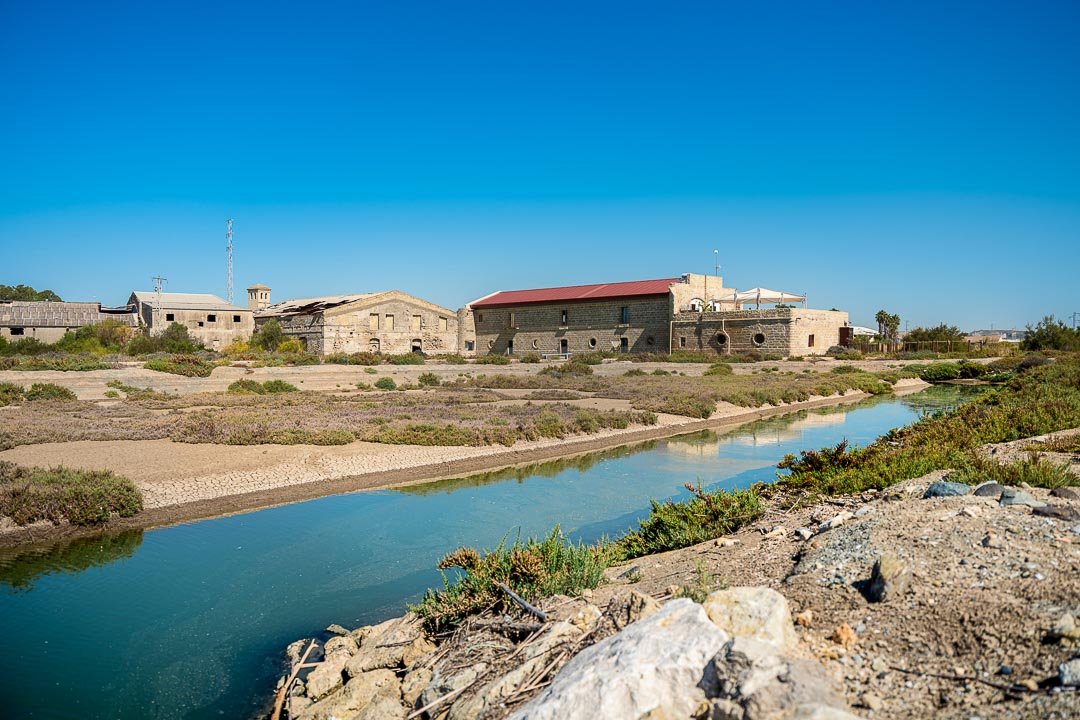
Practical information
Aponiente, Molino de Mareas, 11500 Calle Francisco Cossi Ochoa S/N, El Puerto de Santa María, Cádiz, Spain | + 34 606225859 | reservas@aponiente.com | www.aponiente.com | Aponiente on Facebook | Aponiente on Instagram
–
Interview & text: Sarah De Hondt
Photography: Adriaan Van Looy


